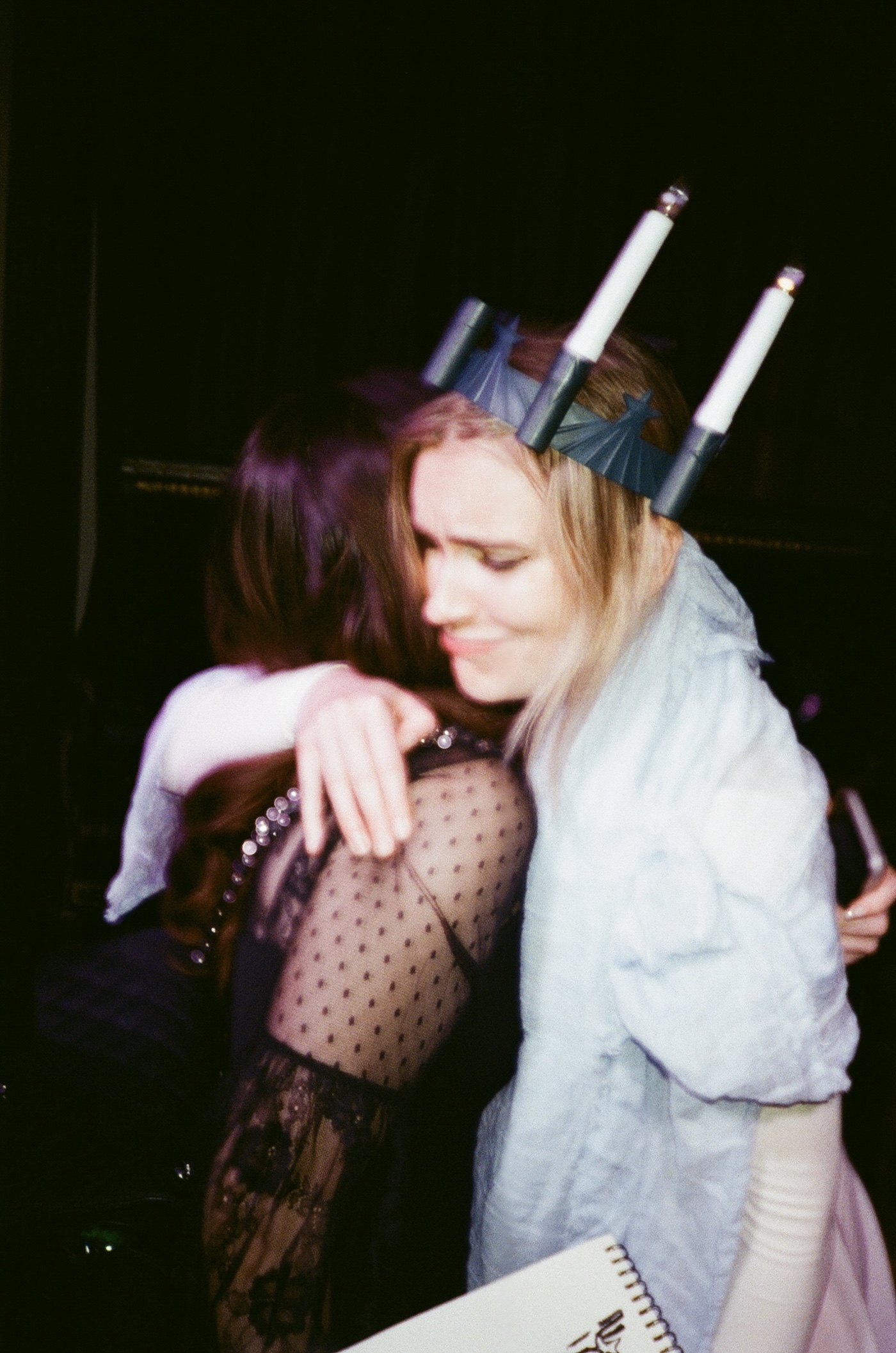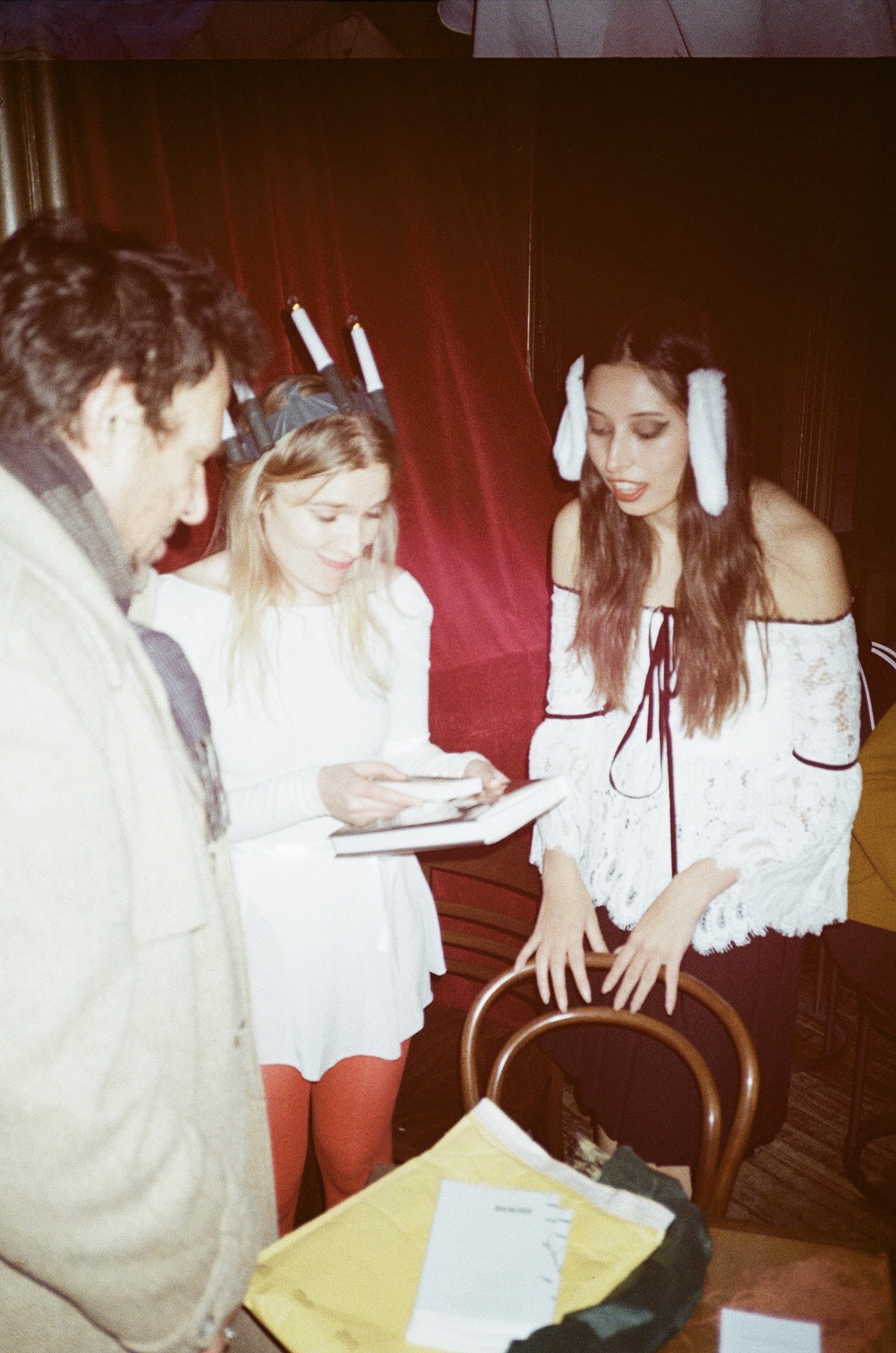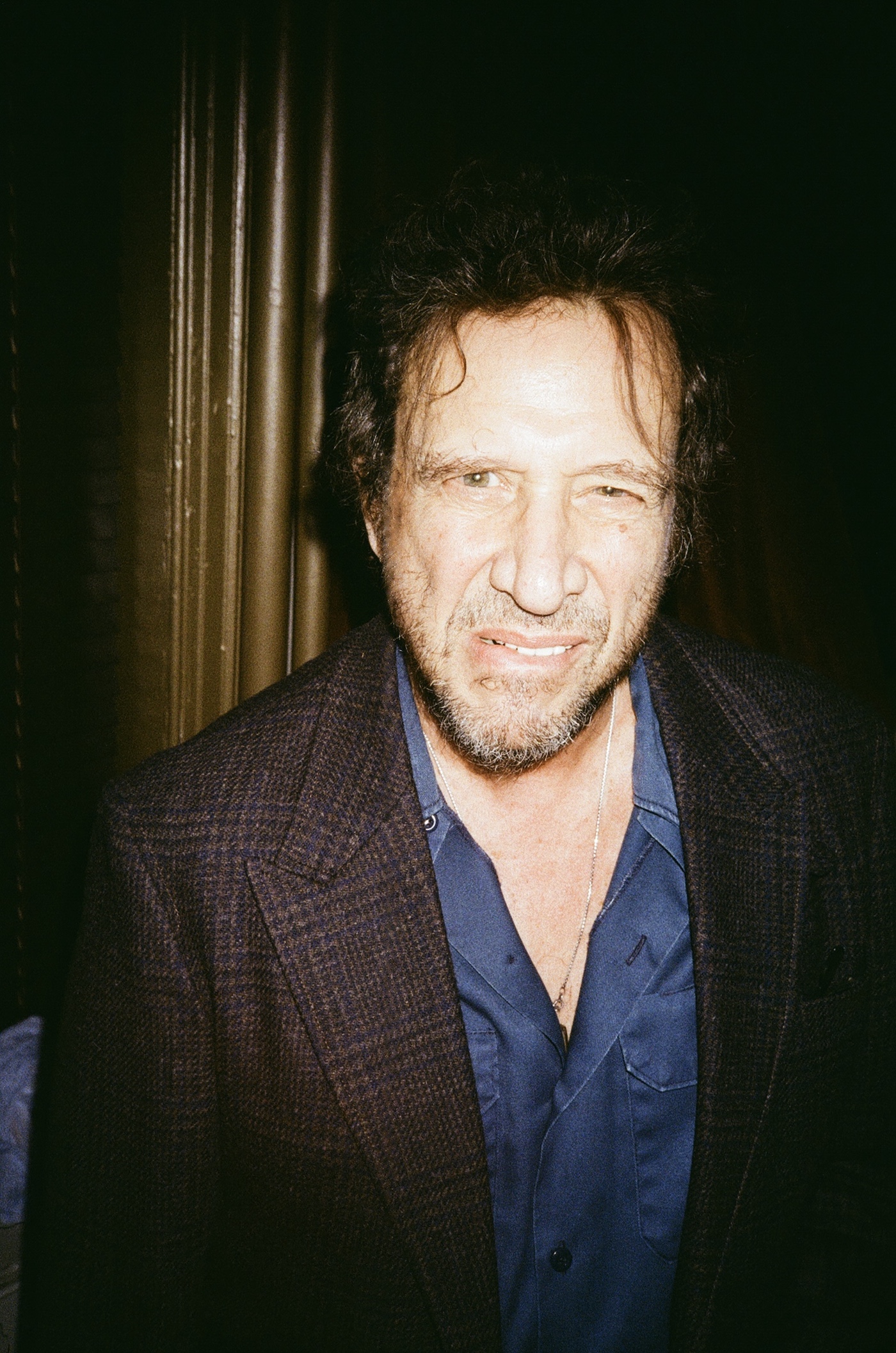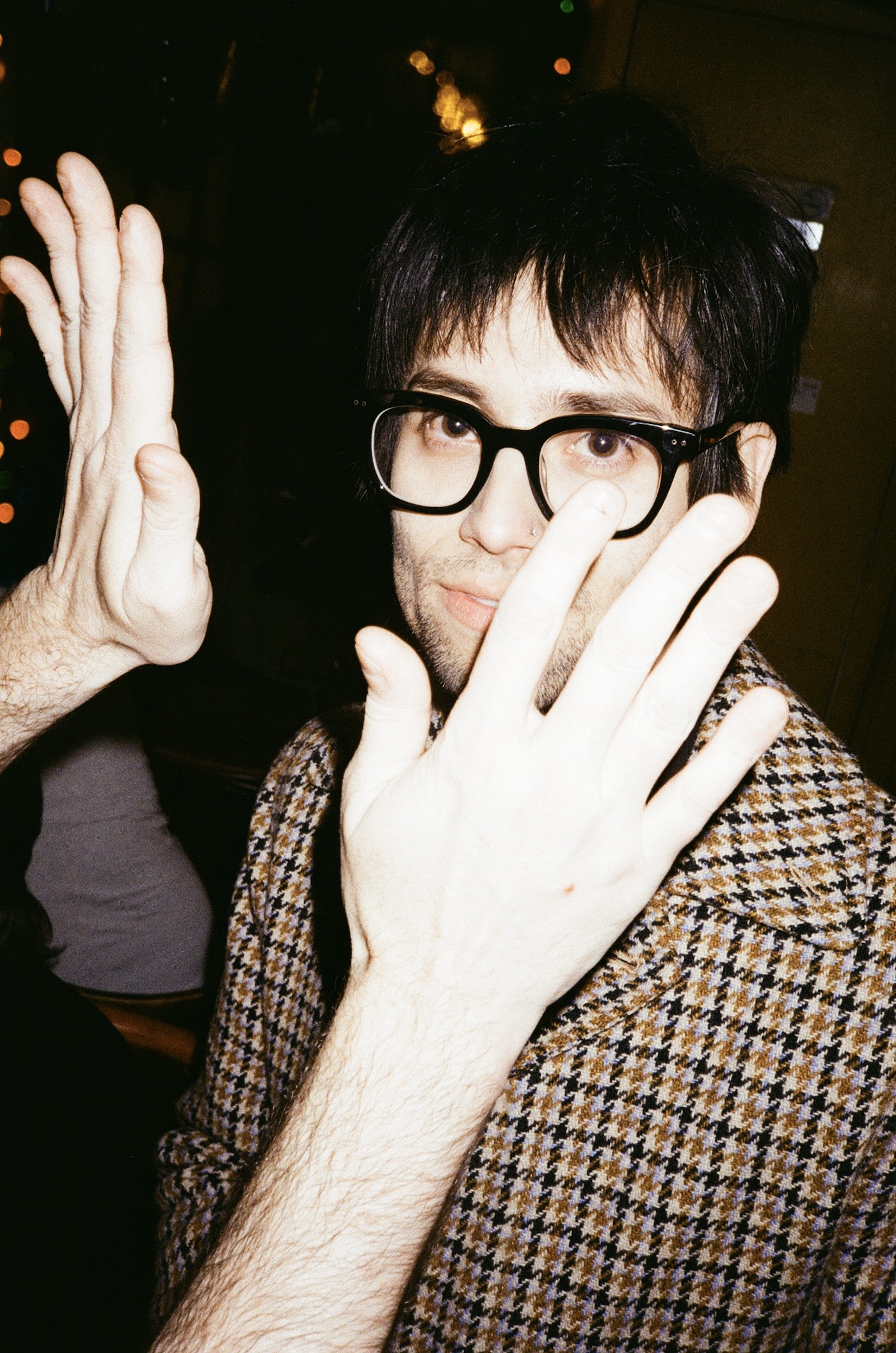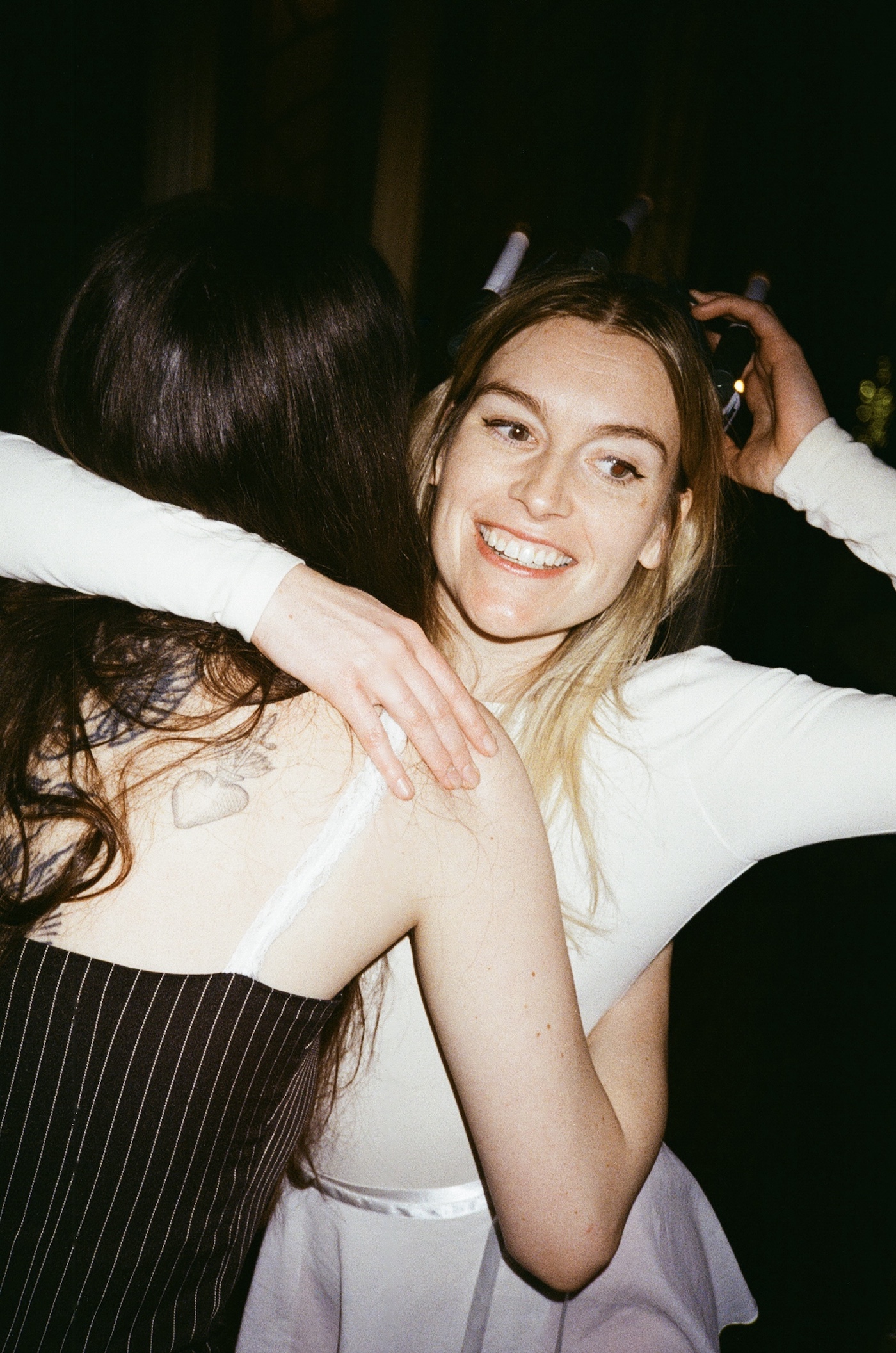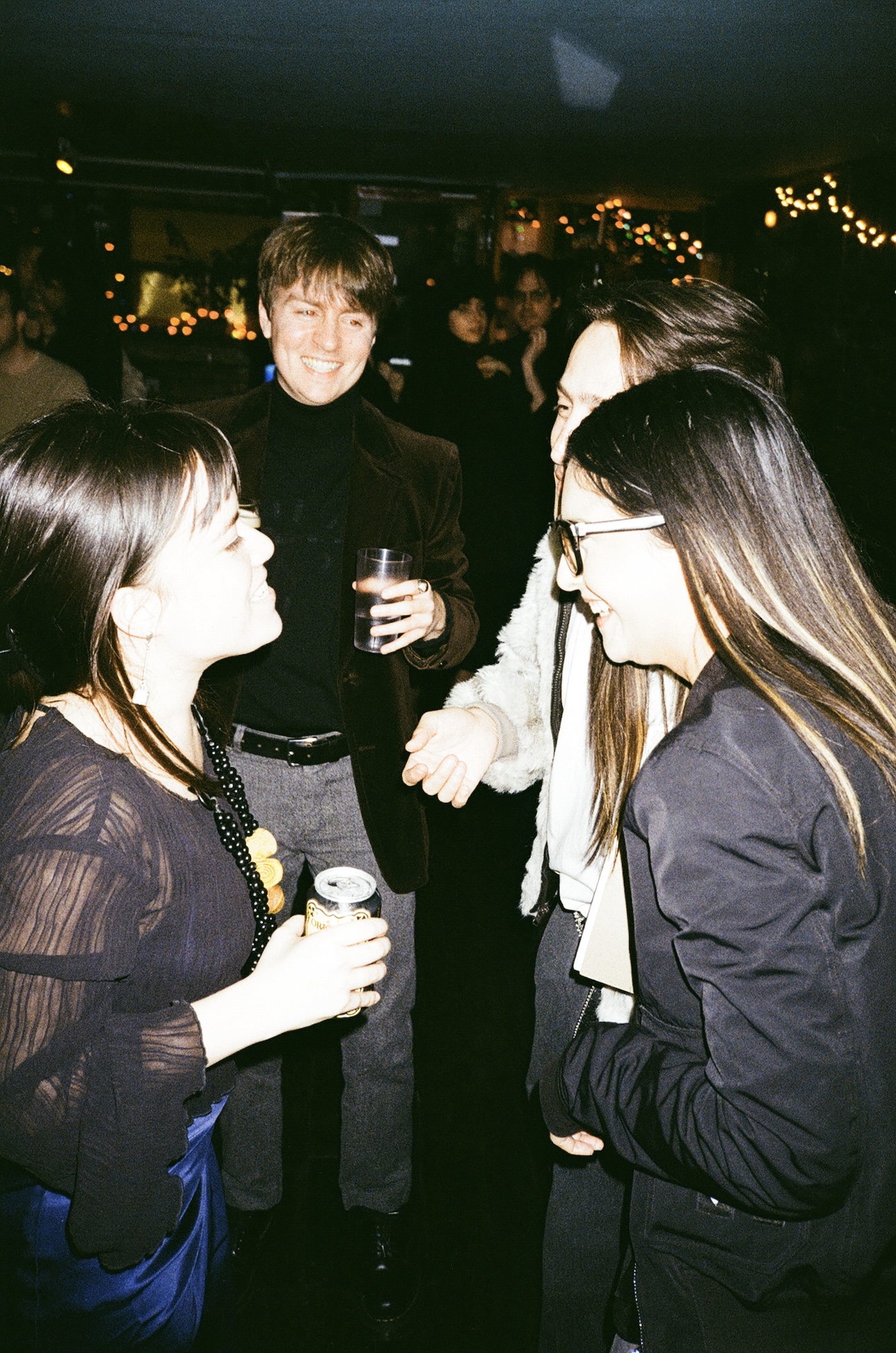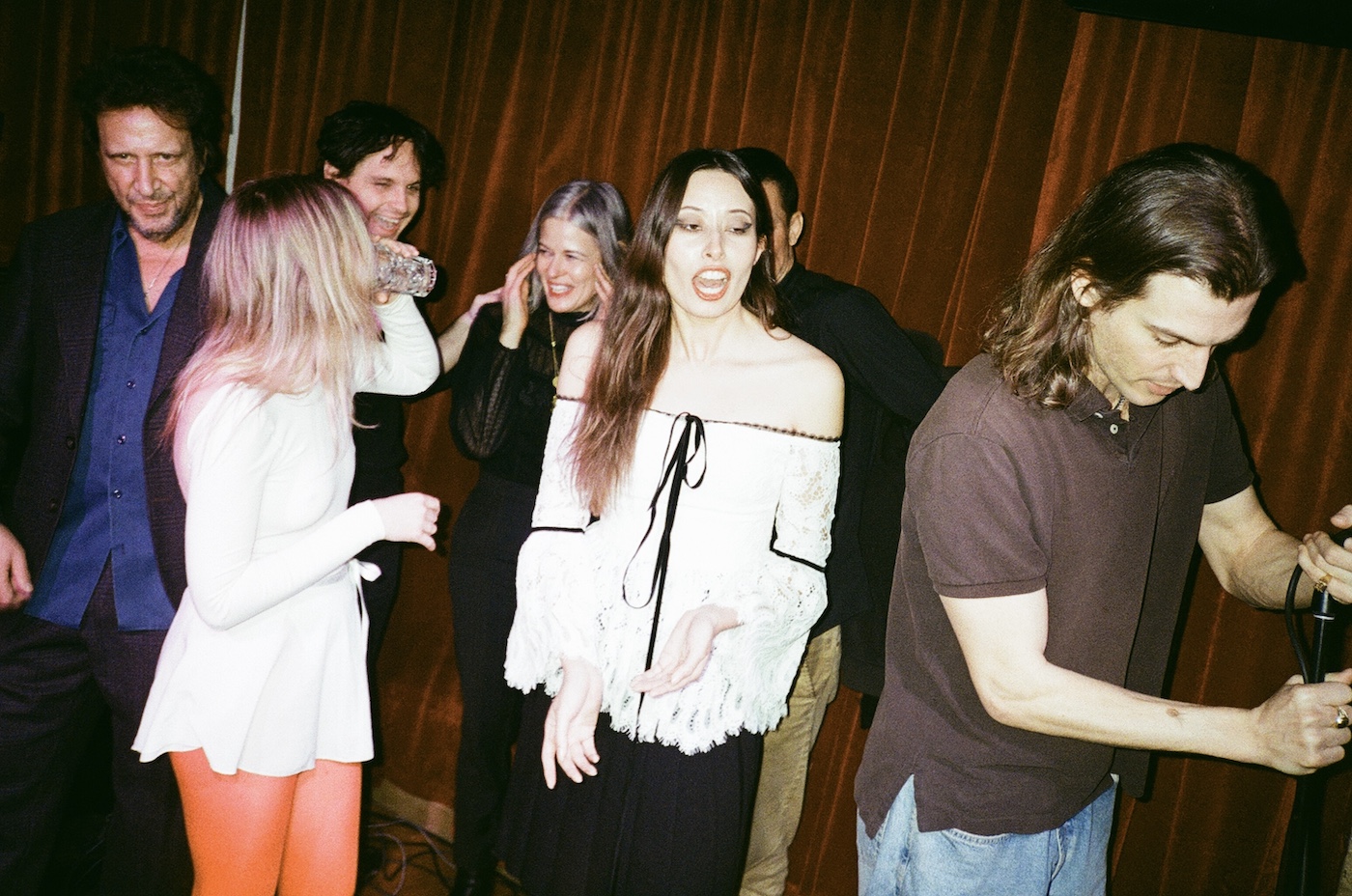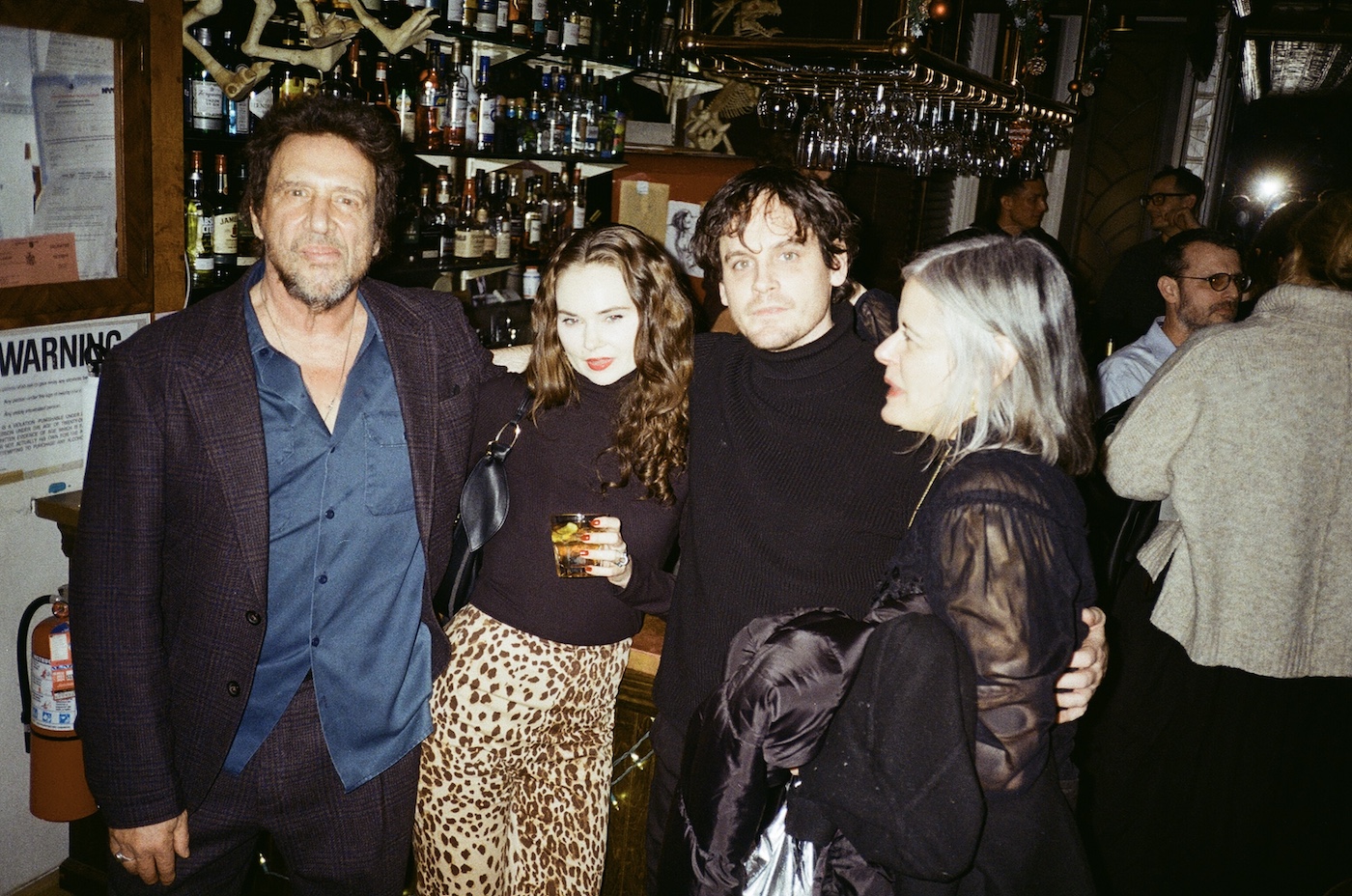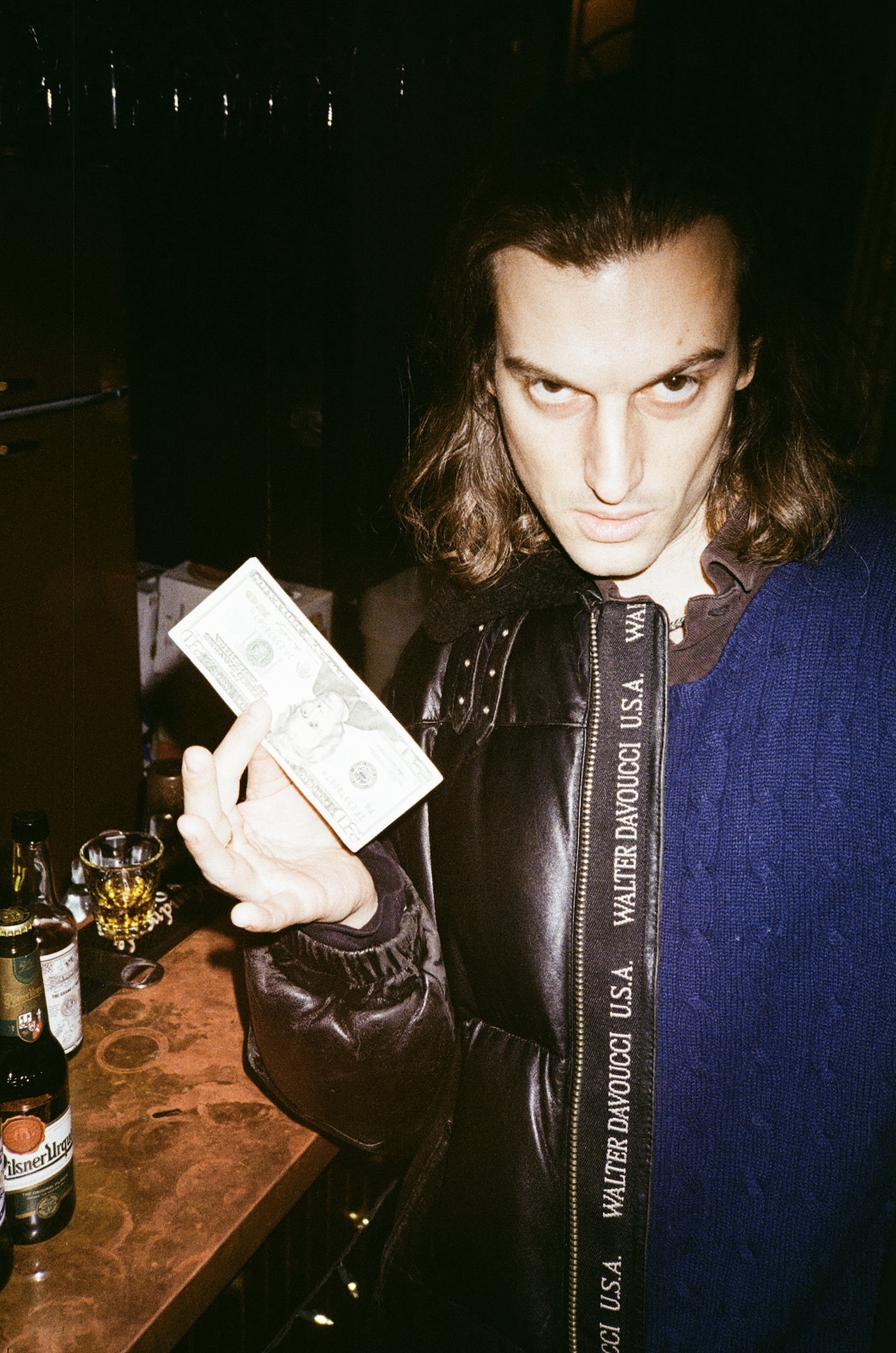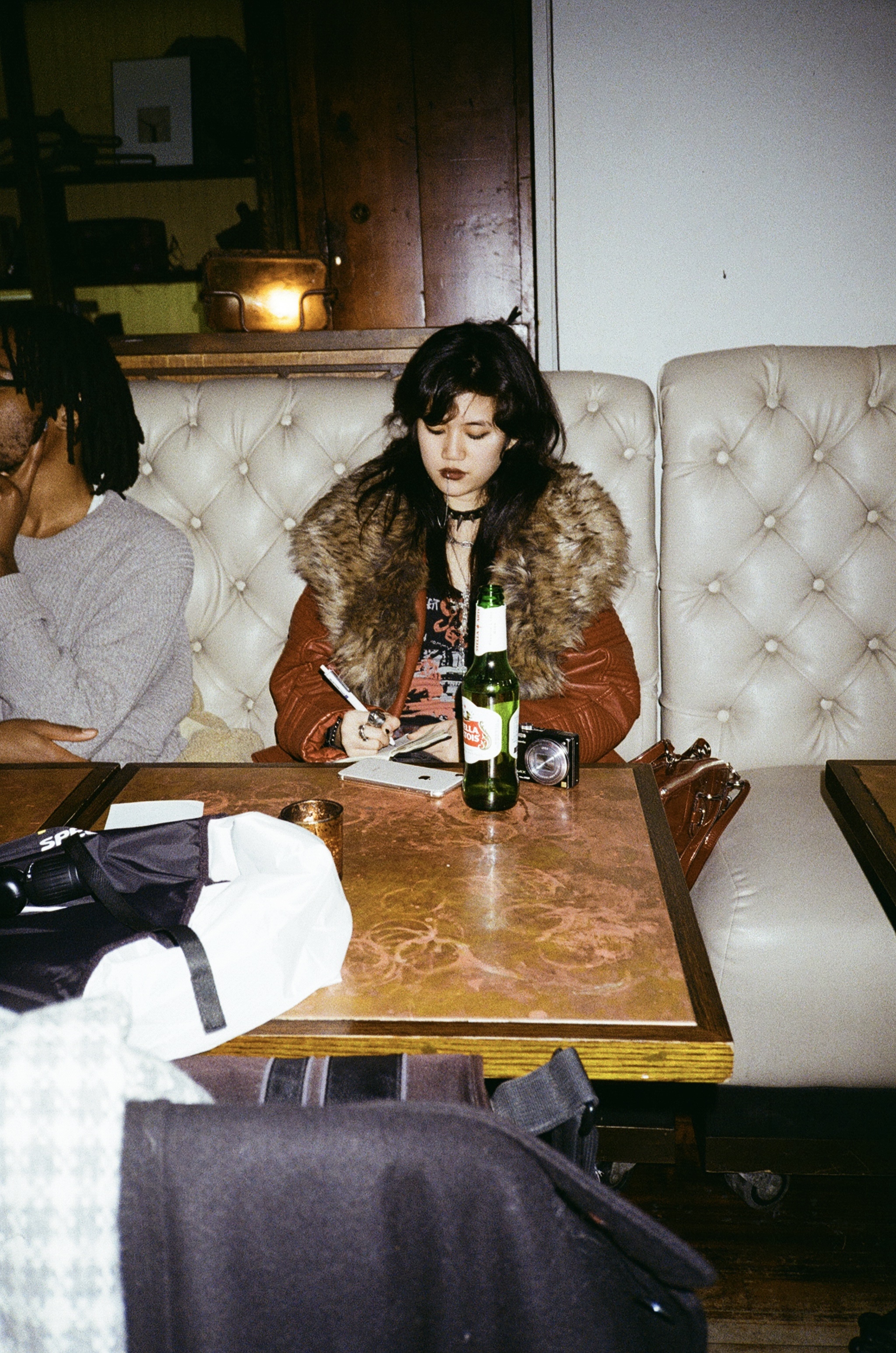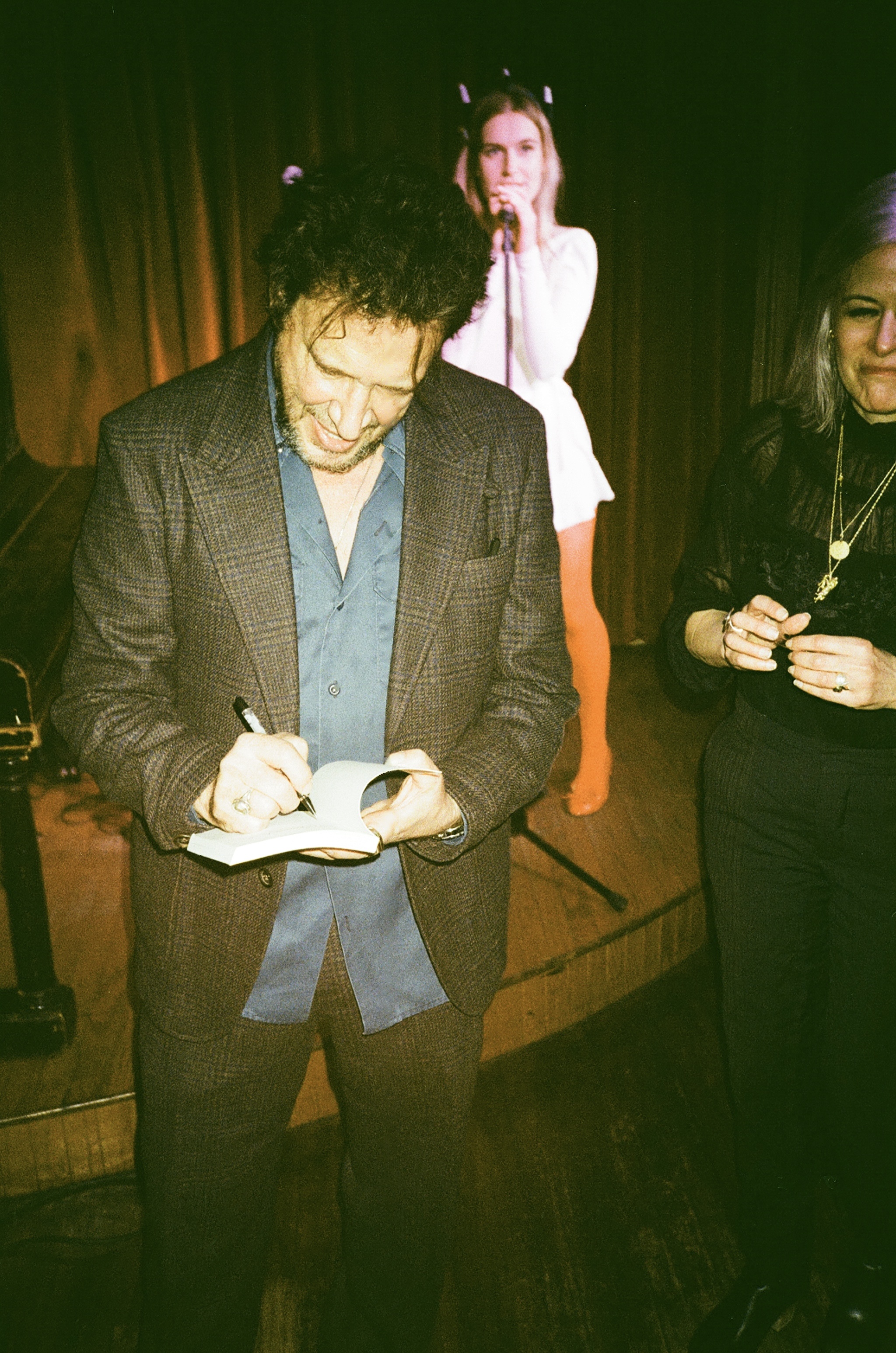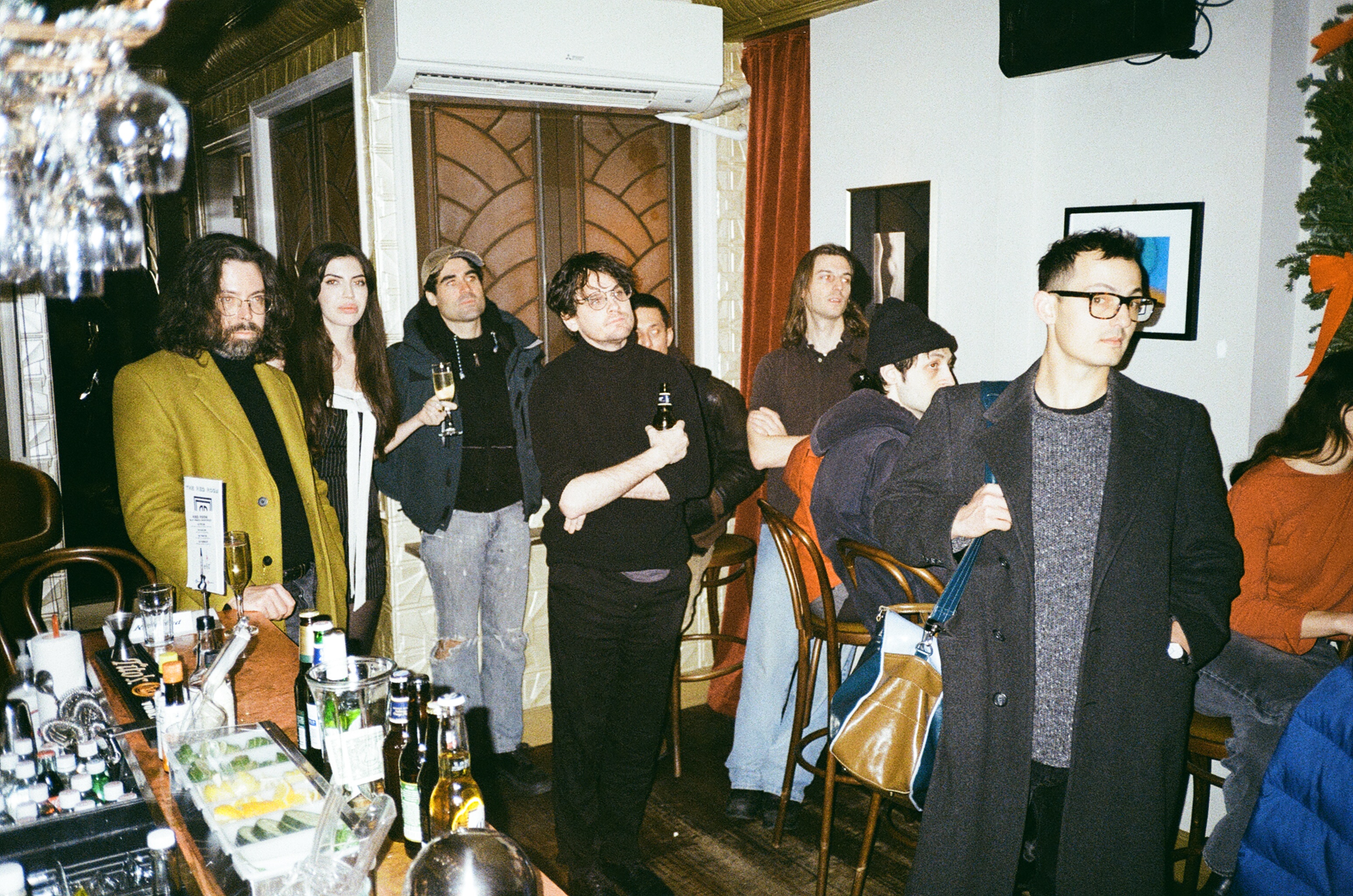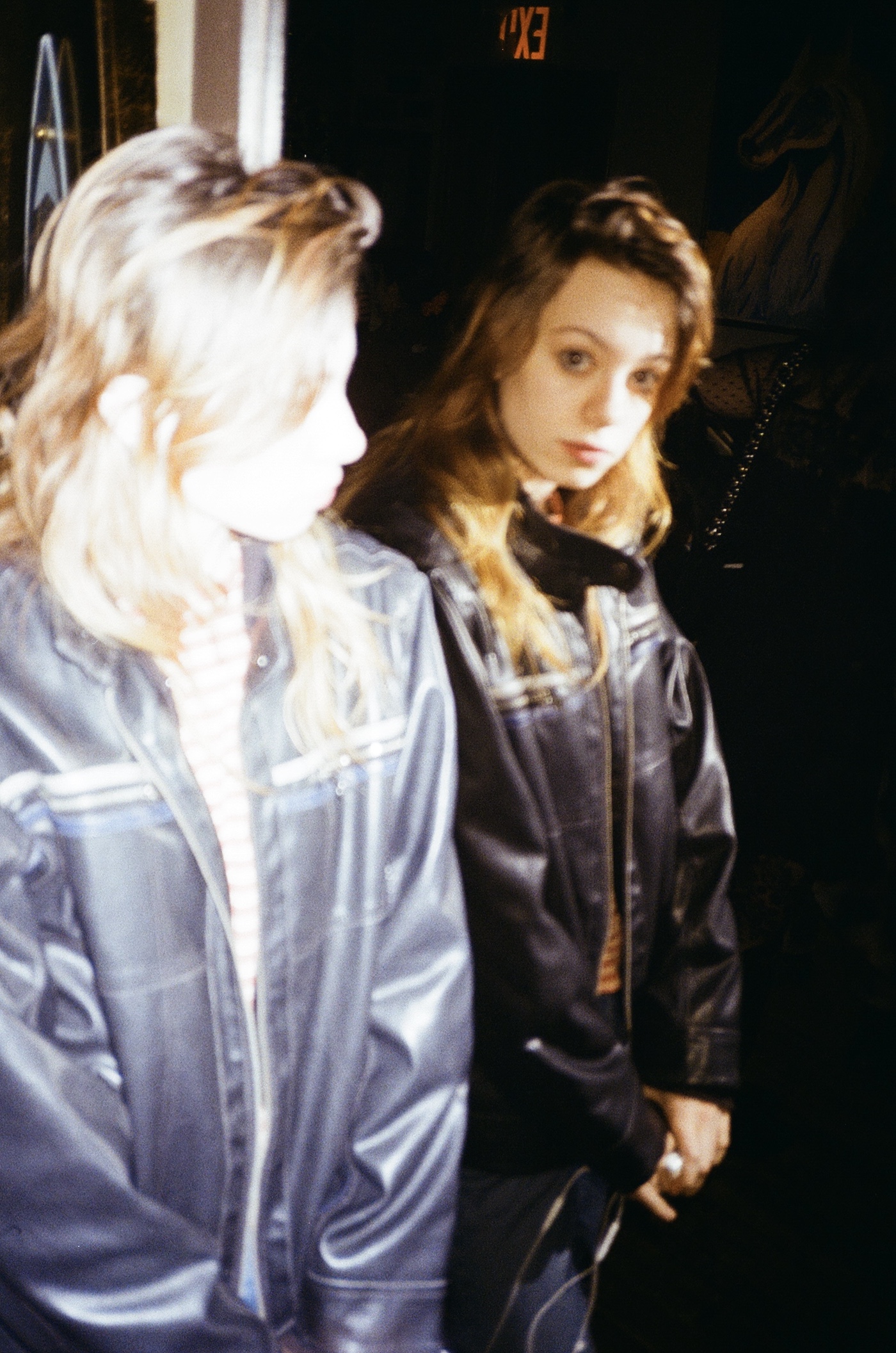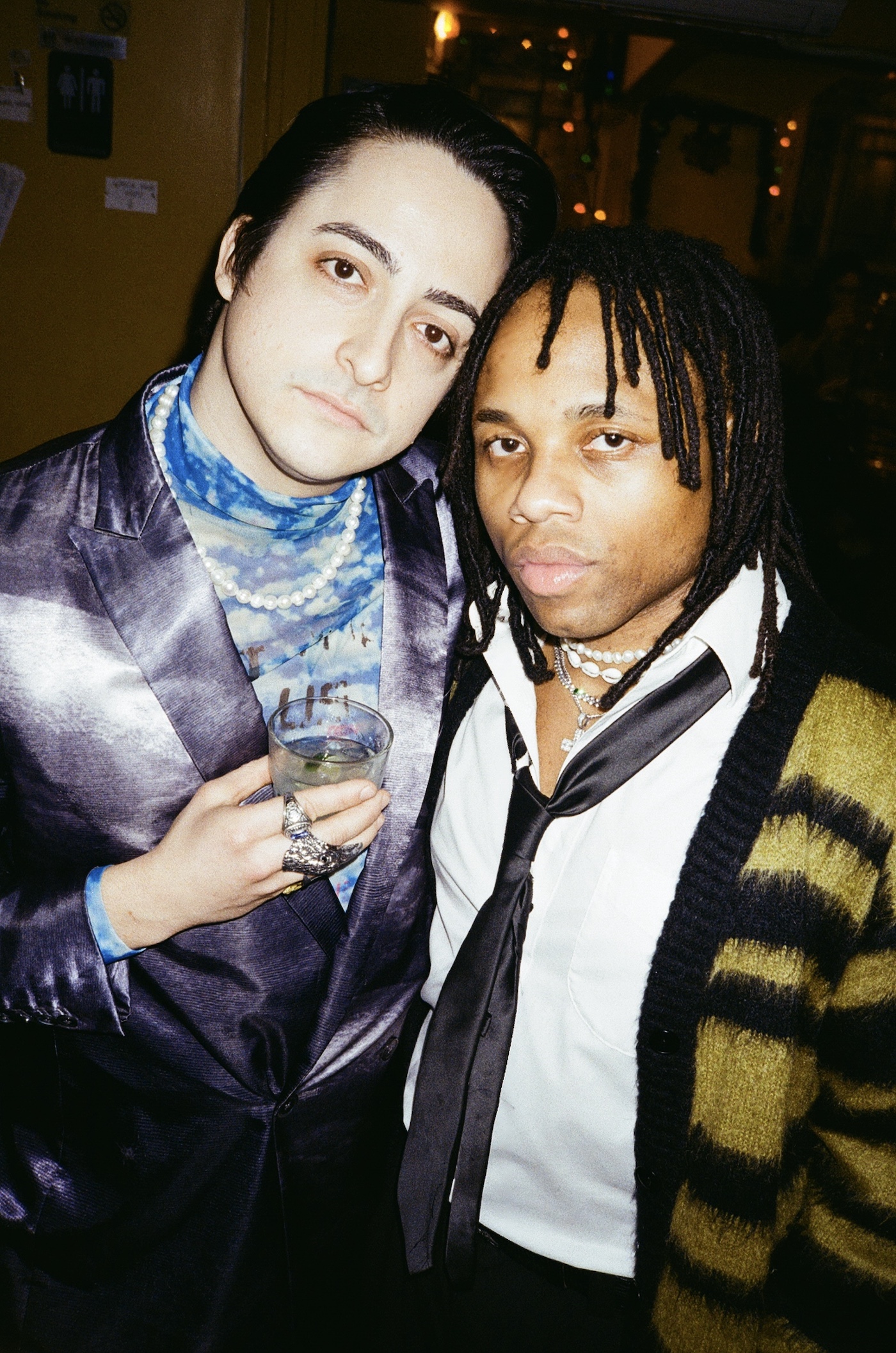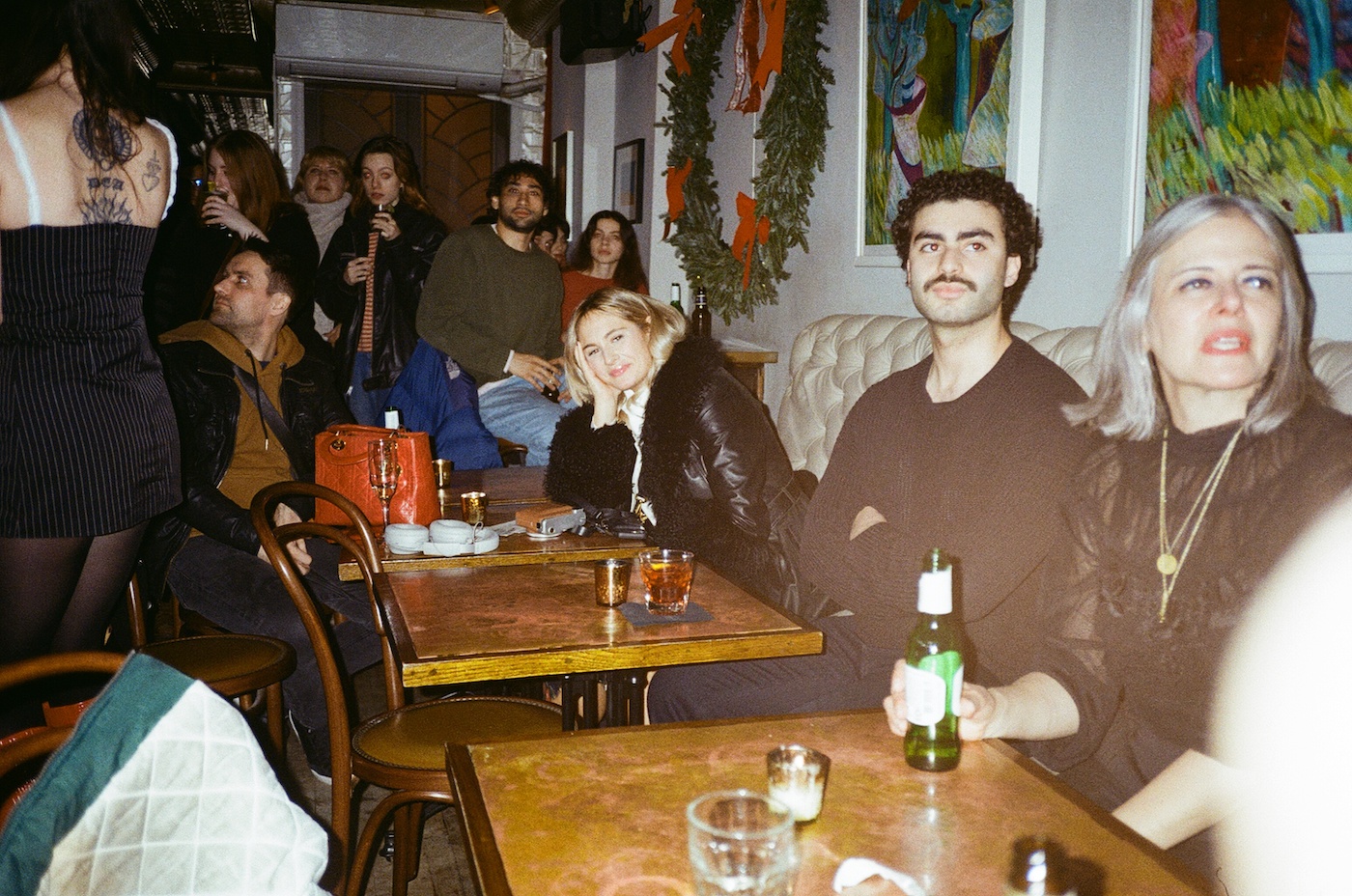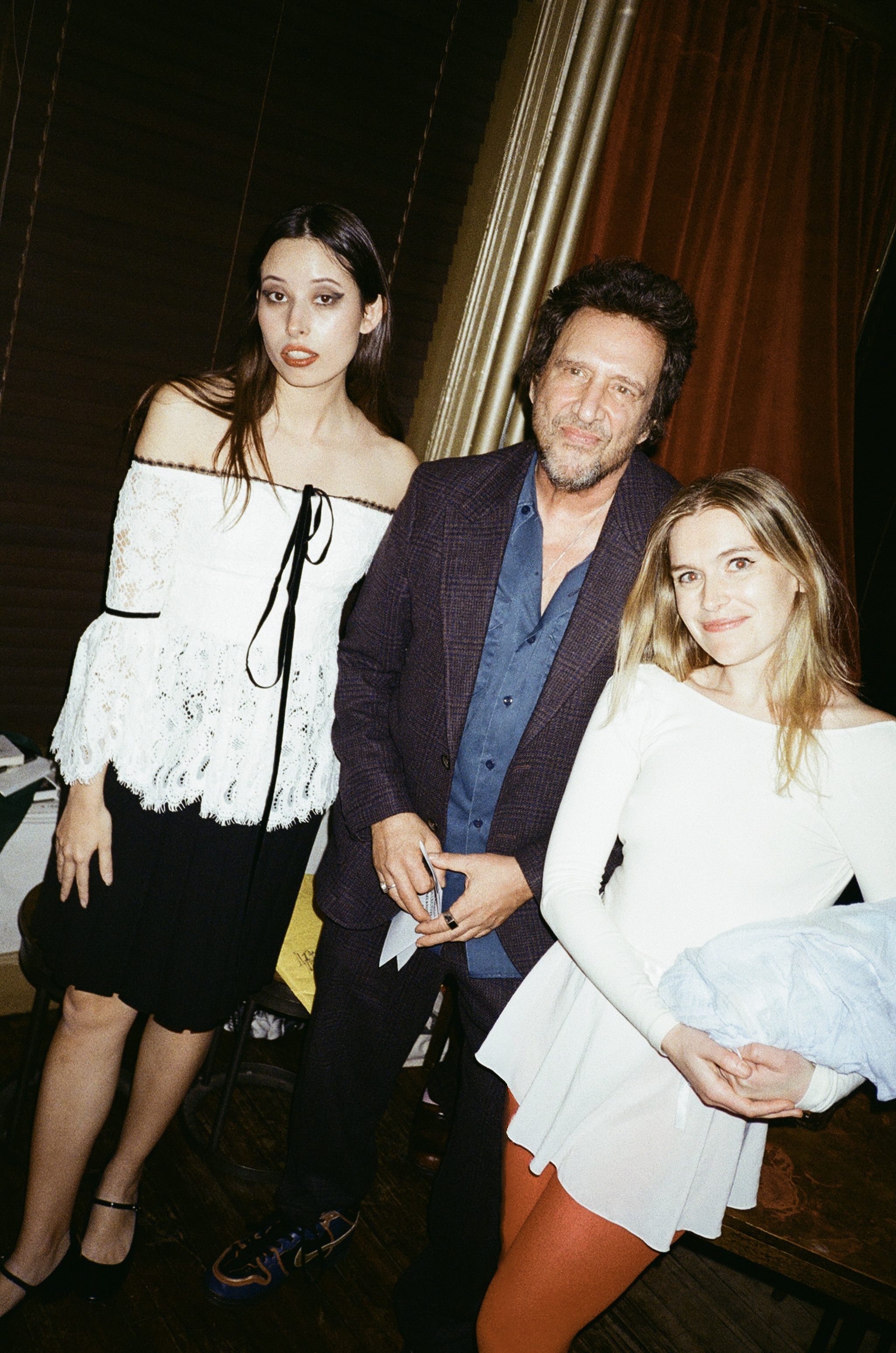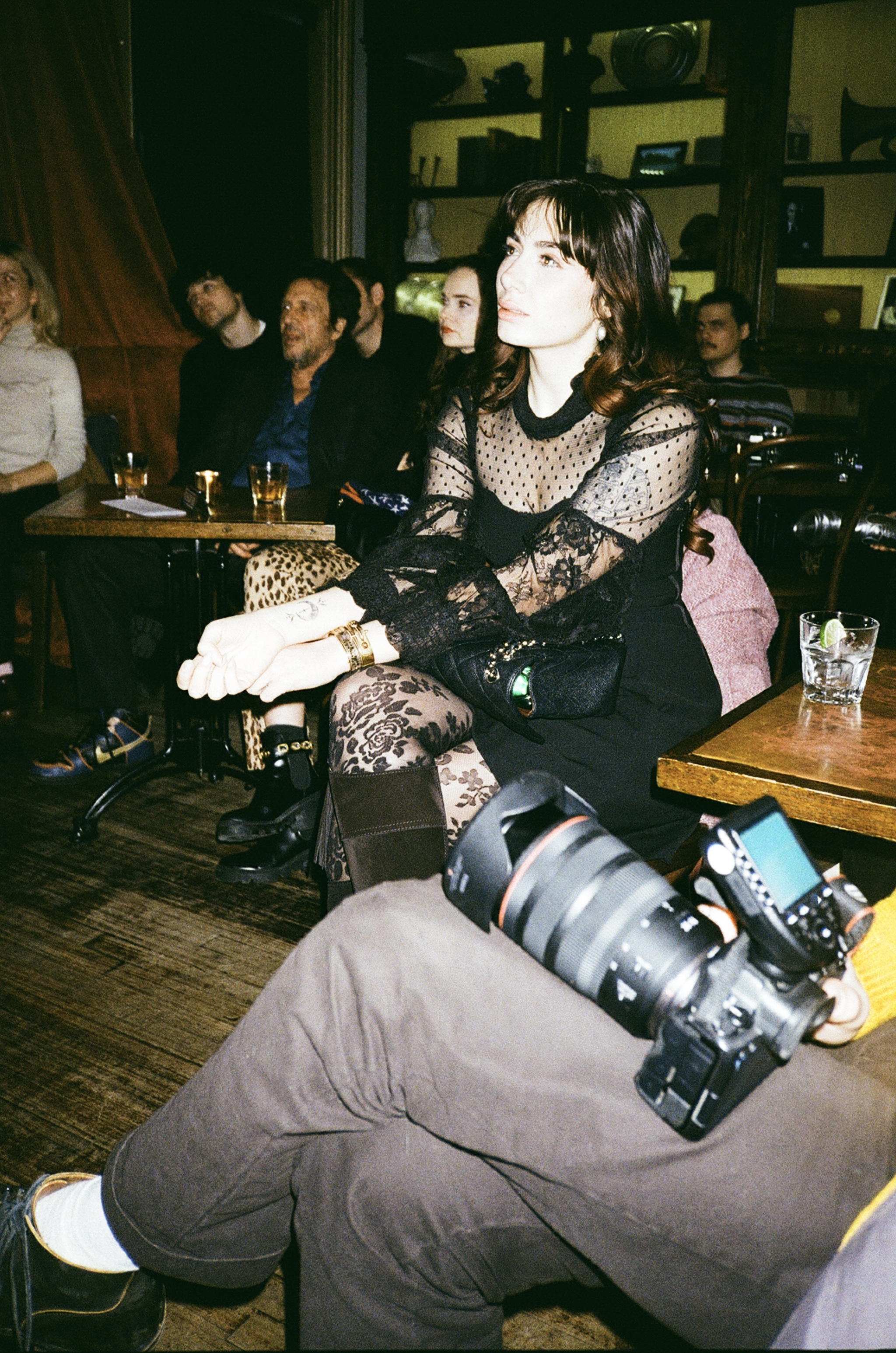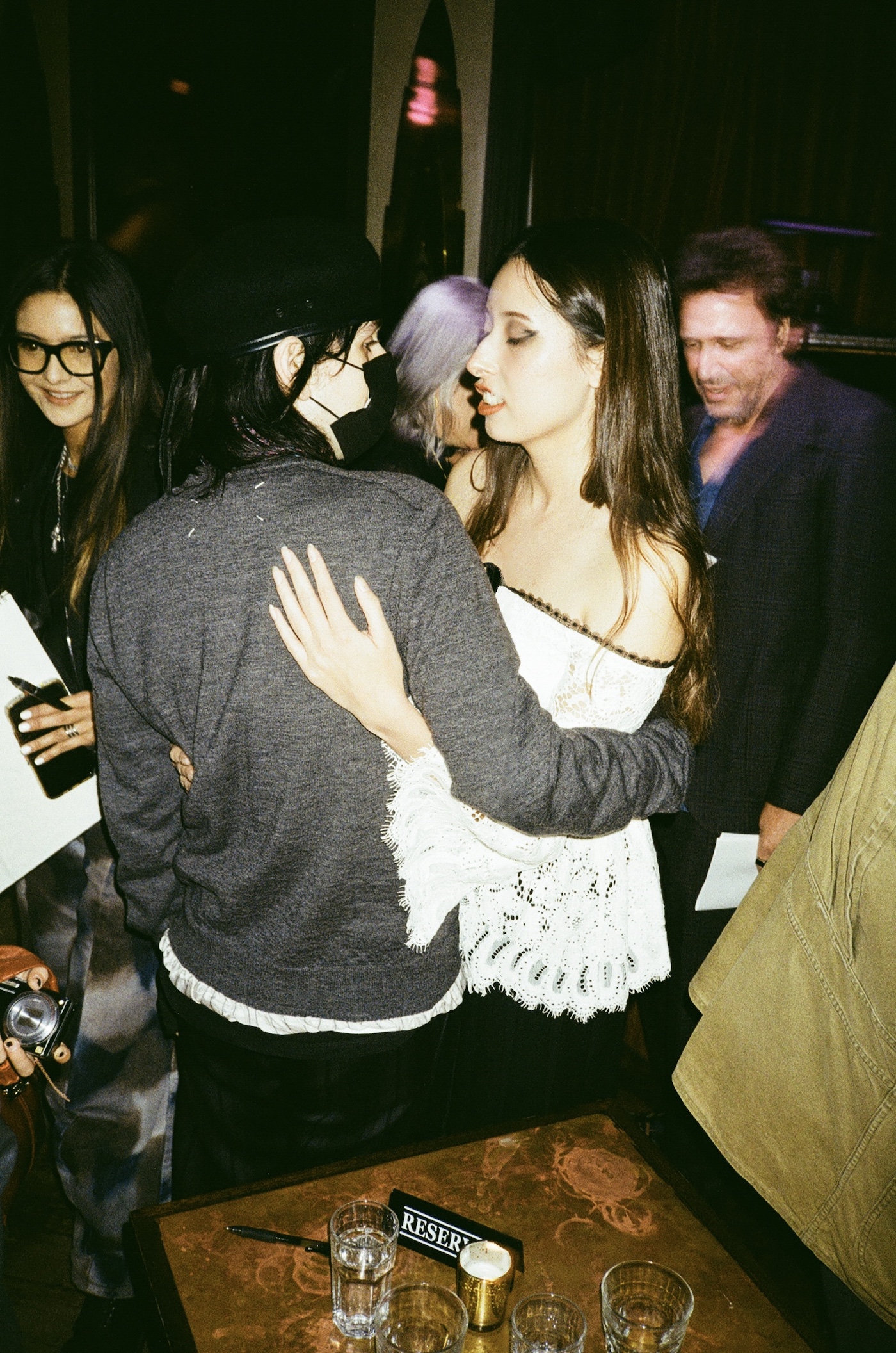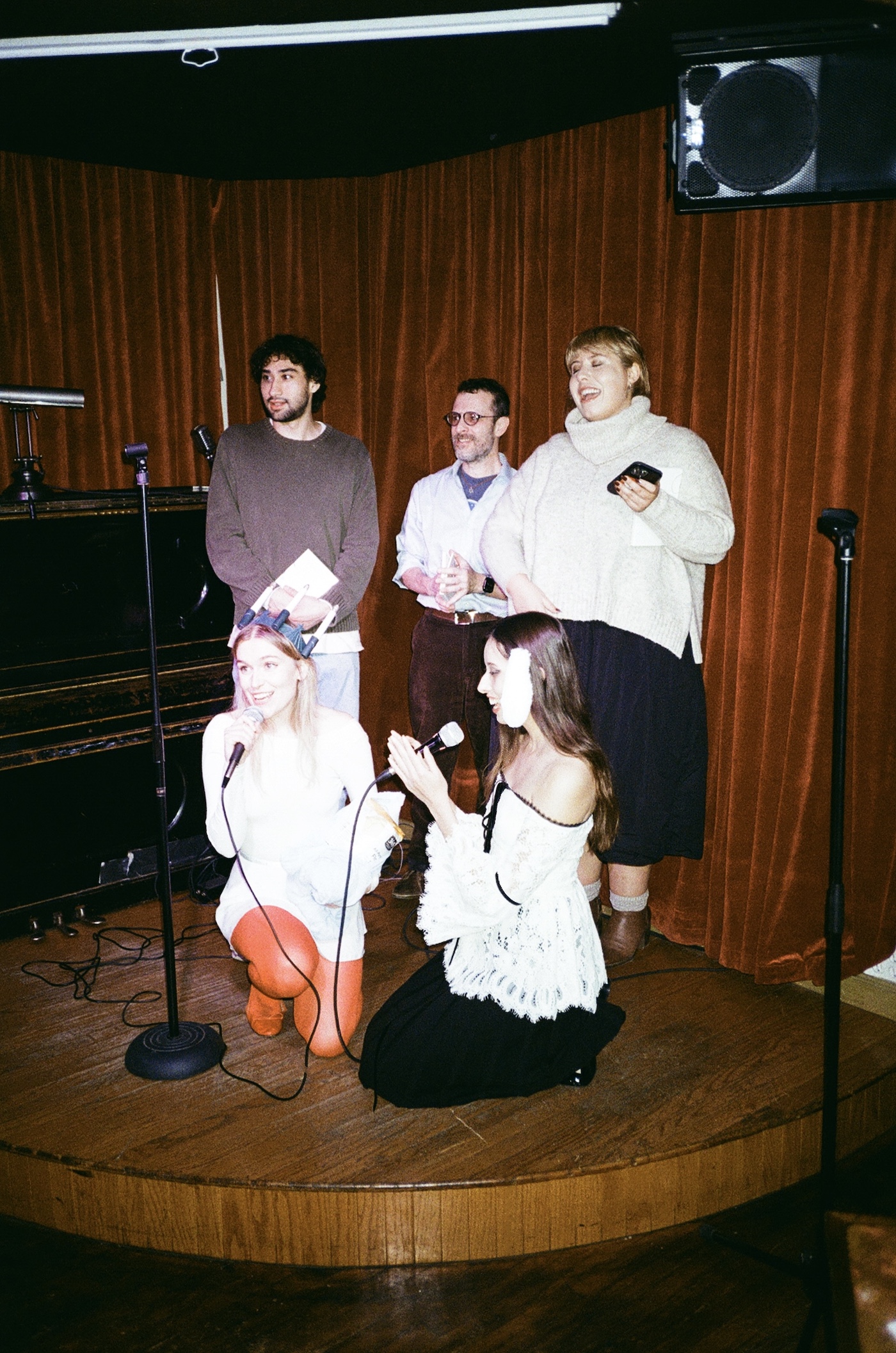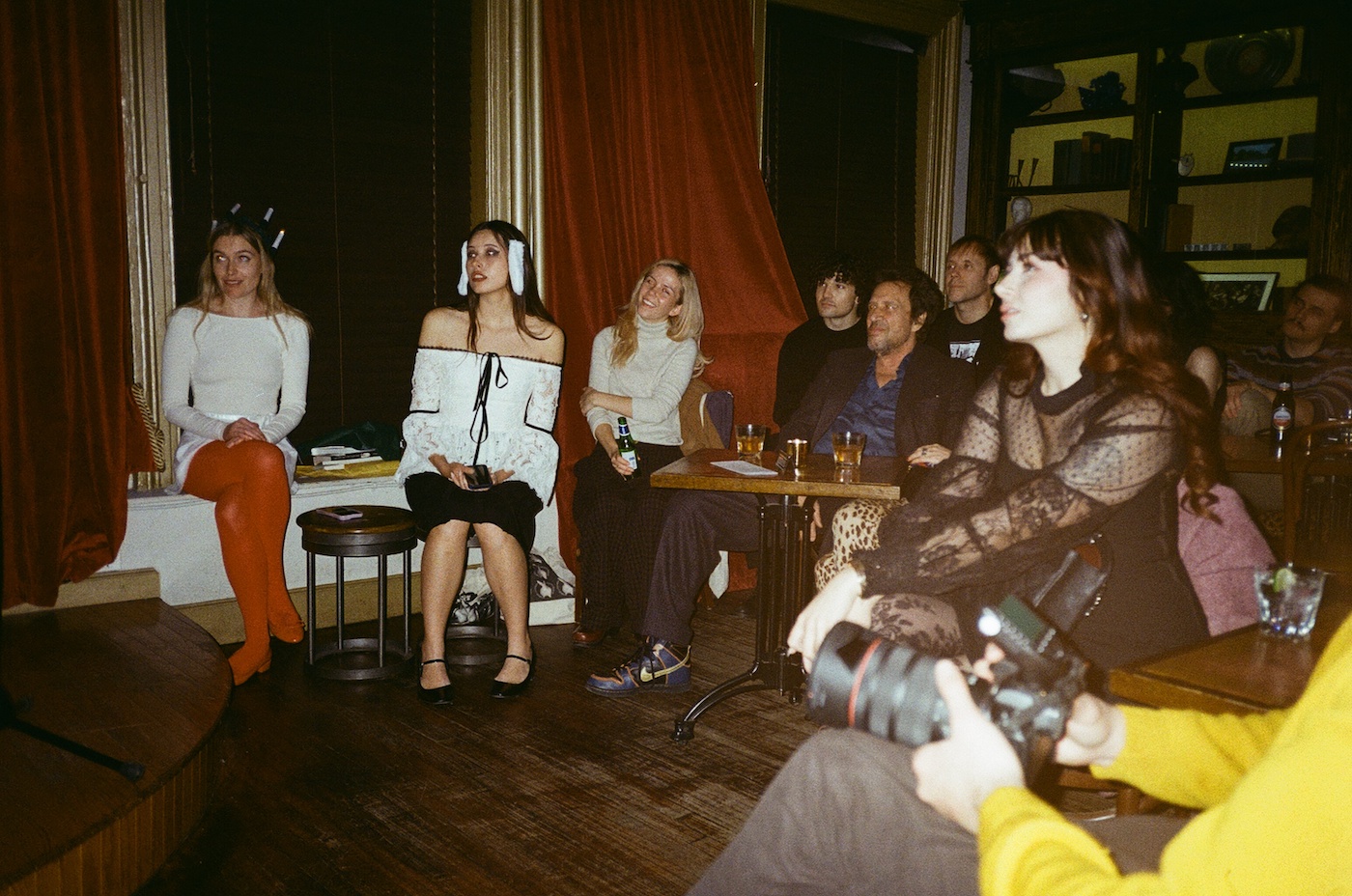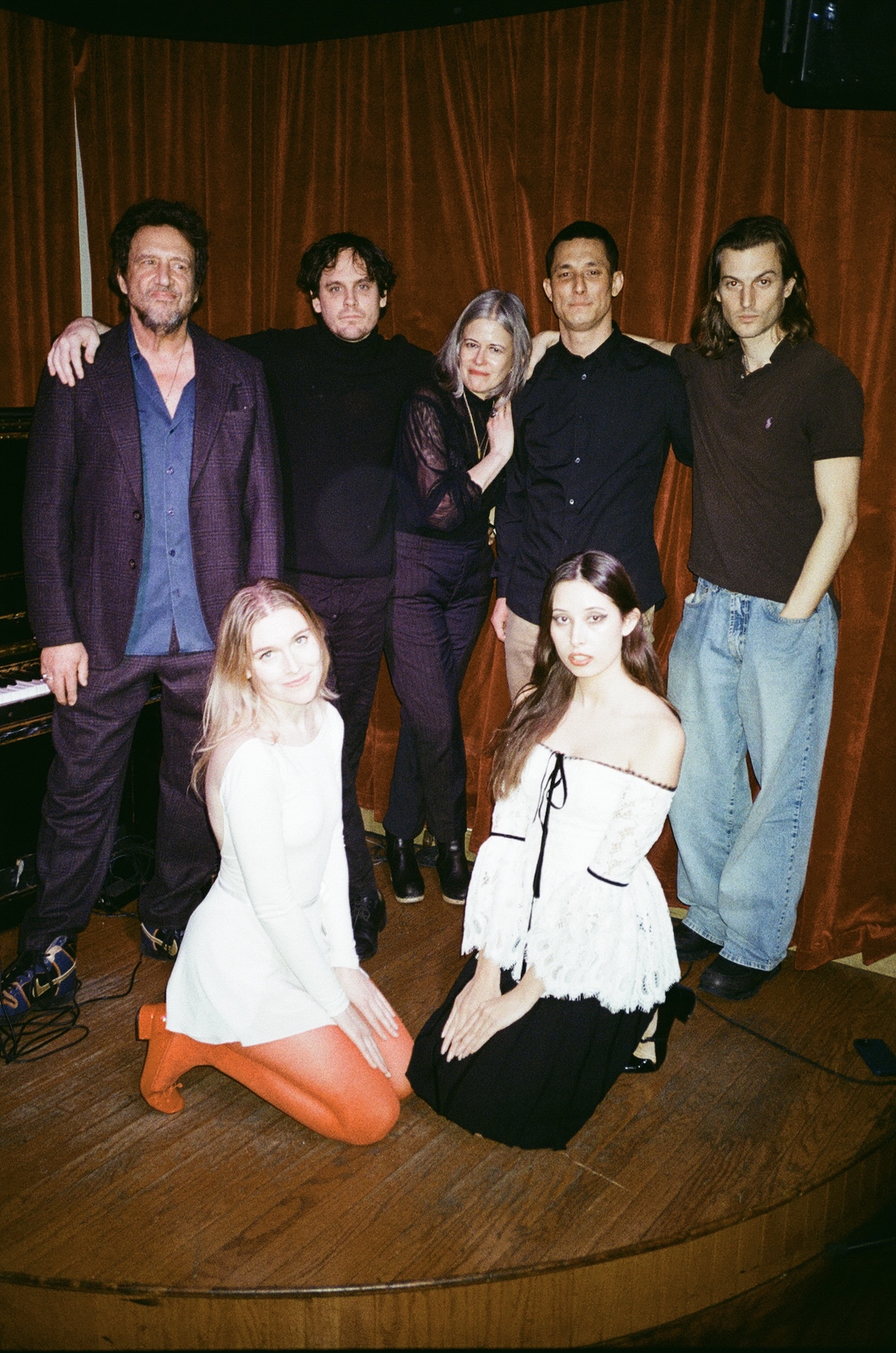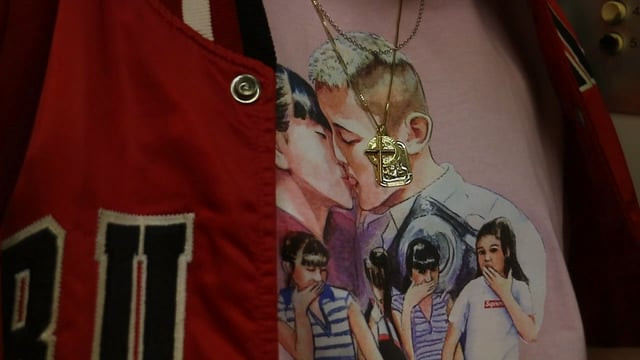Jan Gleie Gives You: Hypetrade
If you aren't currently in Copenhagen, you can always head to HYPETRADE.EU.
Stay informed on our latest news!
If you aren't currently in Copenhagen, you can always head to HYPETRADE.EU.
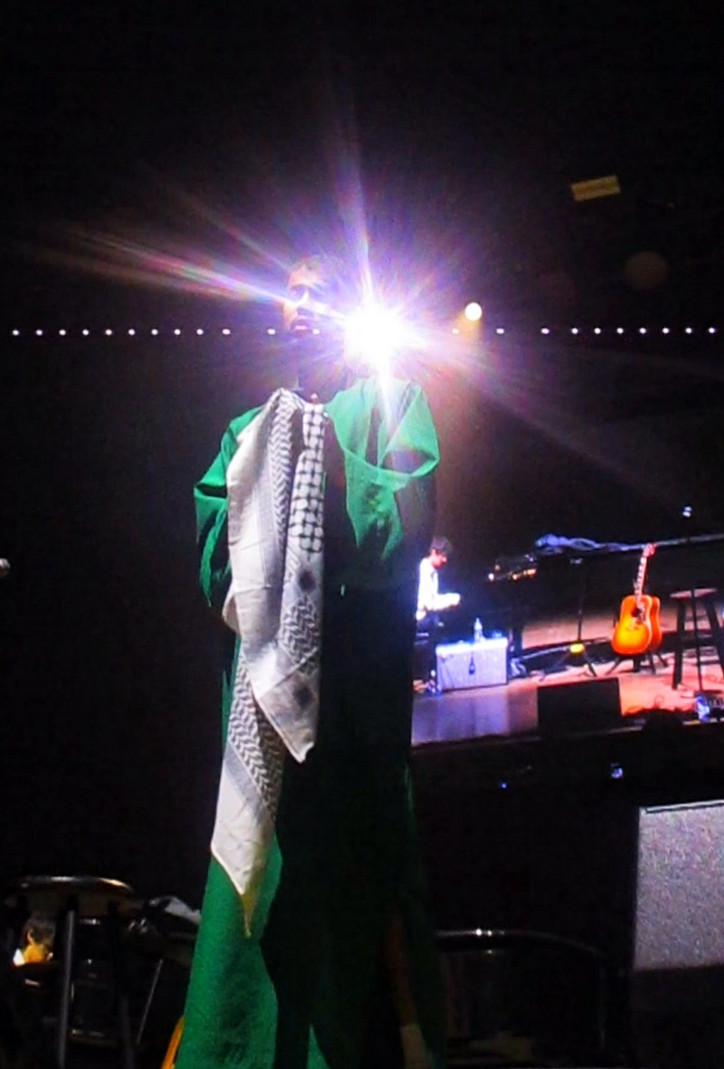
“He had a deep desire to begin a life there,” Mustafa says, describing his late brother. “My parents shared that desire with him. But the conditions of the war forced him back to Toronto, where he was murdered just six months ago.”
Mustafa didn’t bring that up for no reason. He acknowledged that everyone, no matter who you are, is connected to every war and everyone who dies because of it.
“We are connected to every genocide, and it will reach us eventually,” he says. “In my case, it reached me immediately, but it will reach us eventually. As Gwendolyn Brooks tells us, ‘We are each others’ harvests. We are each others’ business, and we are each other’s magnitude and bond.’ That’s what we are: here for each other tonight.”
As lights shone down in the colors of Gaza and Sudan, the show began with spoken word from poets Hala Alyan, Safia Elhillo, and Clairo on the guitar. It left the crowd empathizing with the grief, resilience, and experience of those in Gaza and Sudan.
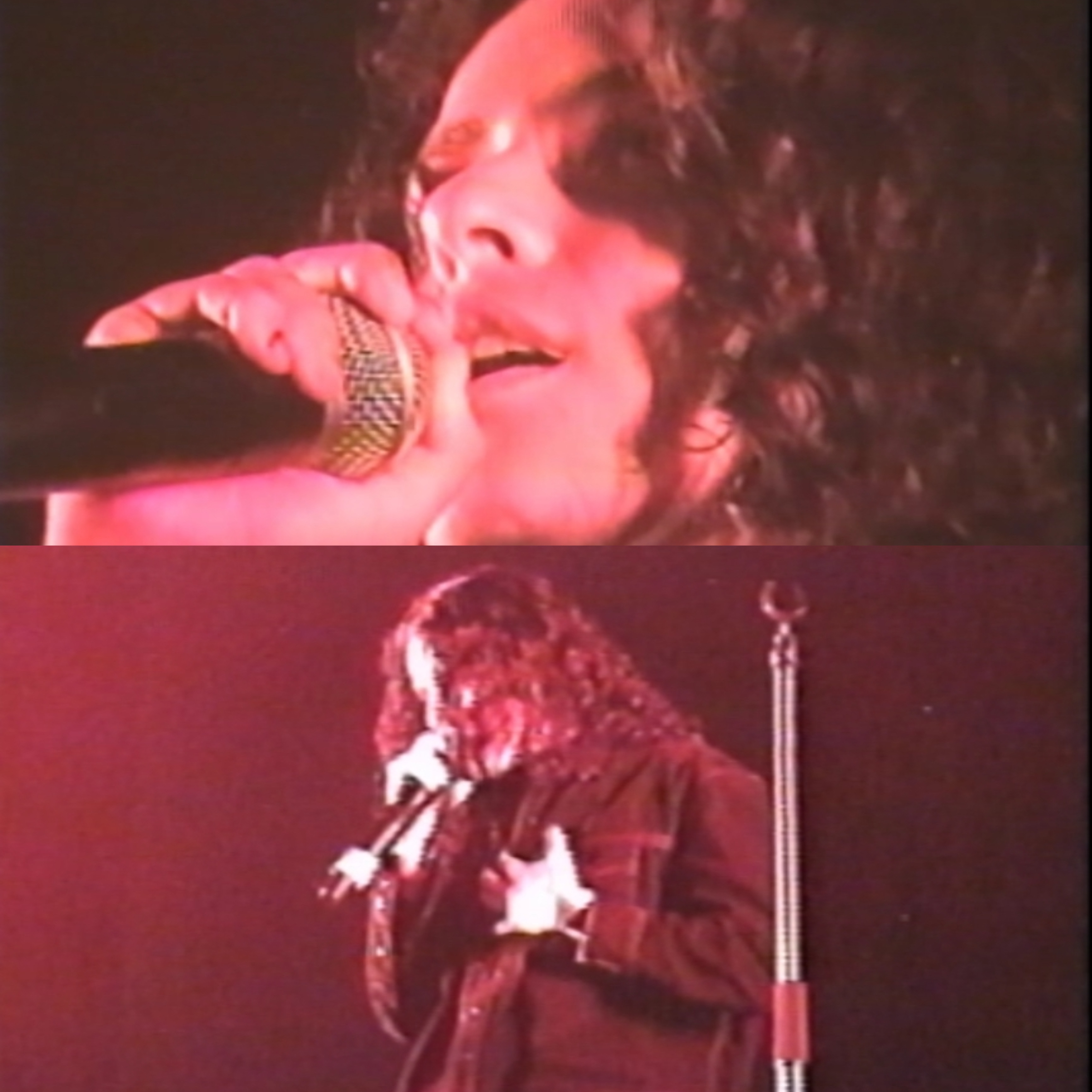
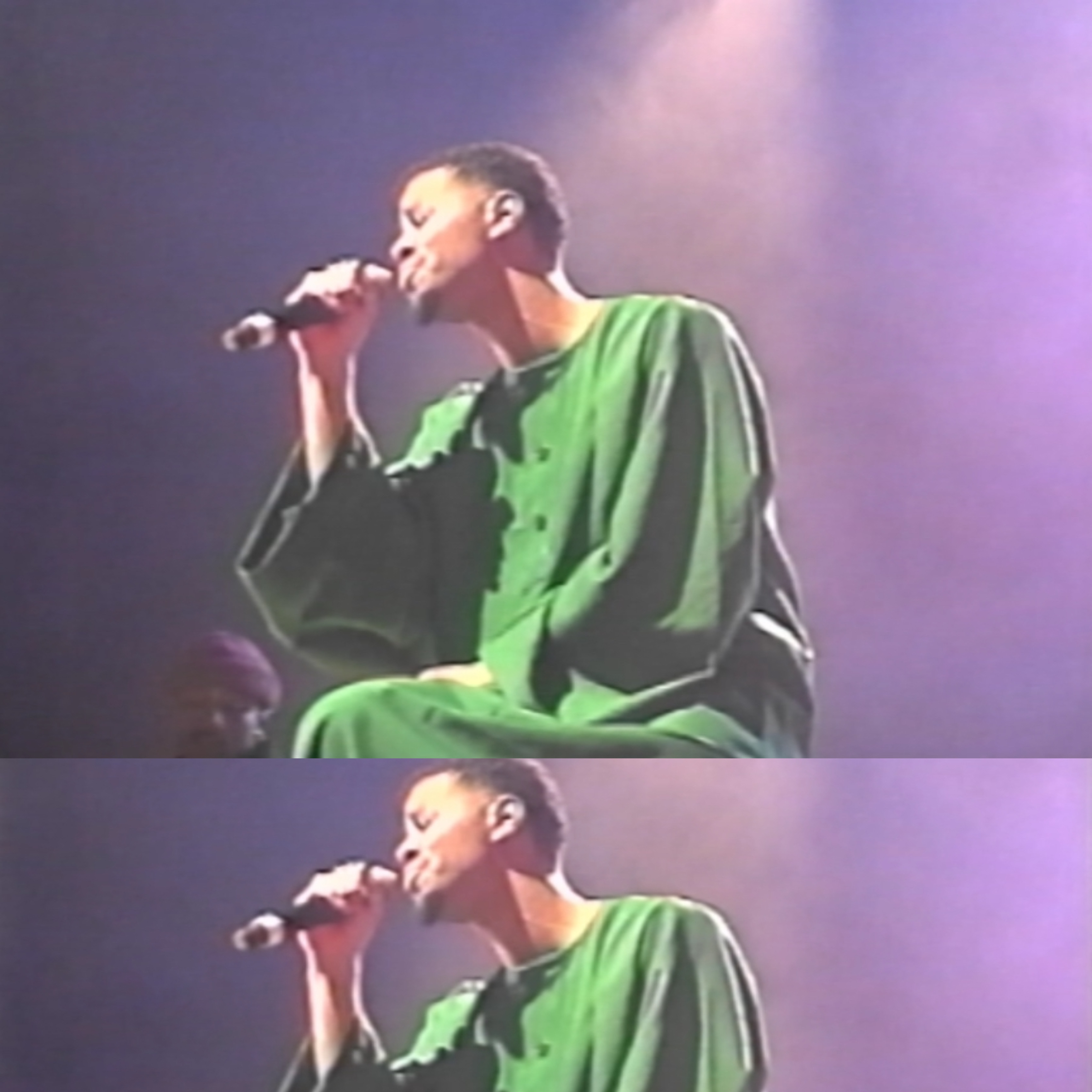
Each musician performed two songs on the acoustic guitar and the piano with gentle yet powerful voices. Clairo started us off by playing the acoustic guitar and a cover of Judee Sill’s “Lopin’ Along Thru the Cosmos.” Stormzy brought out some of his most gentle and soothing melodies, one song being “Holy Spirit” with his ethereal background singers.
6LACK performed an acoustic version of “PRBLMS” and a freestyle acknowledgment of genocide. Charlotte Day Wilson followed on the piano with her euphonious voice. The crowd went wild for Omar Apollo as he sang “3 Boys,” “Evergreen (You Didn’t Deserve Me At All,” and played the piano behind Mustafa's poetry. Mohammed El Kurd lost his passport so he couldn’t perform. Instead, Mustafa recited El Kurd’s poems on his behalf — and powerful was an understatement. Mustafa held a keffiyeh to symbolize empowerment and endurance throughout the genocides, then performed his own song, "Name of God."
070 Shake then took her hometown stage to perform her verse on “Violent Crimes” and a softer version of “Skin and Bones.” The crowd couldn’t contain themselves when Daniel Caesar performed his hit song “Best Part” on the guitar and had the crowd sing along to the impressive high-note parts that no one could hit except himself.

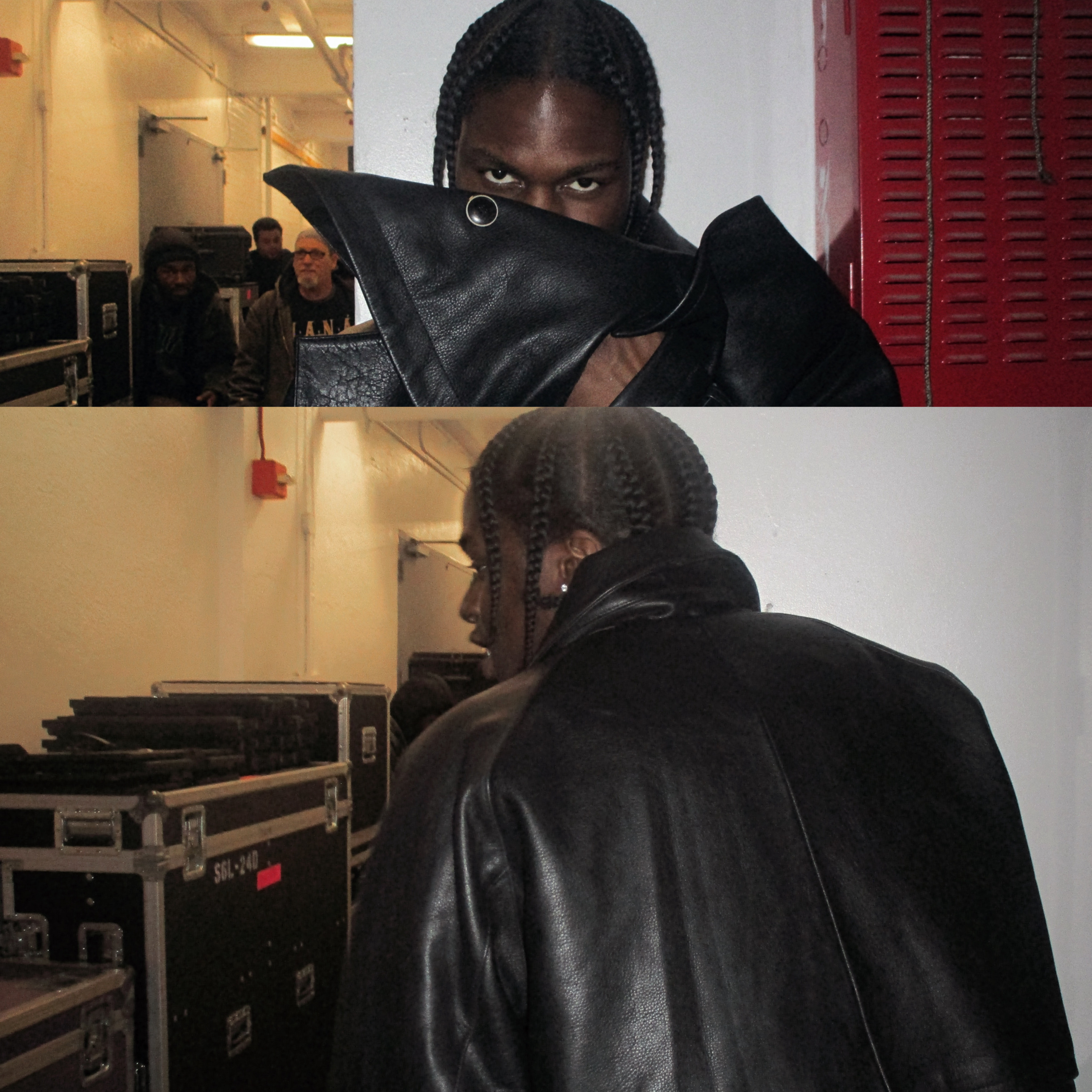
The show neared a close with a belting, heartfelt performance by Palestinian-Chilean singer Elyanna as an instrumentalist played the oud, an Arabic-stringed instrument. Nick Hakim sang and performed two moving songs on the piano. Palestinian rapper MC Abdul brought the crowd to life with his raps about occupation, dislocation, and genocide. Comedian and actor Ramy Youssef ended the show with a lighthearted comedy set to lift the crowd's mood.
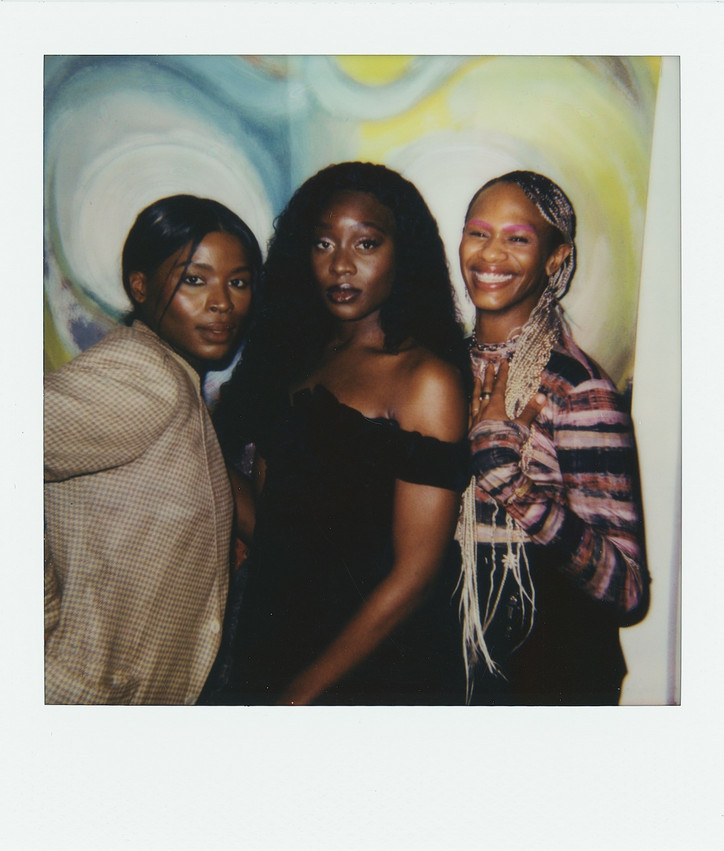
As I watched everyone move around, catching up, sharing laughter, stories, and wisdom over glasses of wine and plates of food, it truly felt like a space for a family sowing the seeds of a lasting legacy.
Historically, Black Trans people have faced significant barriers to building legacies. While space has often served as a balm and refuge for Trans communities, it has also been the site of ongoing violence and erasure. In response, the Angelito Collective poses vital questions: “How can collective care enable our community to exist in a way that is wealthy beyond financial means? And what does it mean to have wealth in our bodies, minds, and hearts?” Positioned at this critical threshold, co-founder Demíyah and the collective’s members — Angel, Kam, Sinn, Divine, and Ramie — challenge traditional notions of space by actively imagining and creating new ones.
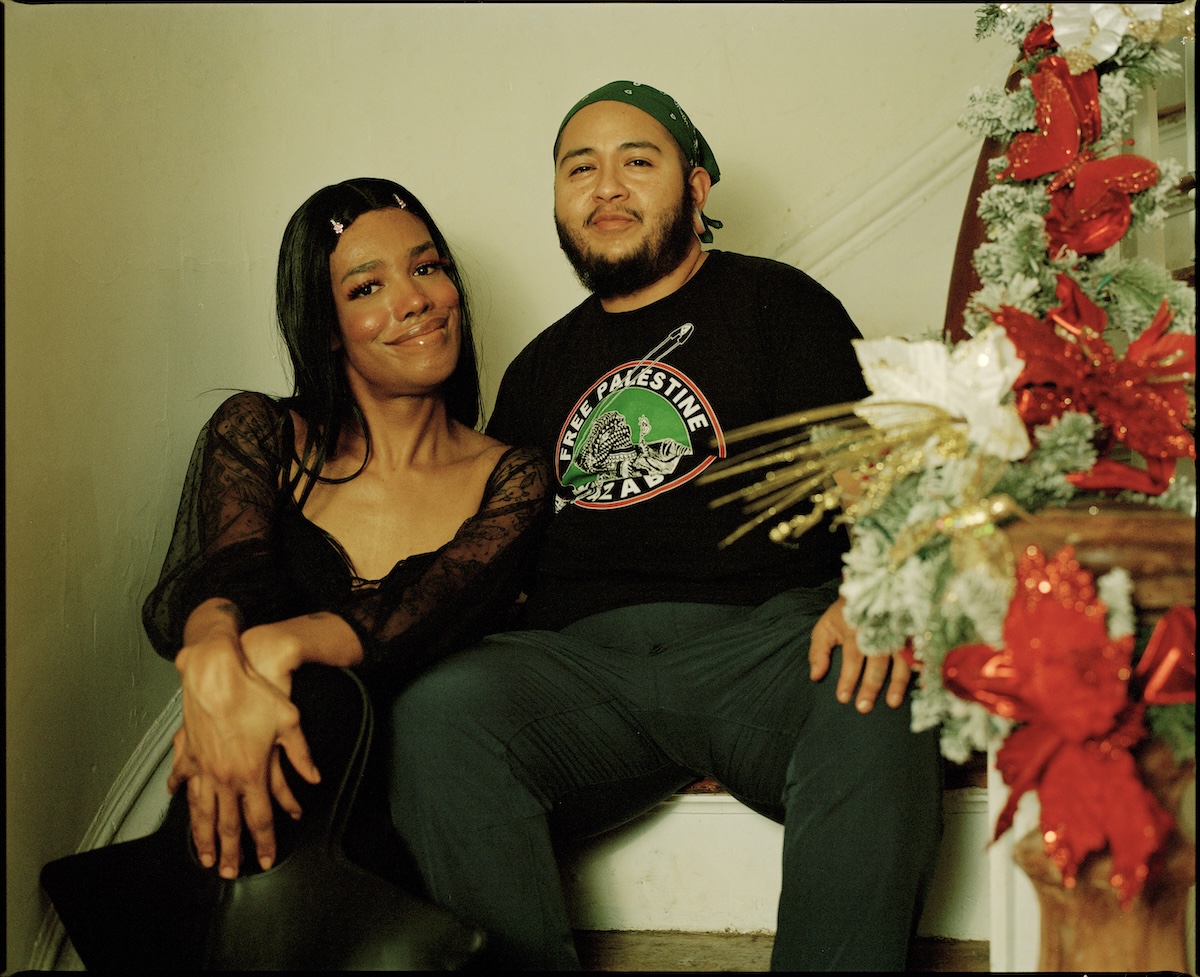
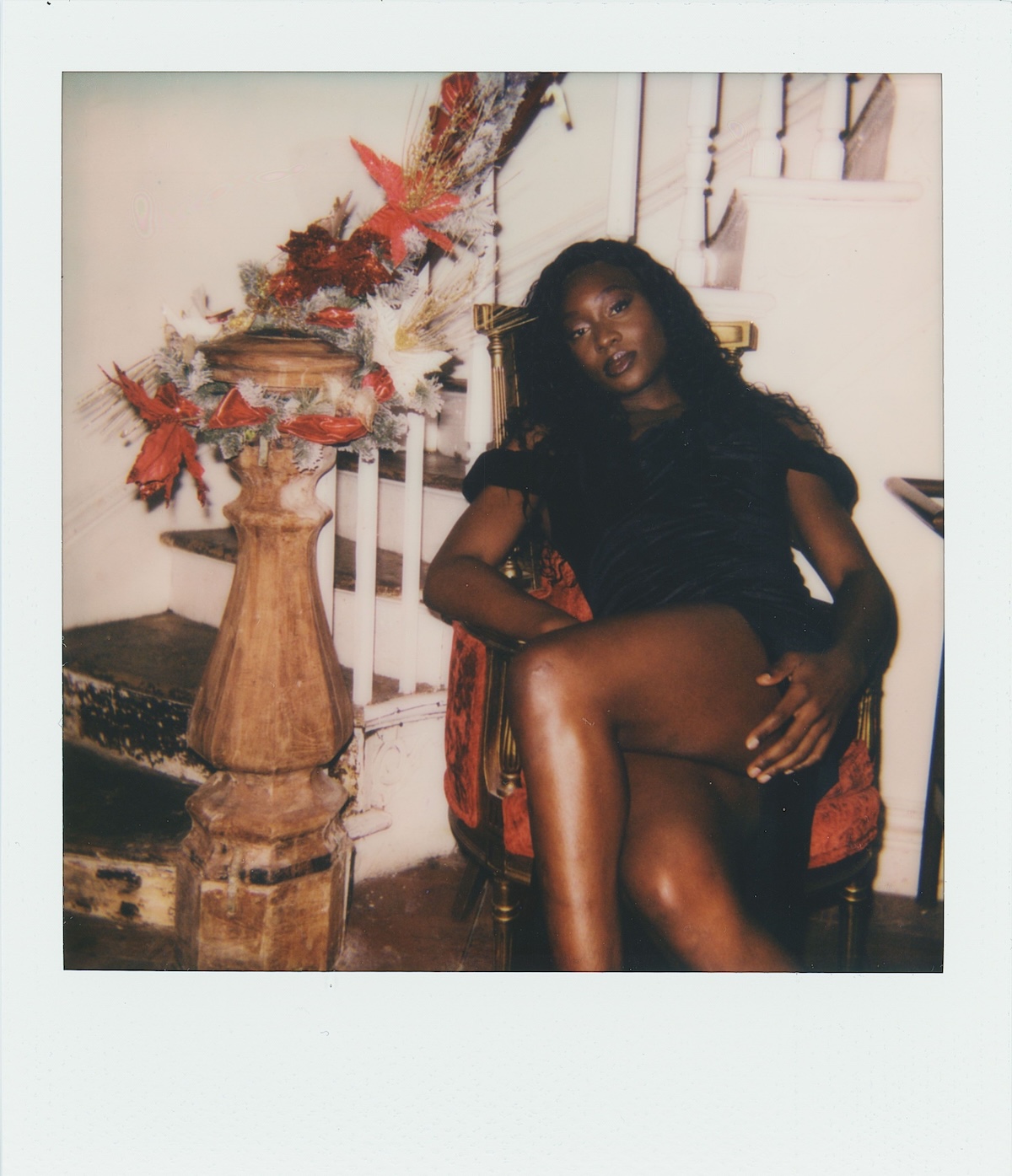
For Perez, “Nourishment can exist in so many different ways.” The dinners extend the meaning of wealth from monetary excess to forms of nourishment that sustain the body, mind, and soul. Safety is also paramount; attendees are provided with cars to and from the event and a $100 stipend to support any additional needs.
Attendees were encouraged to take part in healing modalities, such as ear acupuncture, craniosacral therapy, cupping, somatic therapy, and gua sha. Morning Glory a Bronx-based community garden that the collective frequently collaborates with, donated respiratory-support tea blends infused with raspberry leaf, shiso, mugwort, and echinacea. Milk Makeup provided thoughtfully curated product bags, while Star Route Farms supplied Kevin, the night’s chef, with fresh, seasonal produce for the menu. Attendees were also encouraged to bring their own dishes, fostering a sense of shared abundance.
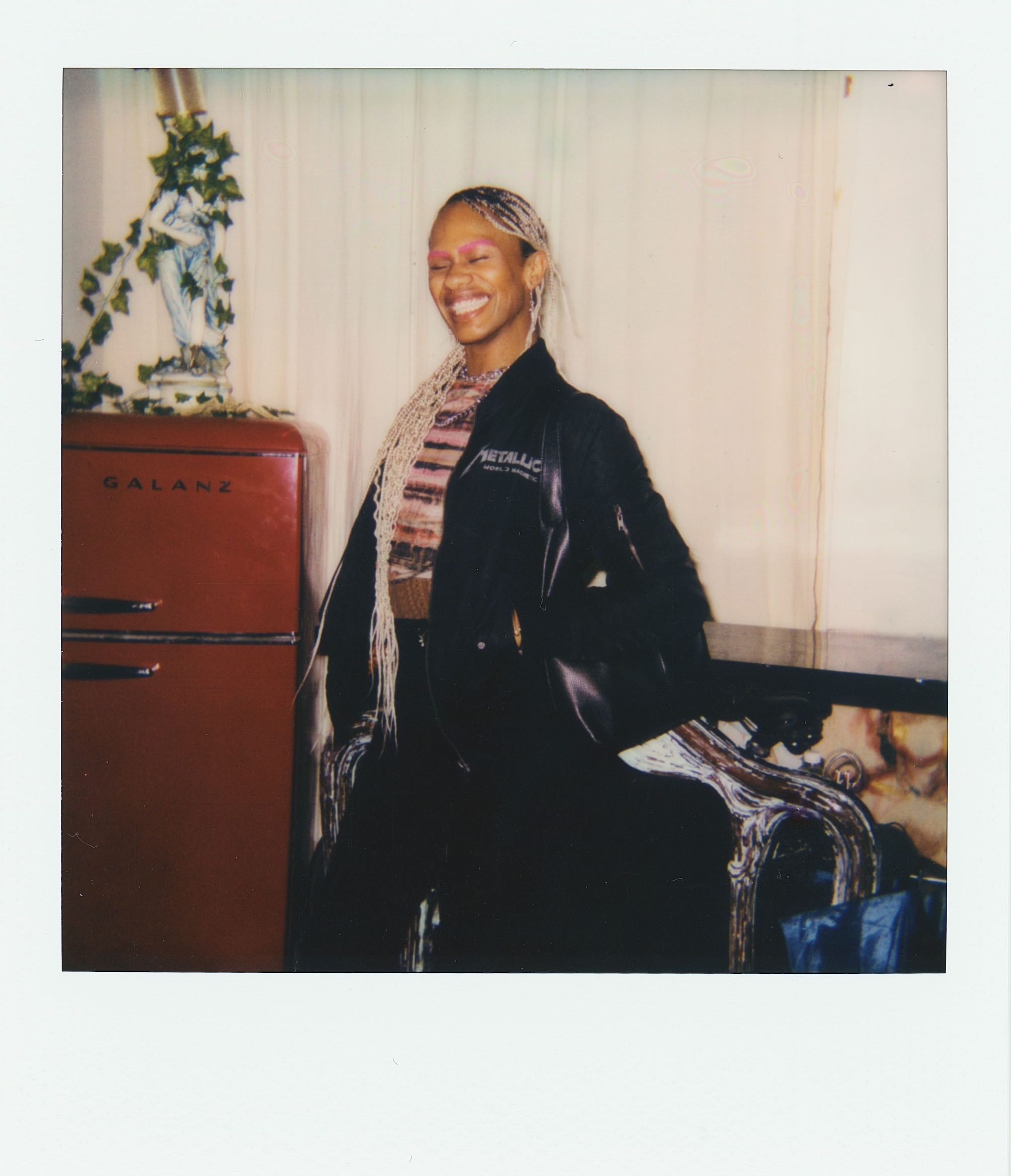

The love in the air was palpable, thick enough to slice through. Whether I had met some of these people minutes before or had known them for years, I was embraced with open arms. Ramie darted around the foyer, snapping portraits of everyone, ensuring attendees had tangible keepsakes to remember the evening by. For Isa, whom I sat next to while trying ear acupuncture for the first time (more on that later), it was her second dinner with the Angelito Collective. She had first joined the community during their screening of CIÓN, MAMI at the Brooklyn Museum in June 2022 and attended her first dinner the following February. Bunny, seated next to Isa, was also trying ear acupuncture for the first time. For both, it wasn’t just the healing practices that resonated but the buzz of community — a sense of belonging that surged as five small needles pricked their ears, electrifying their senses.
When it came time to eat, I found myself sitting next to Divine and Kam, who reflected on the evolution of these gatherings. “It’s nice to have a space like this," Kam said. "Some of these people have been coming around for three years — it’s like family.” Watching Divine, Angel, and Sinn move around the room, ensuring everyone had experienced a healing practice, taken a portrait, and eaten their fill, it was clear just how deeply they cared about fostering this space.
As the evening wound down, I made my rounds to say goodbye to both familiar and new faces. Stepping into the kitchen, I was struck by Ramie’s Polaroids, neatly arranged on the mantle for everyone to admire.
Submissions for the next dinner, anticipated to happen in the spring, are now open. You can donate and support the next dinner here.
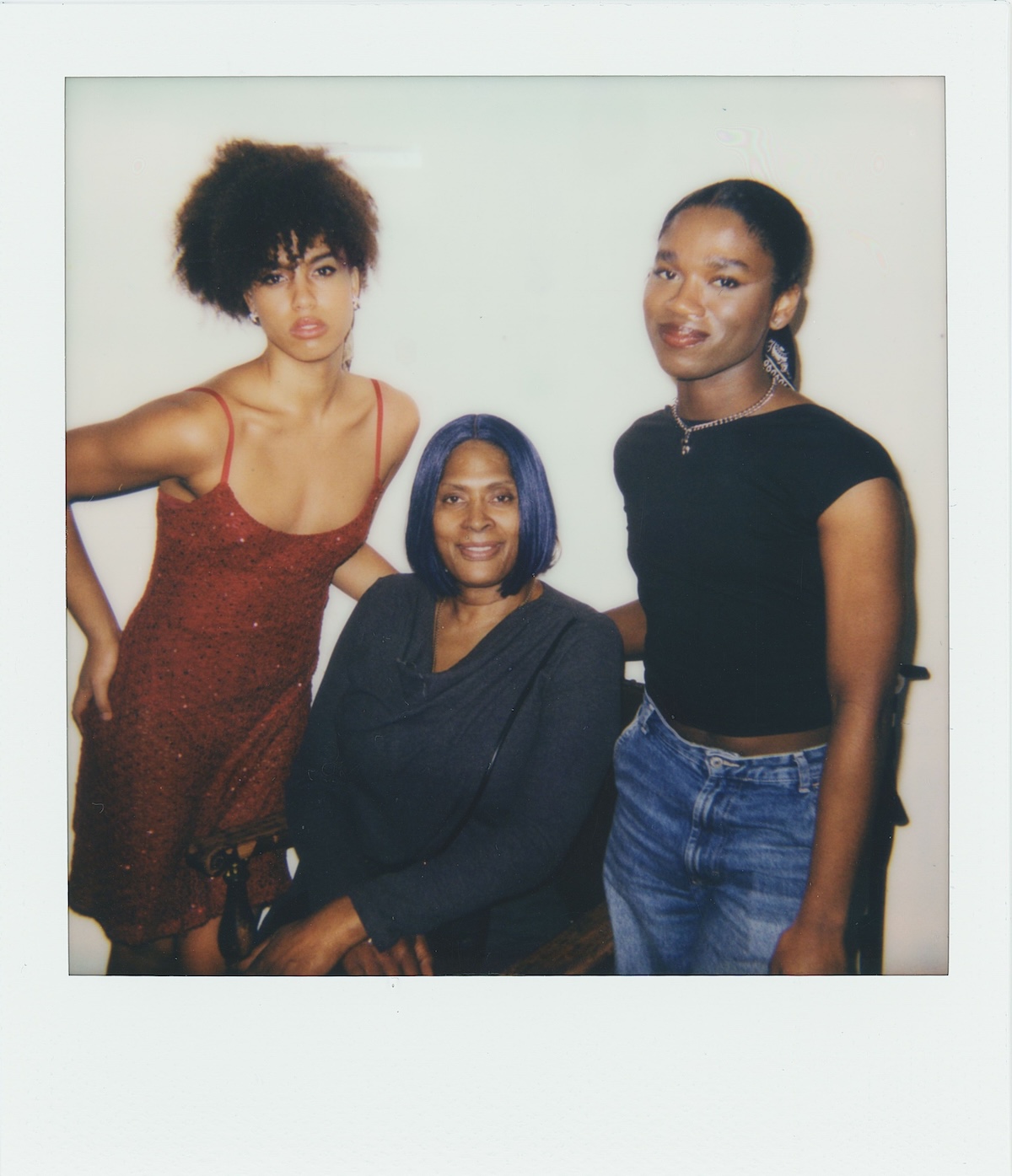
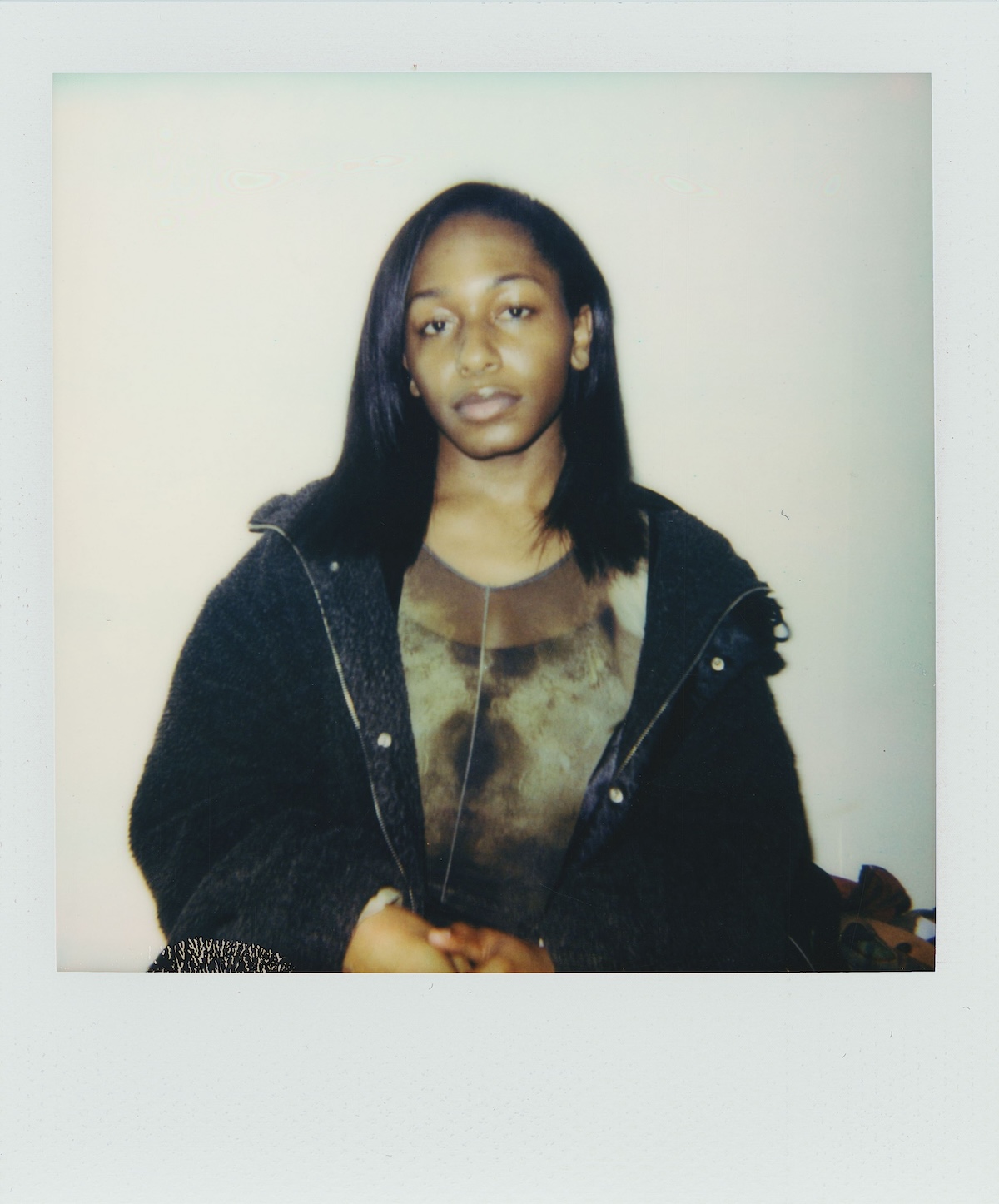
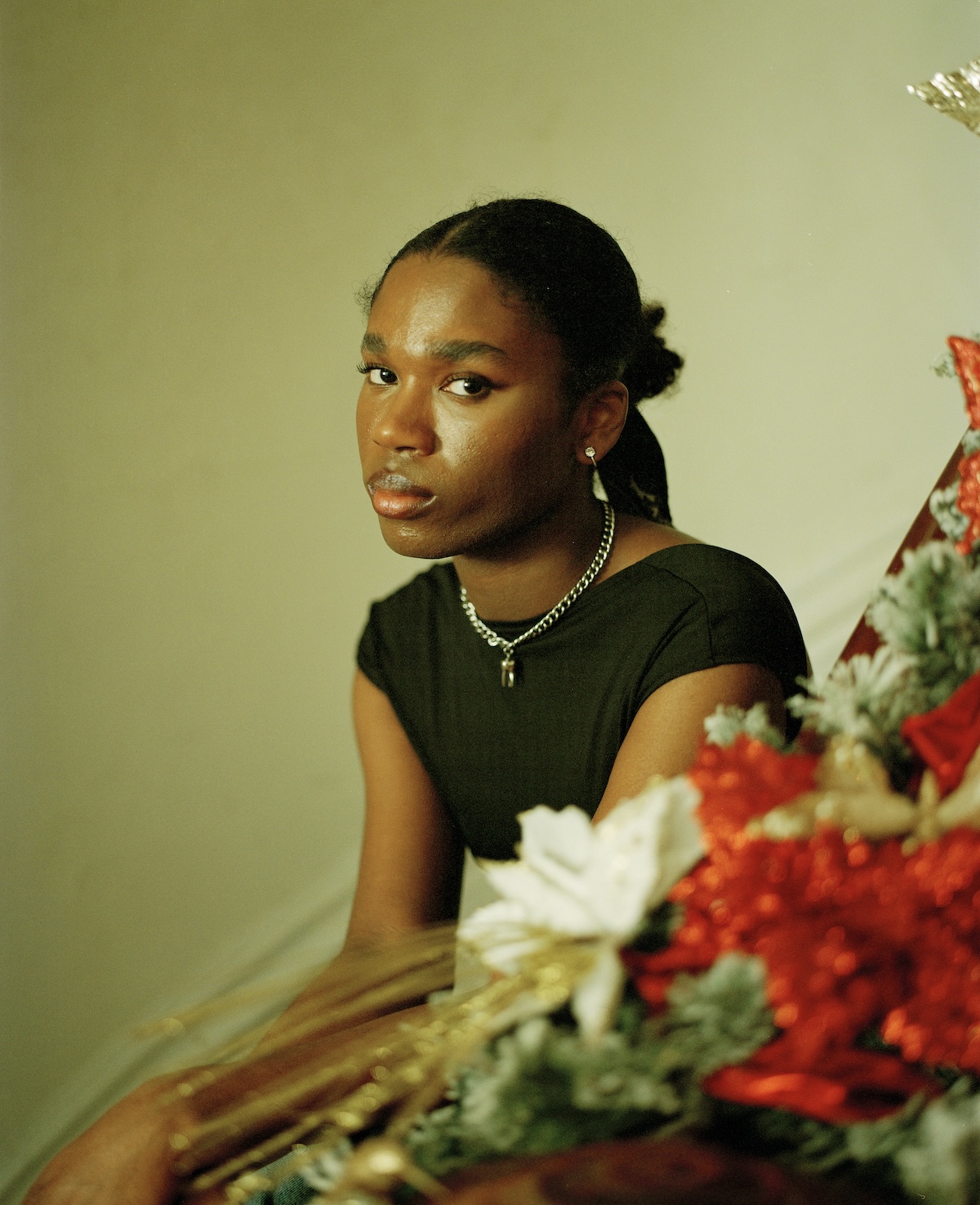
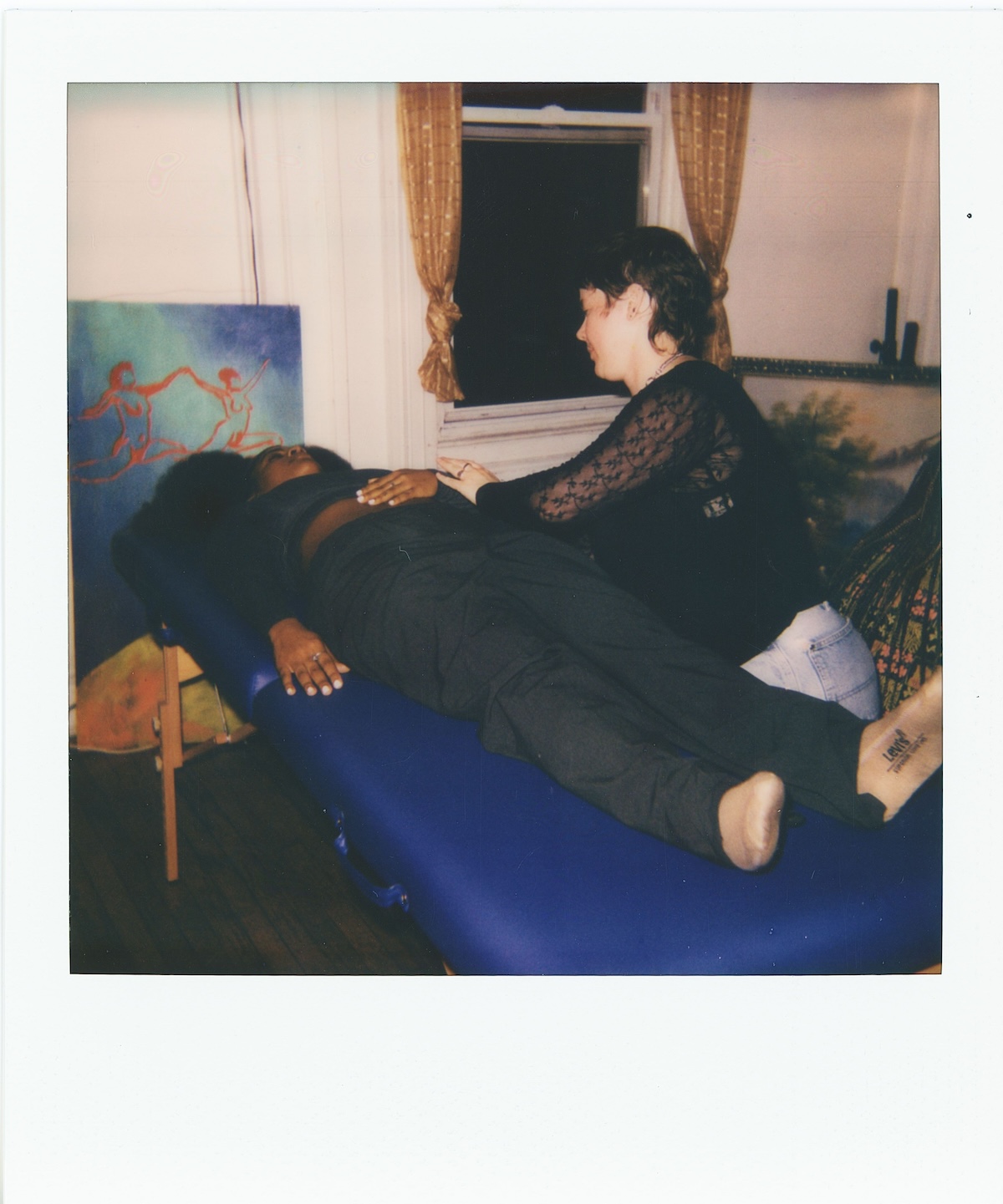
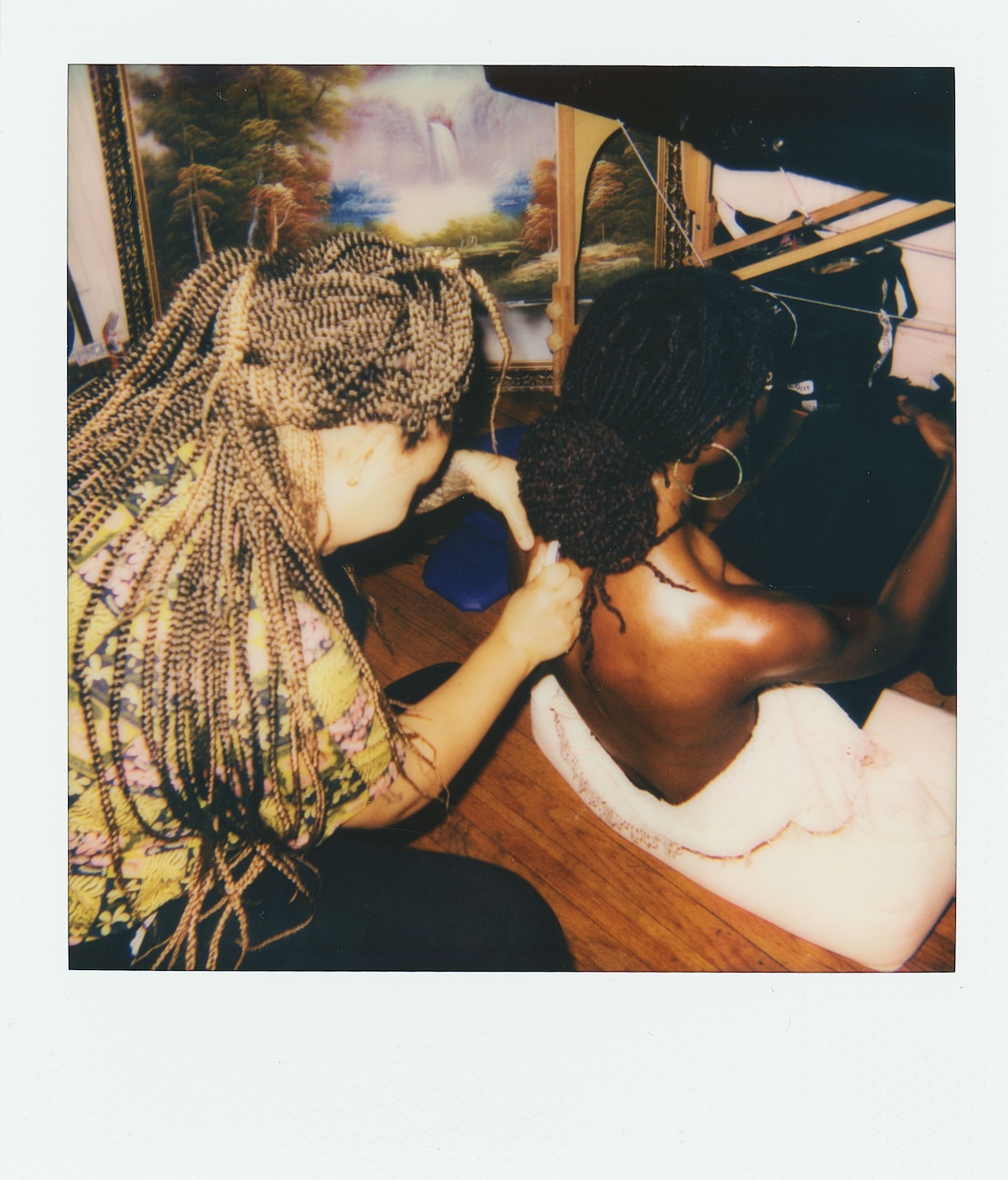
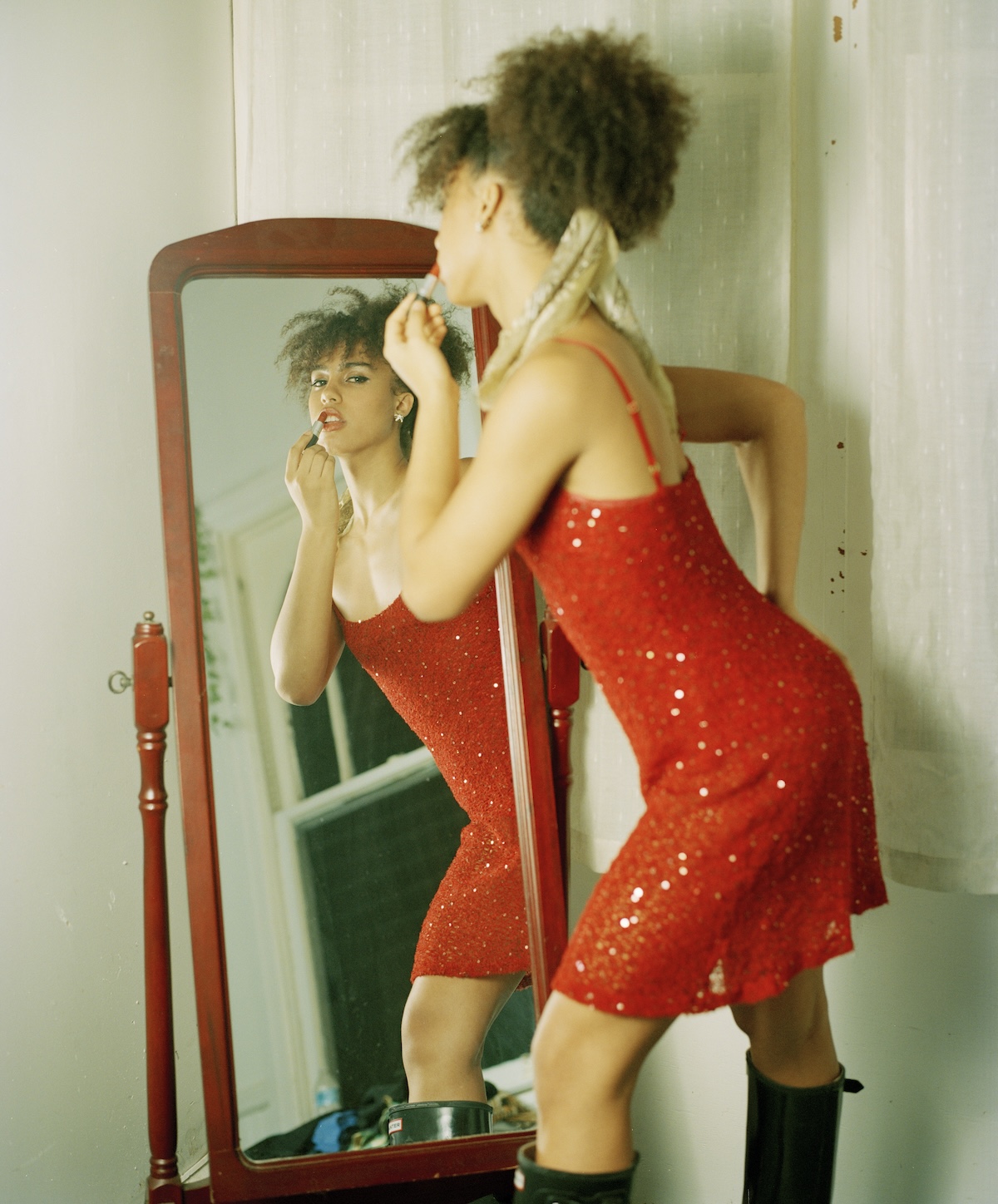
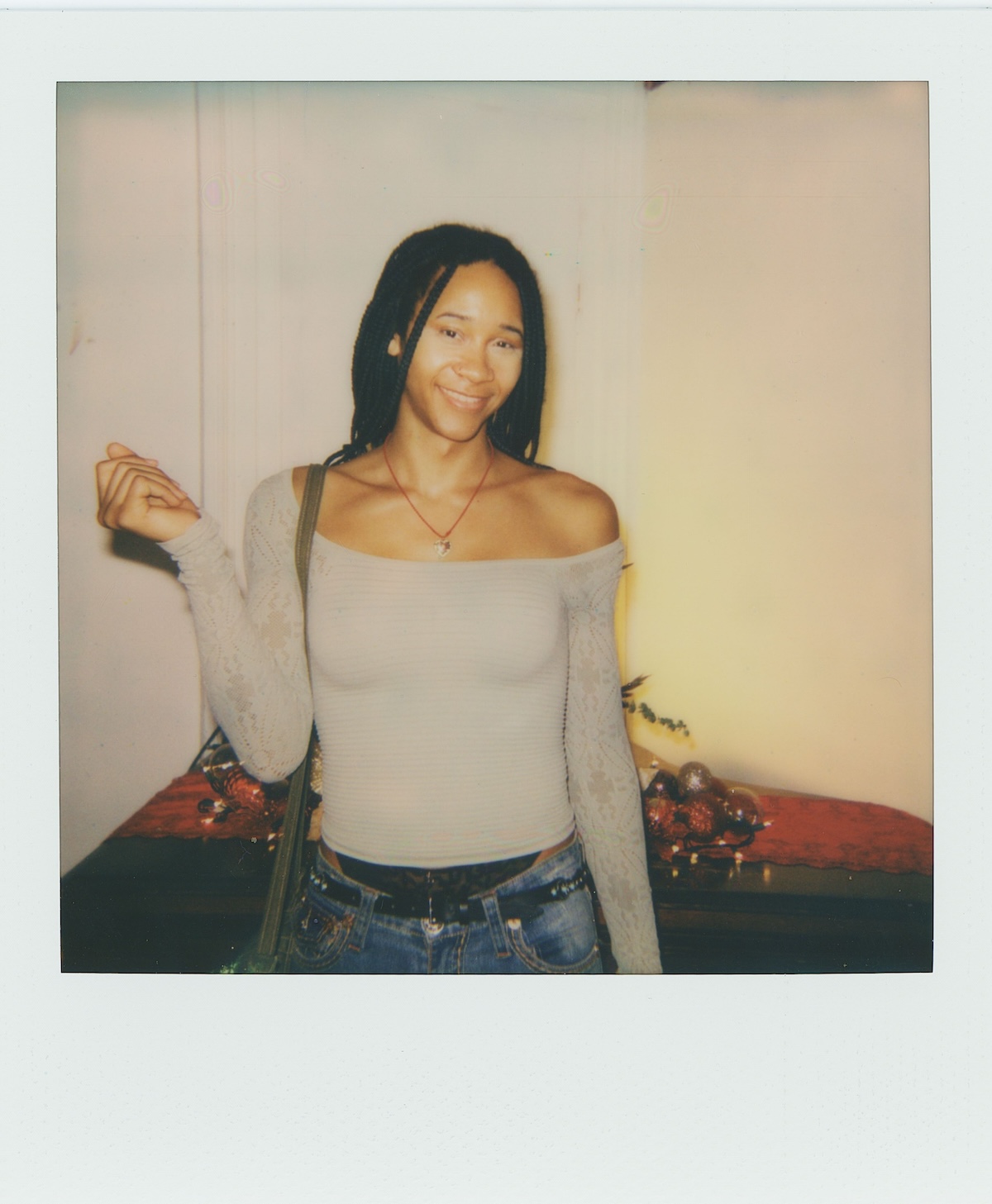
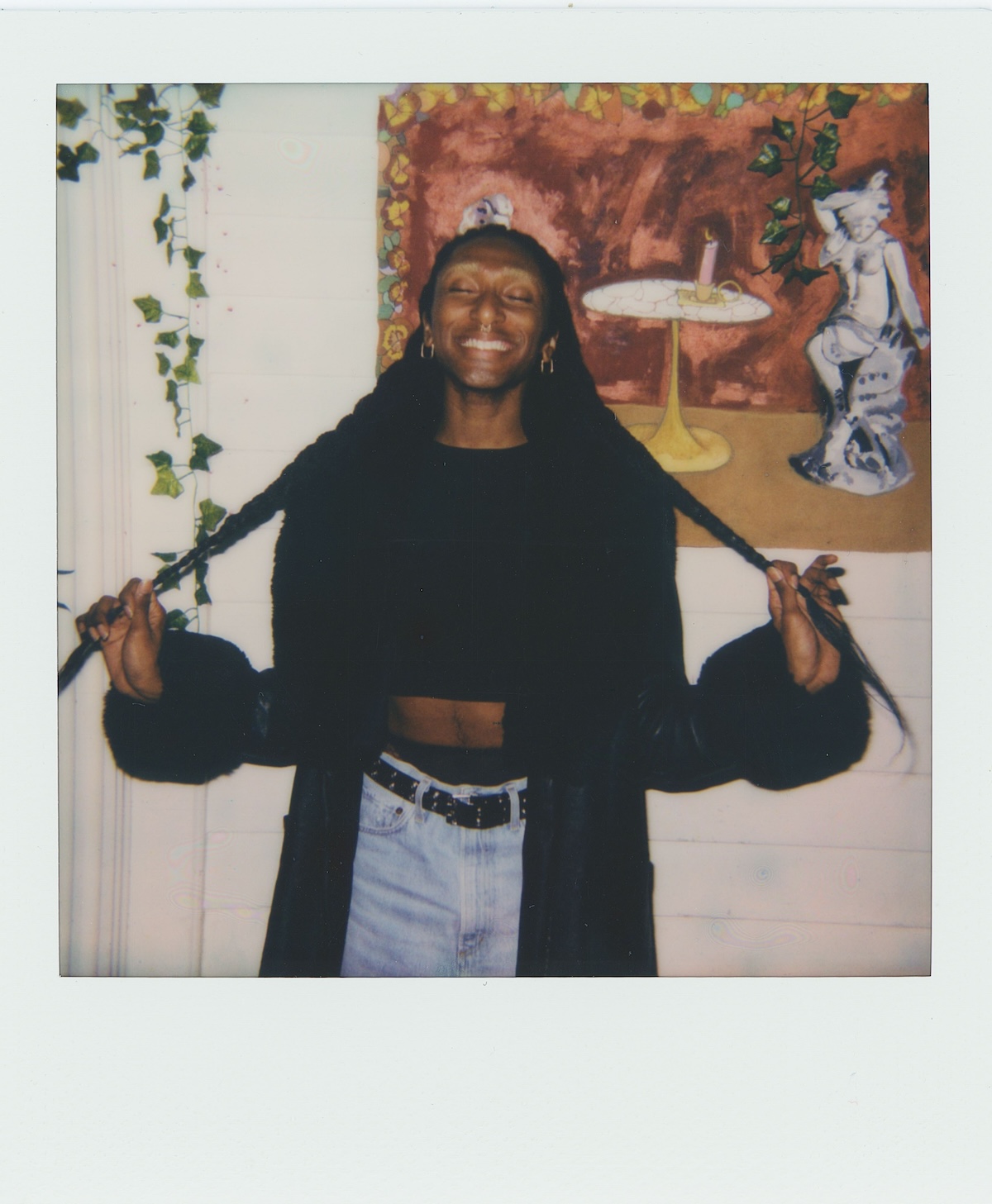
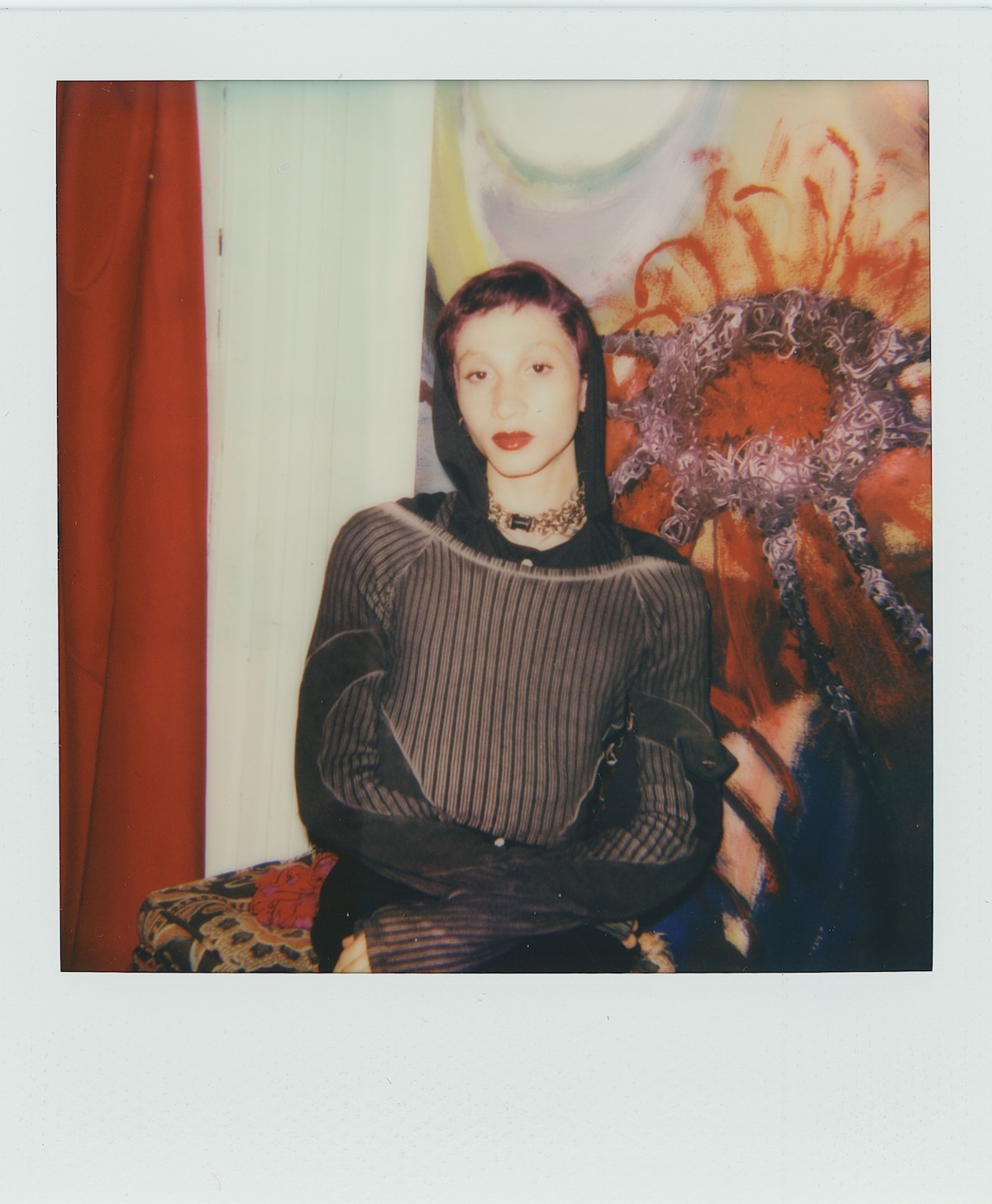


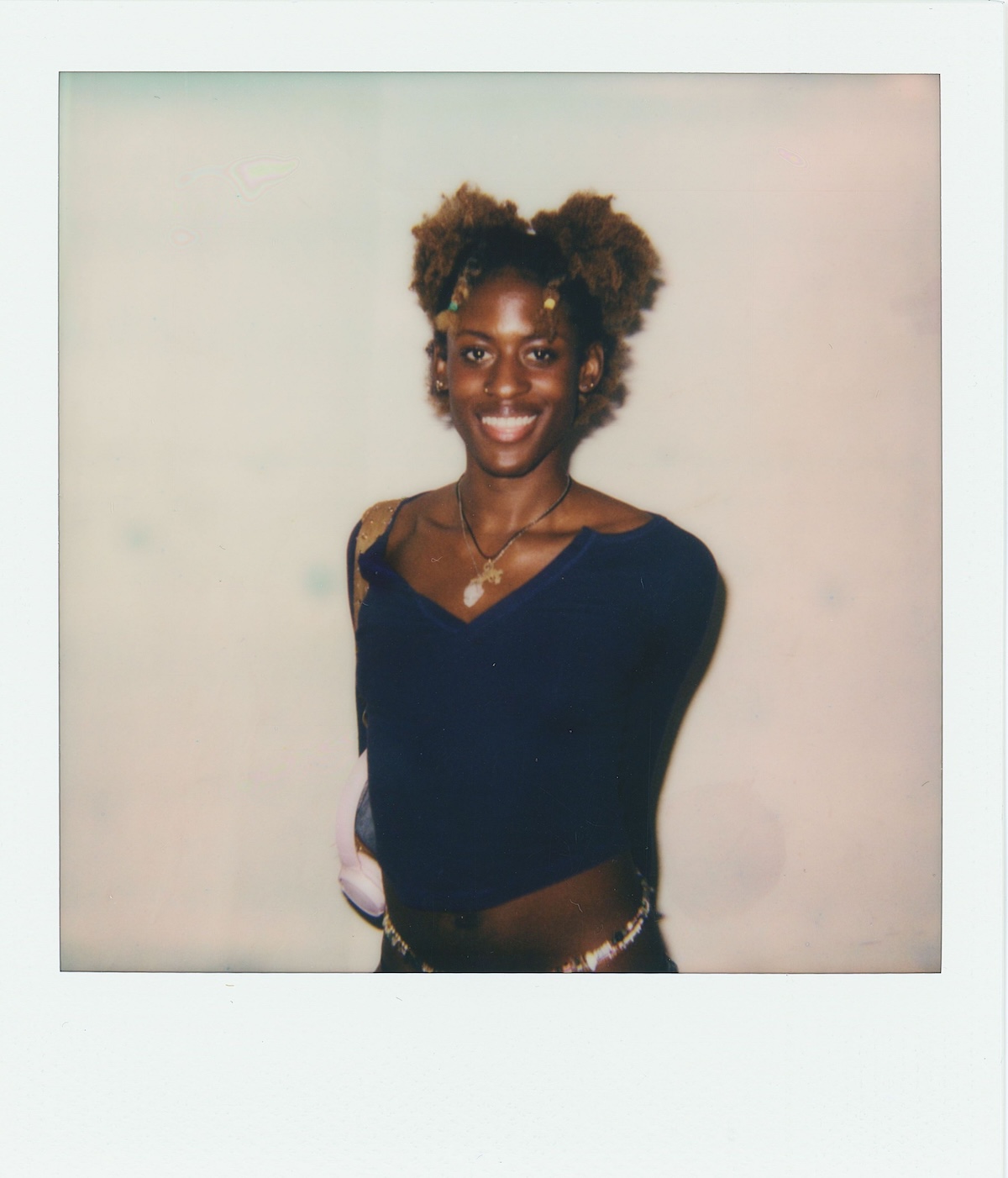


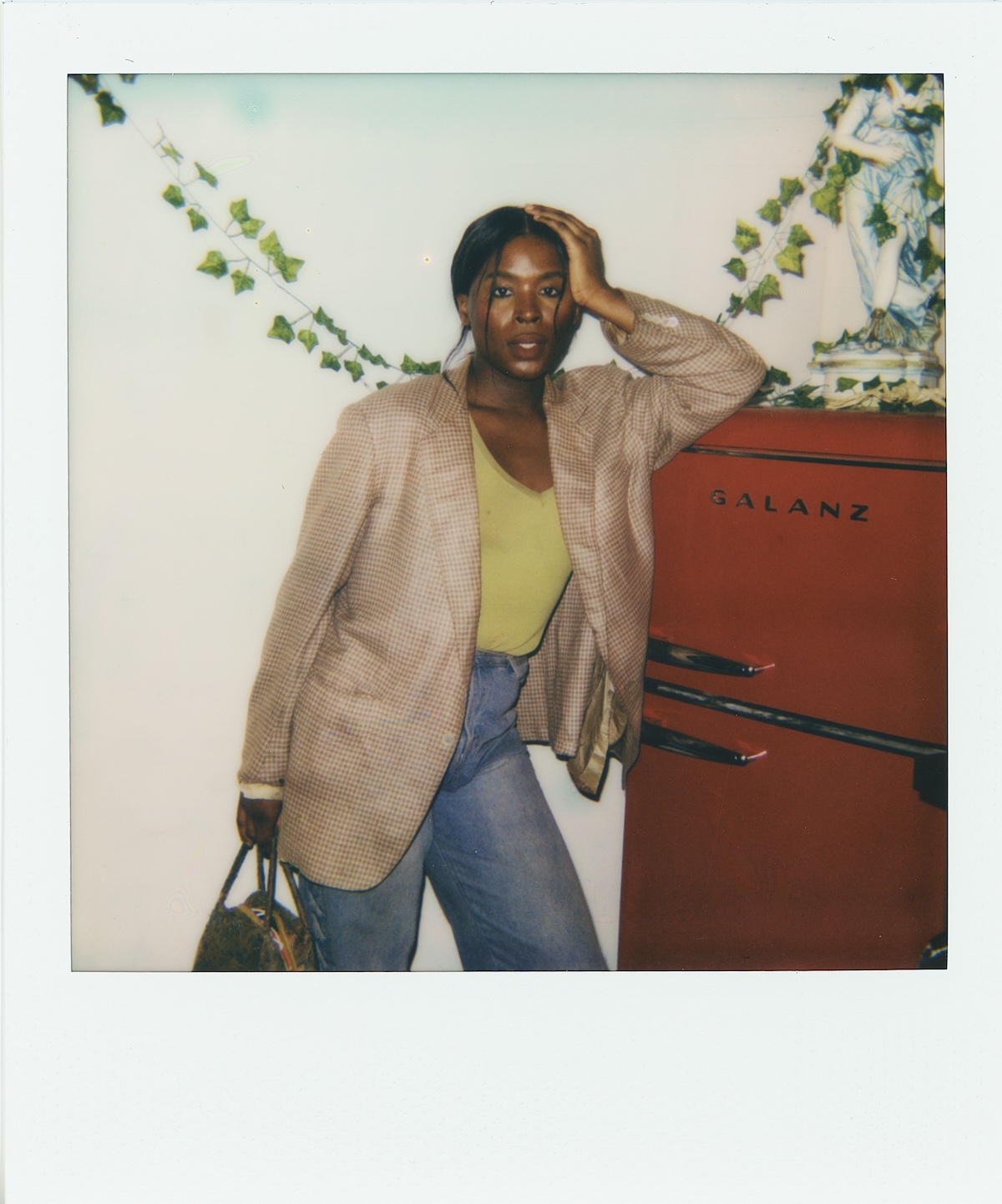

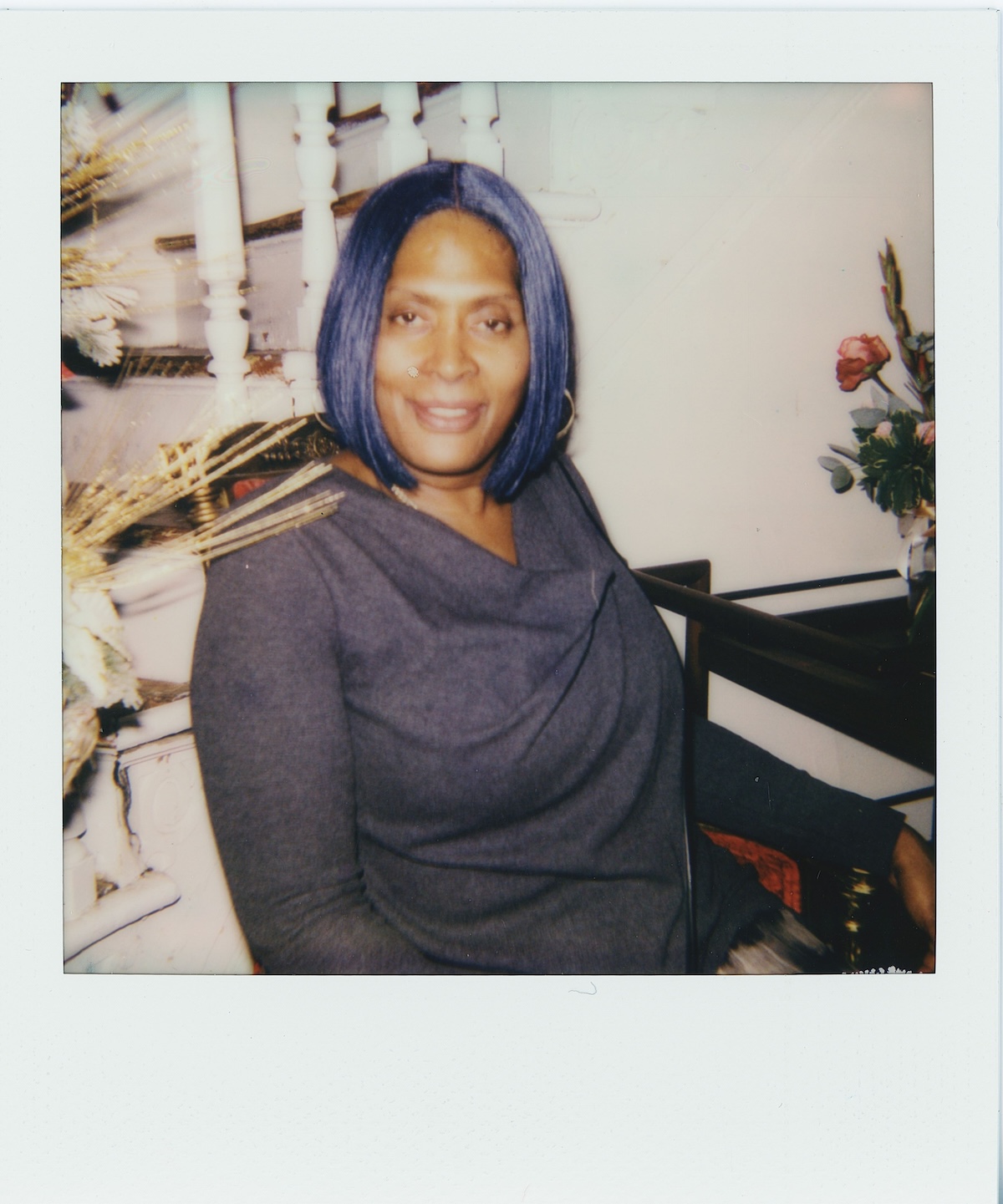
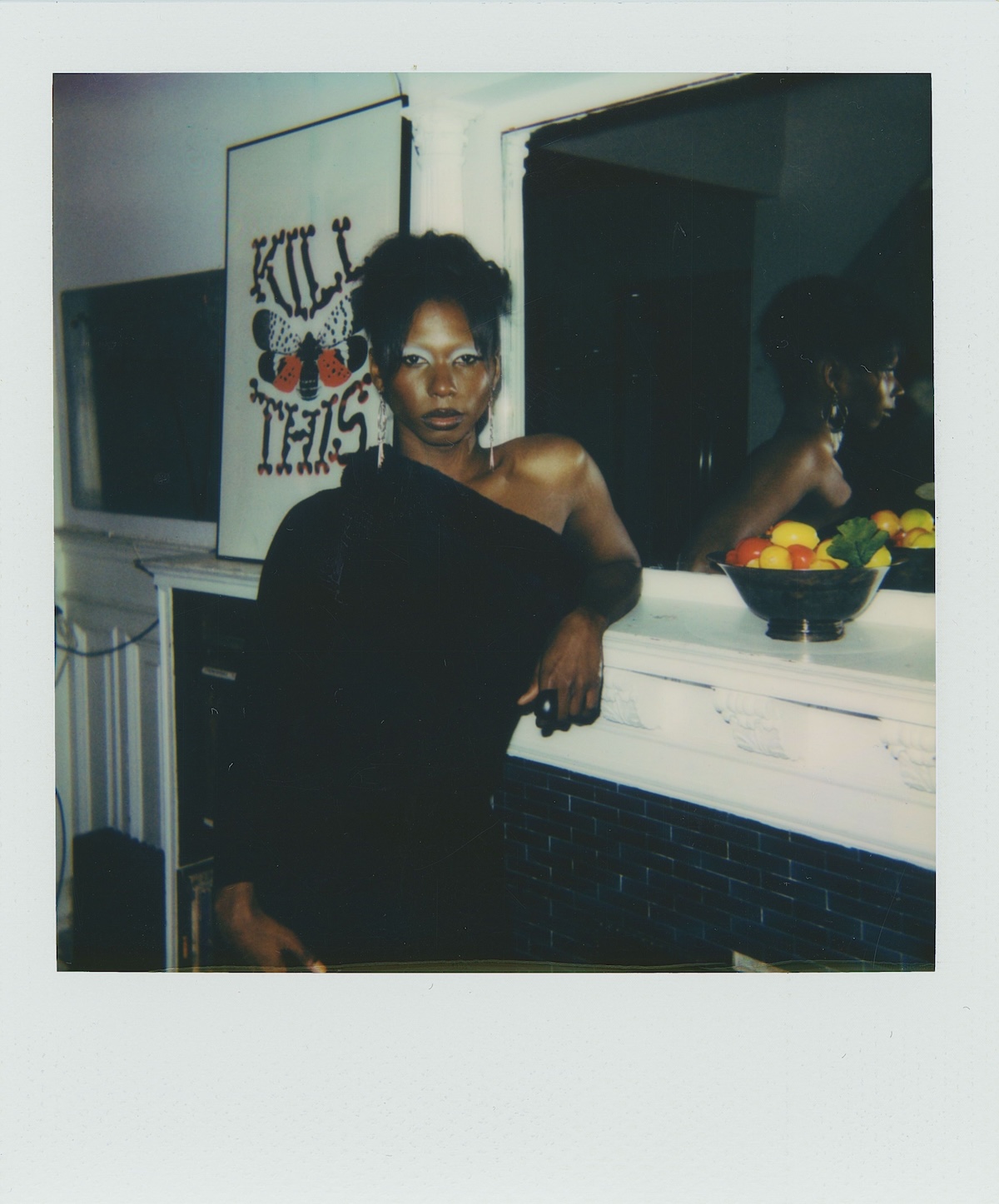
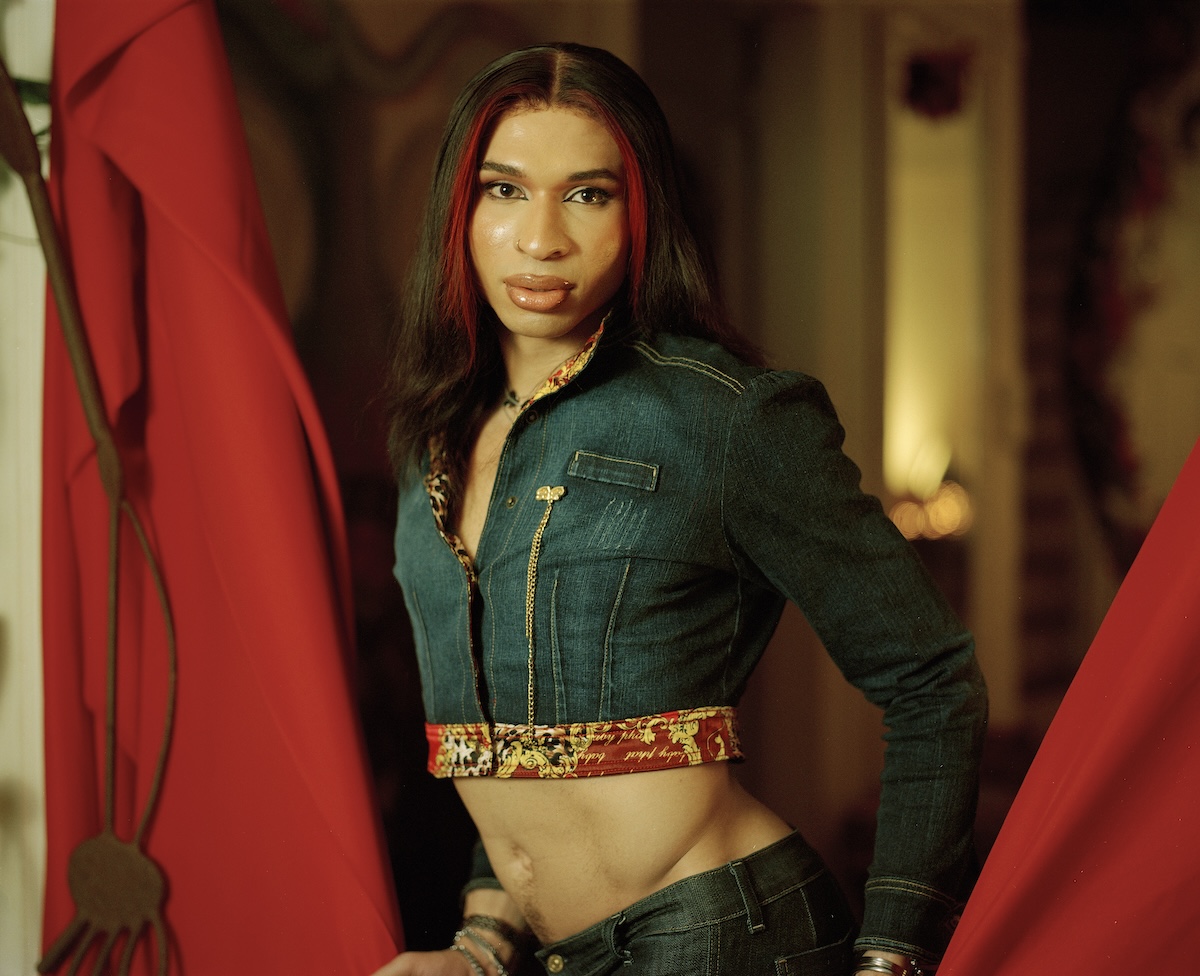
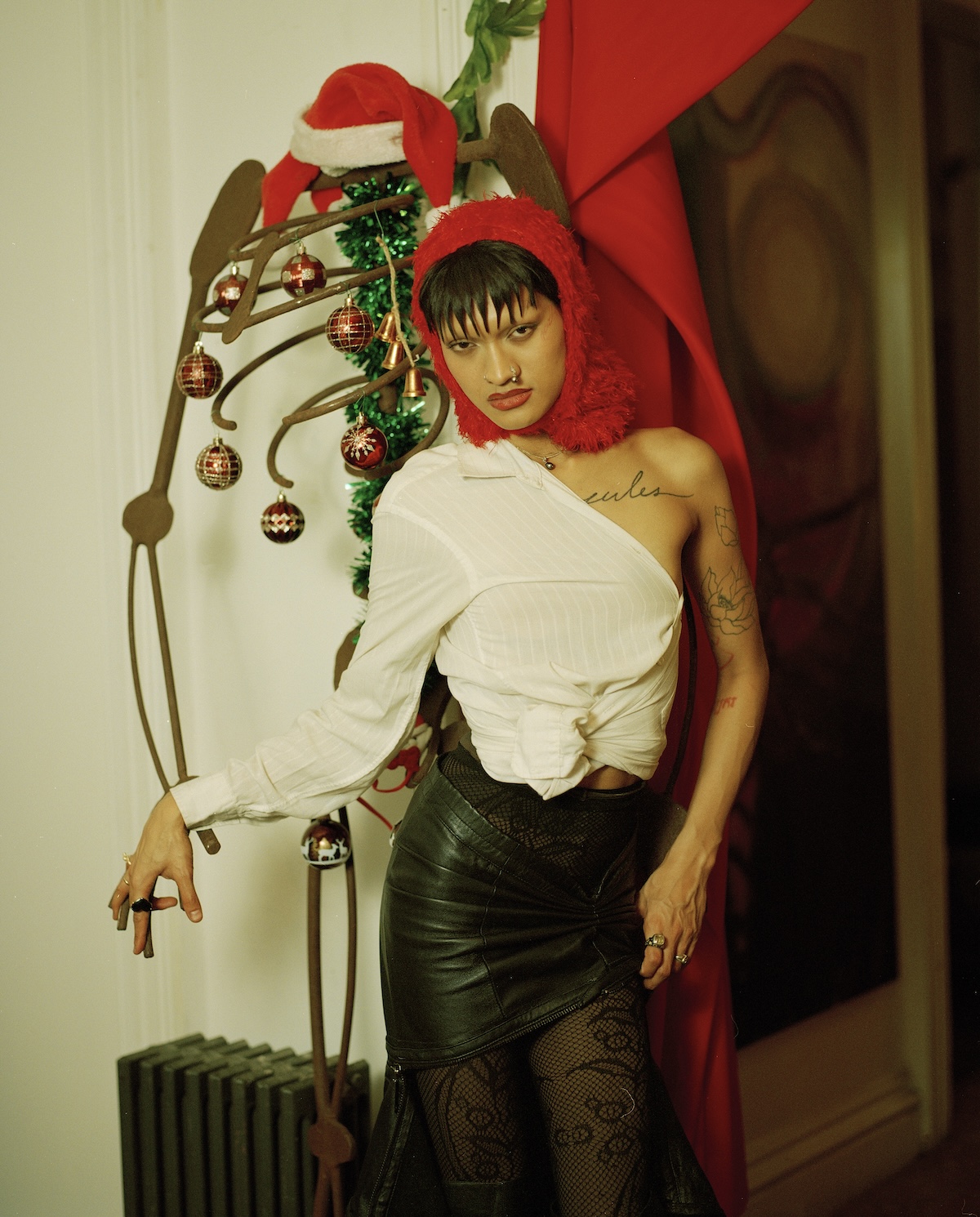
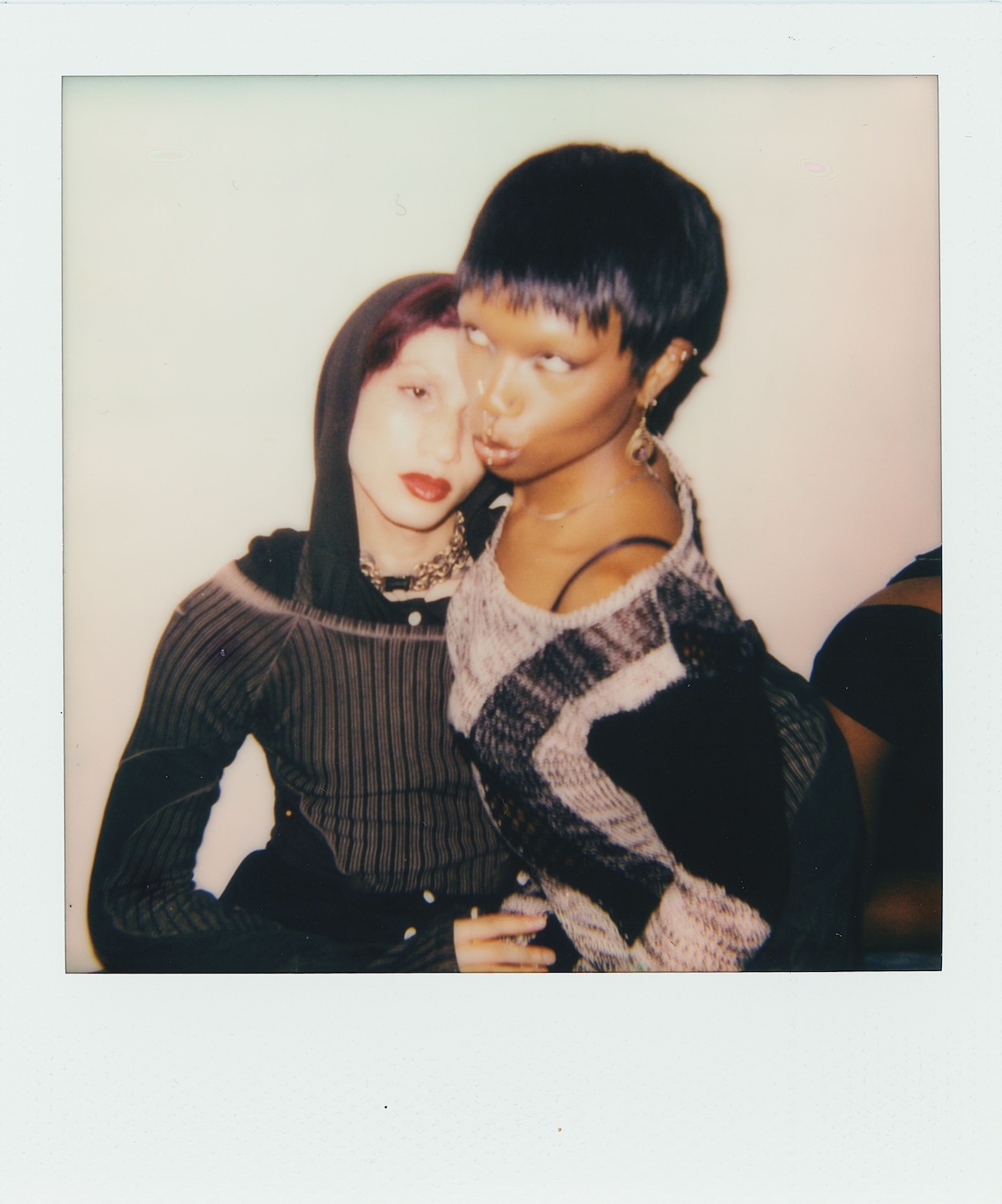
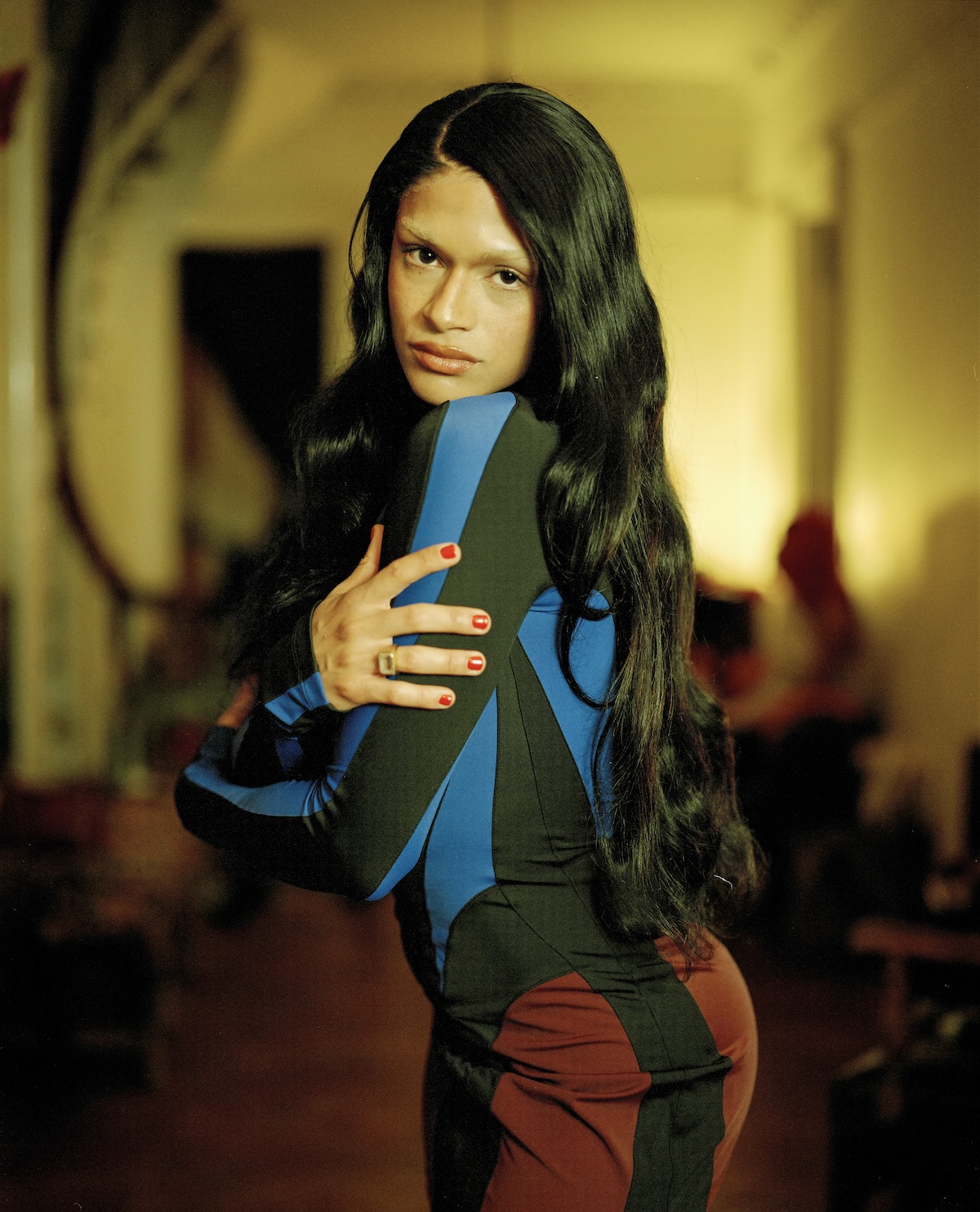
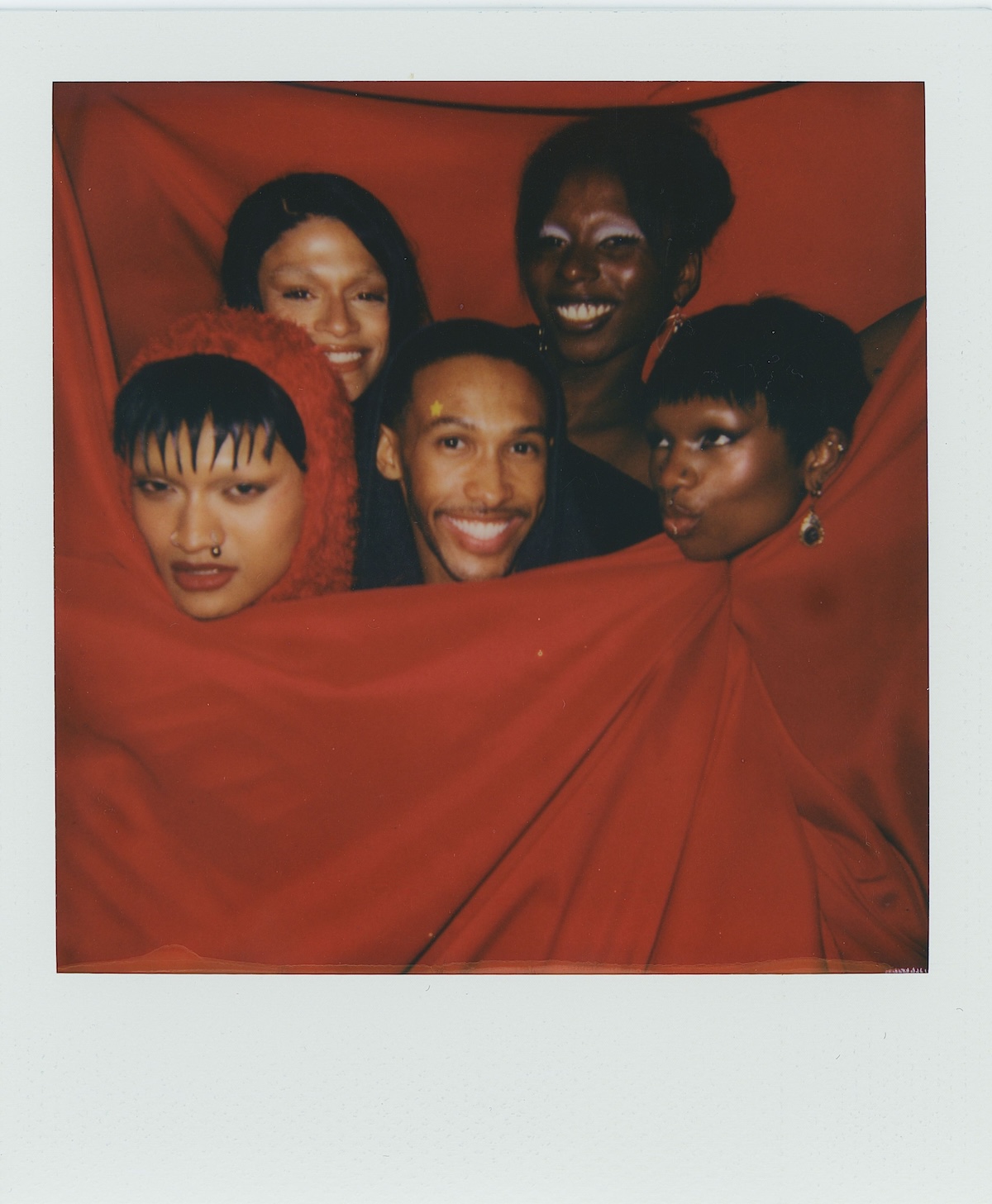
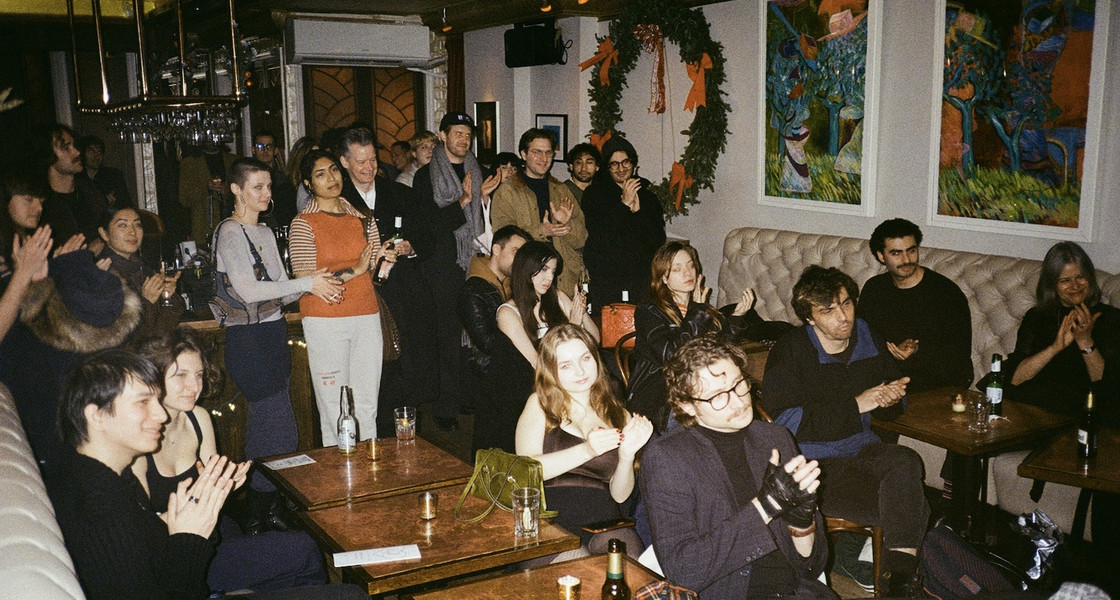
They introduce Kim Rosenfield as “once the hottest teenage poet in LA,” to which she responds, “That was a long fucking time ago.” She prefaces, saying, “I’m also a psychotherapist, so if anyone wants to talk about what they just heard, come find me.” It’s fitting that Kim start the longest night of the year with a poem that she had wrote Halloween. “The veils were thin then. I hope they continue to be.” Her voice is haunting but her words are youthful. It’s clear why she describes Hell and herself as “eternal teenagers.” With her “melancholy on a budget” and “a goodbye so thick you could bite it,” she tells us that “home is just a path beaten over and over again. My favorite line: “It means a lot to me that I can still make myself cum the old fashioned way” — earns hums of admiration from the crowd — I doubt that many of them can say the same.
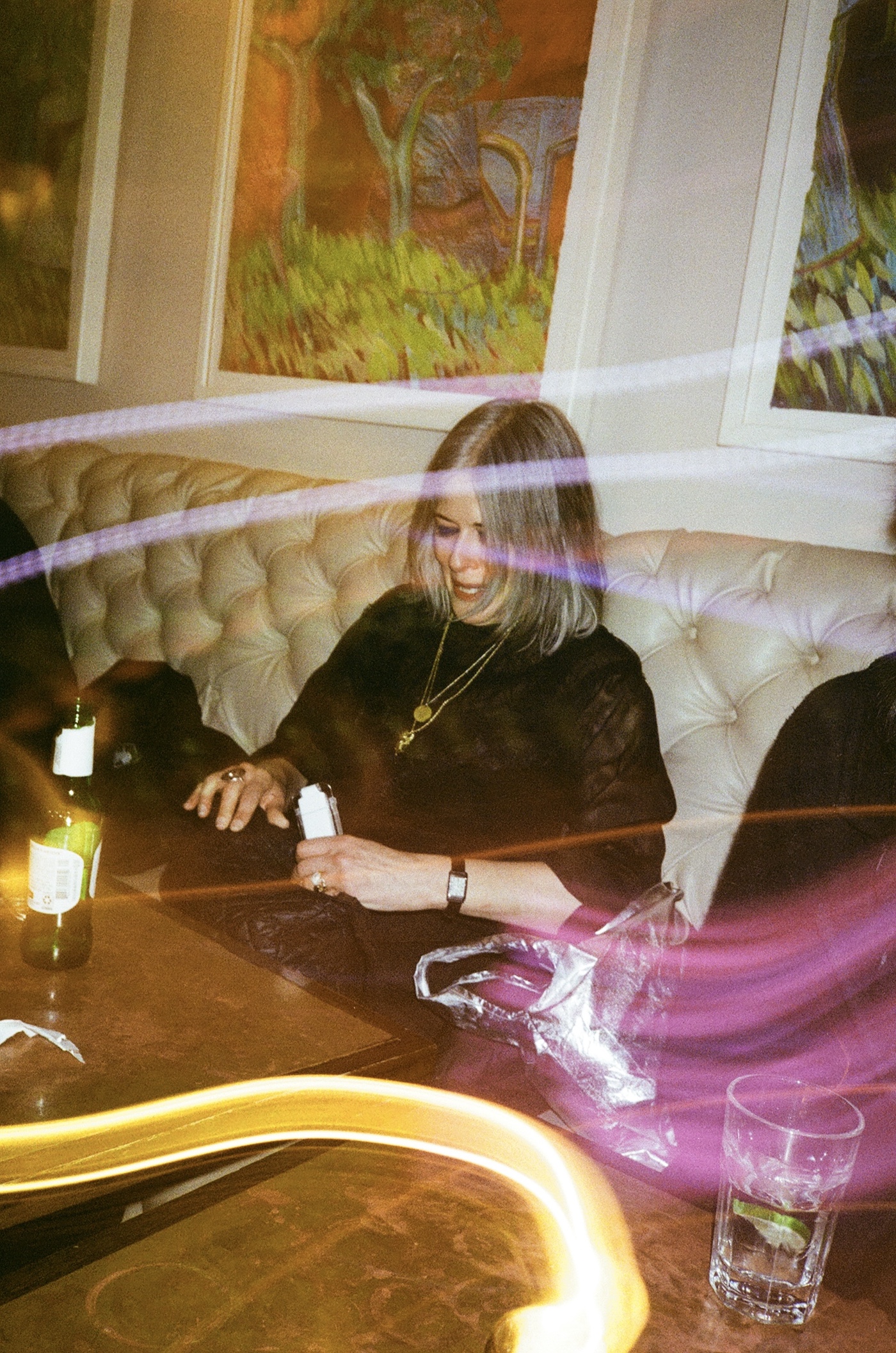
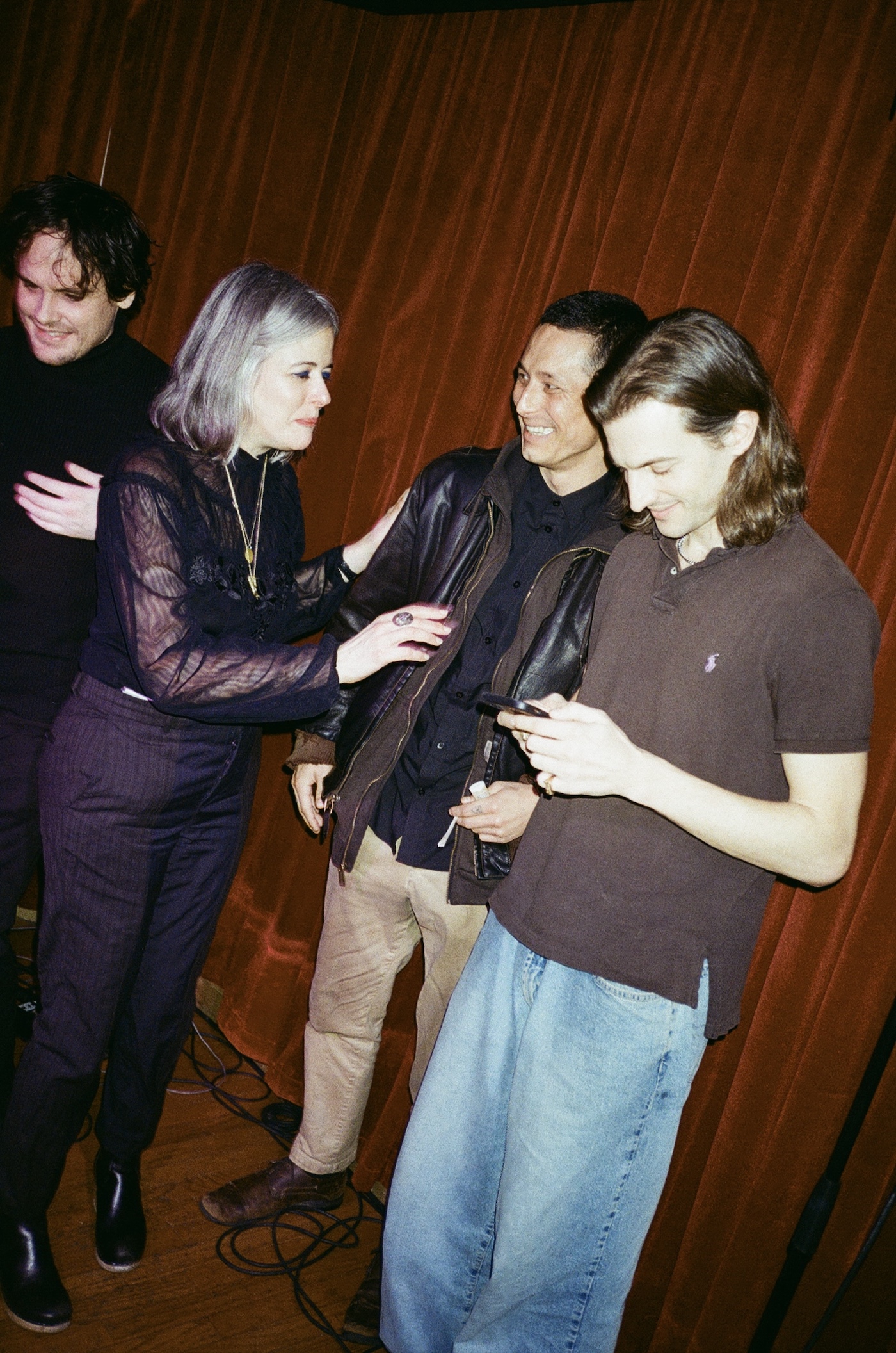
An academic and a member of Neoliberal Hell, Matthew Donovan brings me all sorts of places — here, Anna Delvey’s roof, etc — he’s one of the smartest people I know. “This poem is for my father,” he starts. No one claps. “If you hate your father I understand, you don’t have to clap.” People cheer. Matthew’s work is sharp — clever, but the kind of cleverness that begets survival. “This wasn't radical. This was an abject desire, scattered in Section 8 project-based housing, a rock thrown at my head, where I learned you could go blind from snorting blood.” Matthew says words we’re not allowed to write in press, remembering how his dad took him to Disneyworld and “lied to everyone that we were disabled so we could cut the lines. He pushed me out of my chair because I wasn’t convincing enough.”
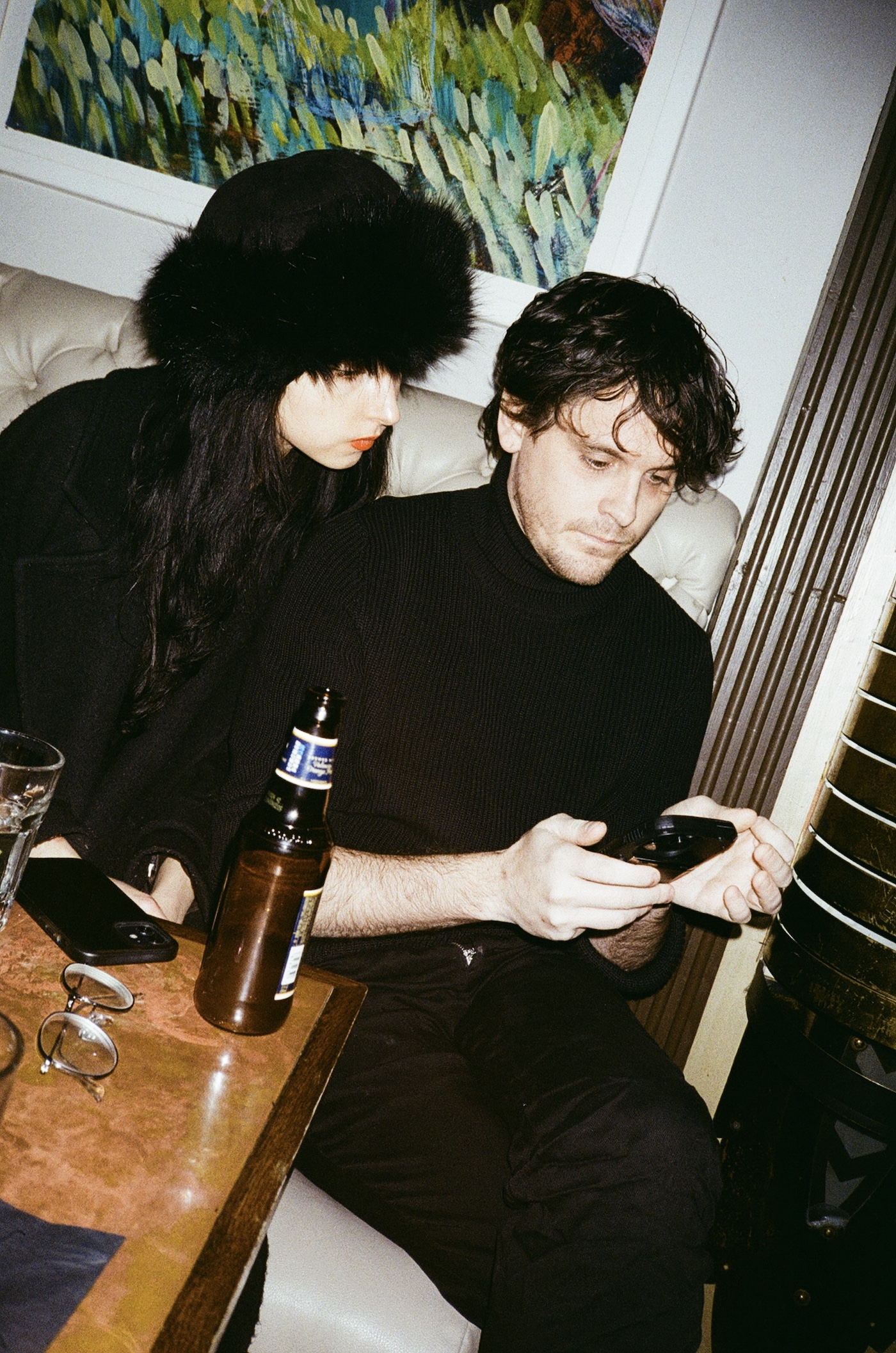
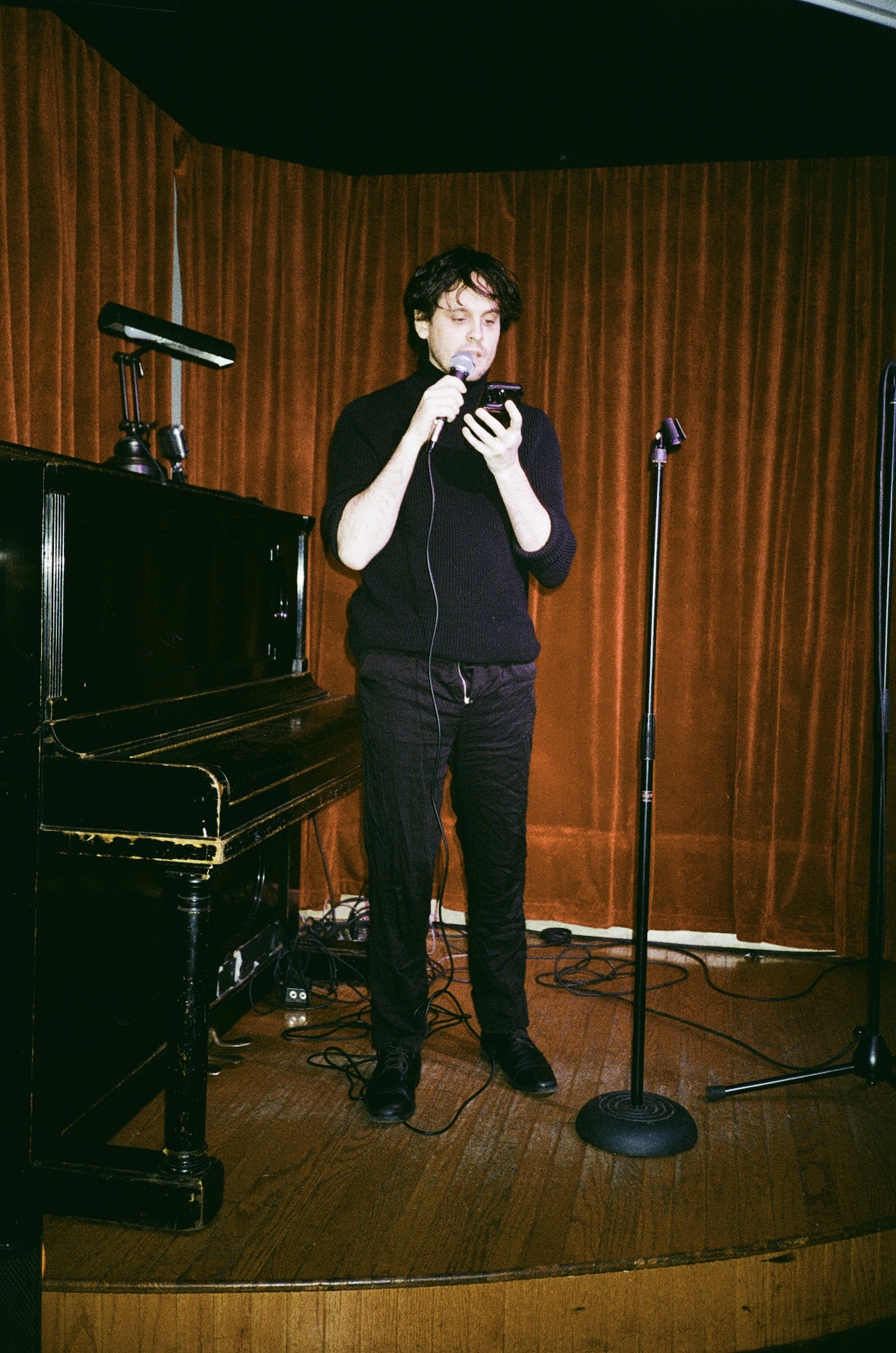
I think this Peter Vack guy is the guy everyone talks about when they mention autofiction. He’s delayed coming to the stage, yelling, “Someone do a bit!” Erin talks about stealing from Rite Aid to make lemonade stands. “I’d be a great capitalist if I were one.” Peter dedicates the poem to his late friend: “He was the best Instagram user ever.” This is the modern age’s most loving epithet. This is what the Greeks wished they carved on pantheons. He’s a real 21st century poet. He makes jokes about looksmaxxing and The Dare, referencing meme formats and reminding me of Tom Robbins. “Your honor, my client was decolonizing Clandos.” This receives laughter and well-intentioned nods of solidarity.
Peter admits he’s from the Upper West Side and says more words I’m not allowed to write. “The real pandemic is reading. The real pandemic is readers.” Matthew Weinberger takes a picture of Peter that reminds me of that kid dressed like a monkey at the Apple store.
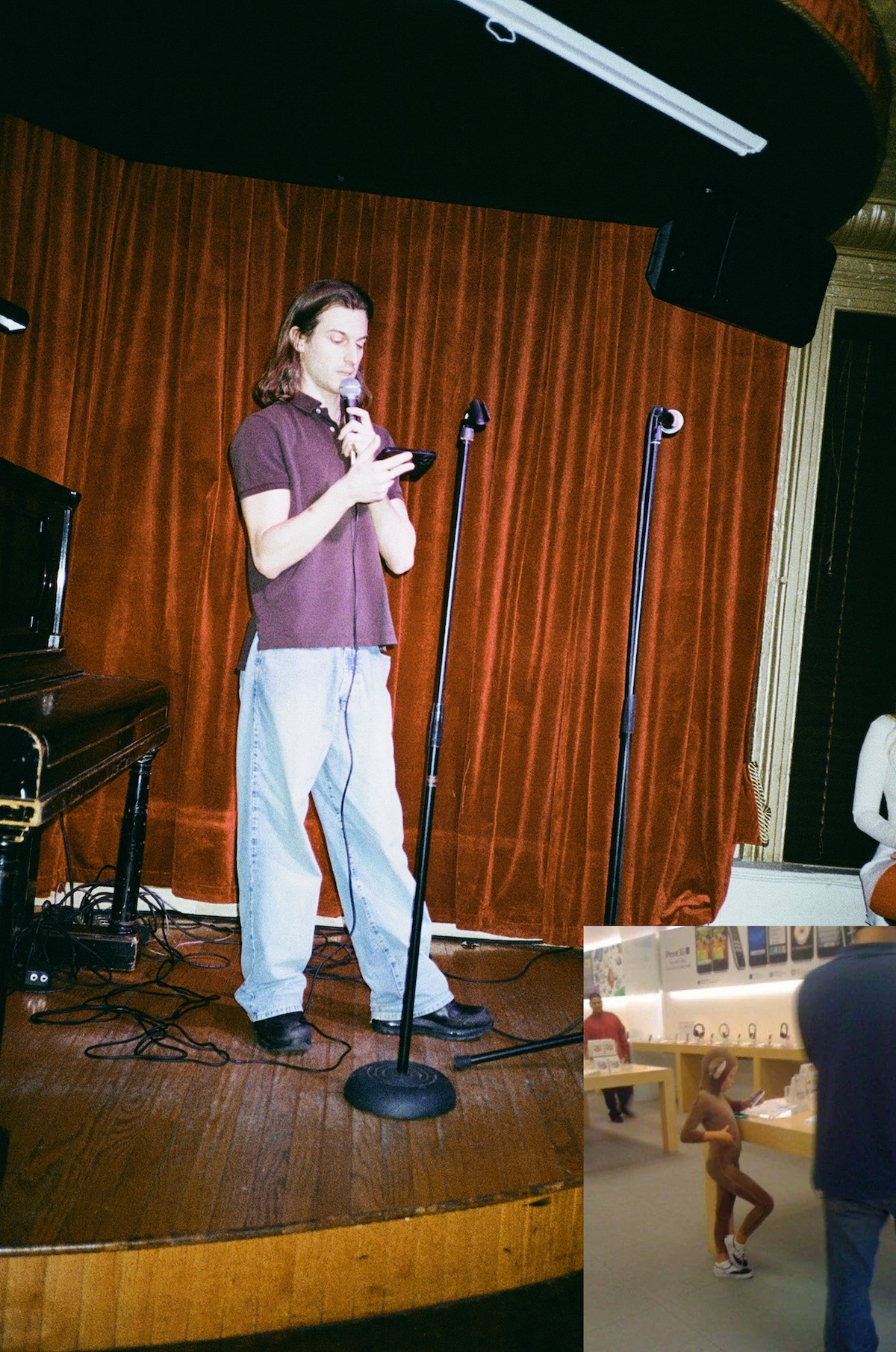
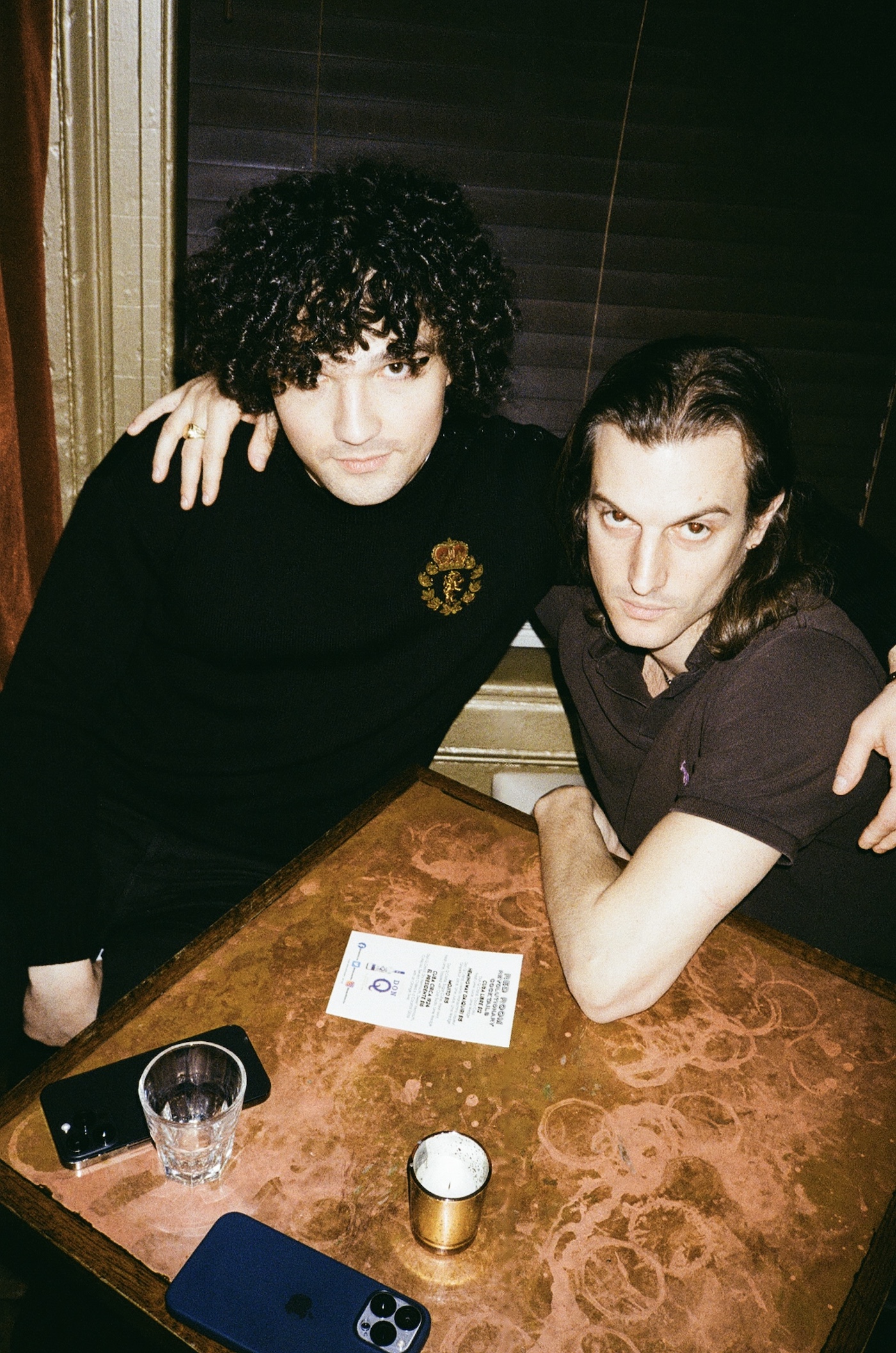
Kitty St. Remy has the coolest name ever. She reads with red boots angled inward and has a poem called “estrogen versus Viagra.” “The only thing they bought me was lube from Walmart, now I remember God is a product of human labor.” We’re floored. She talks about being called a “splendid bitch.” “I’m counting on debauchery and Babylon. I’m pouring wine down your throat at the orgy. All the girls you loved are here, ten years younger with deeper throats.” It’s devastation in a matter-of-fact drawl. Kitty St. Remy writes like her heart hardened out of necessity. This isn’t to say she’s not earnest. “If there’s a point in history where my words could be understood, I’d like to be there.” The tears in the eyes of some of the girls makes me believe she’s there.
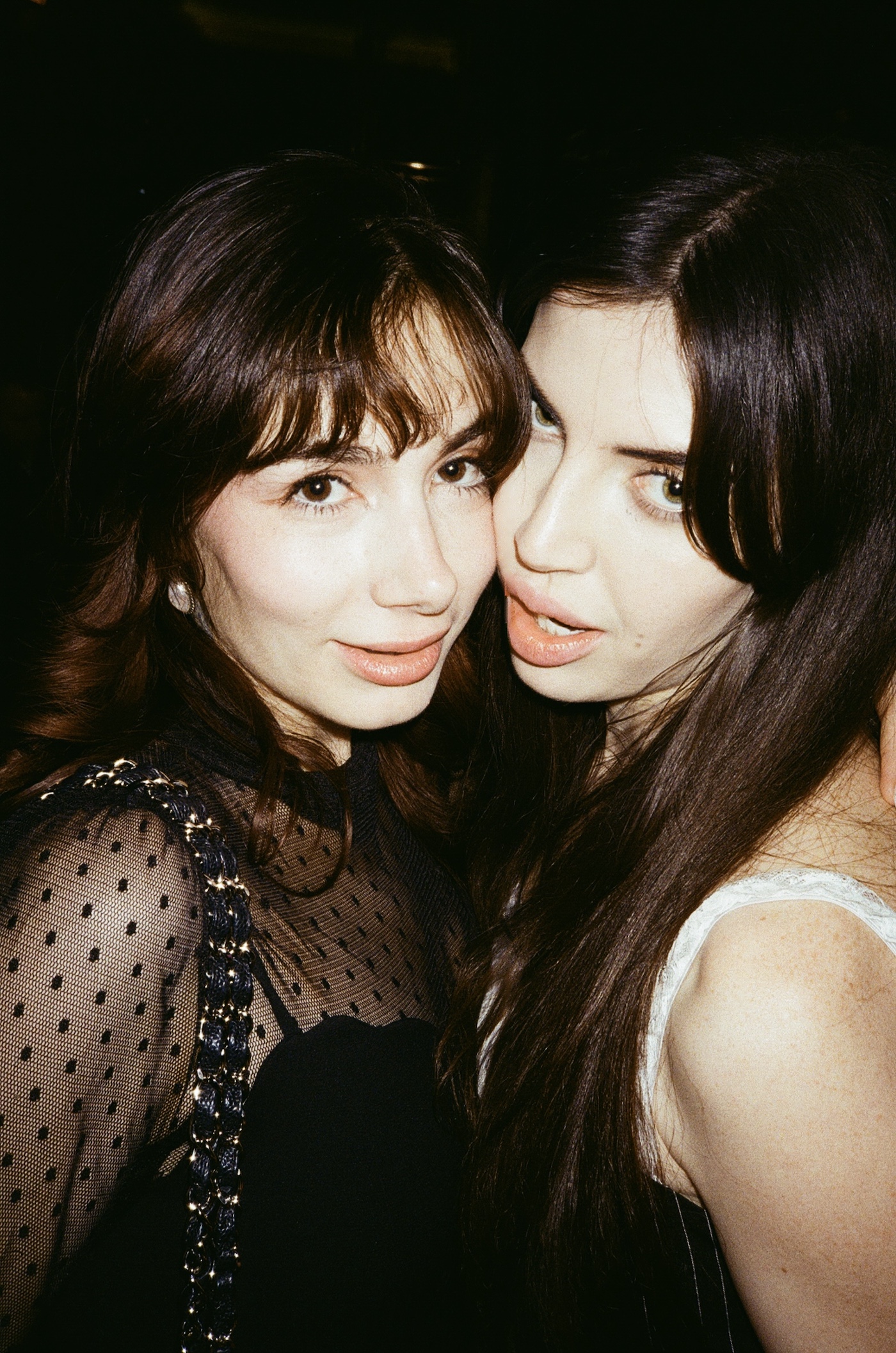
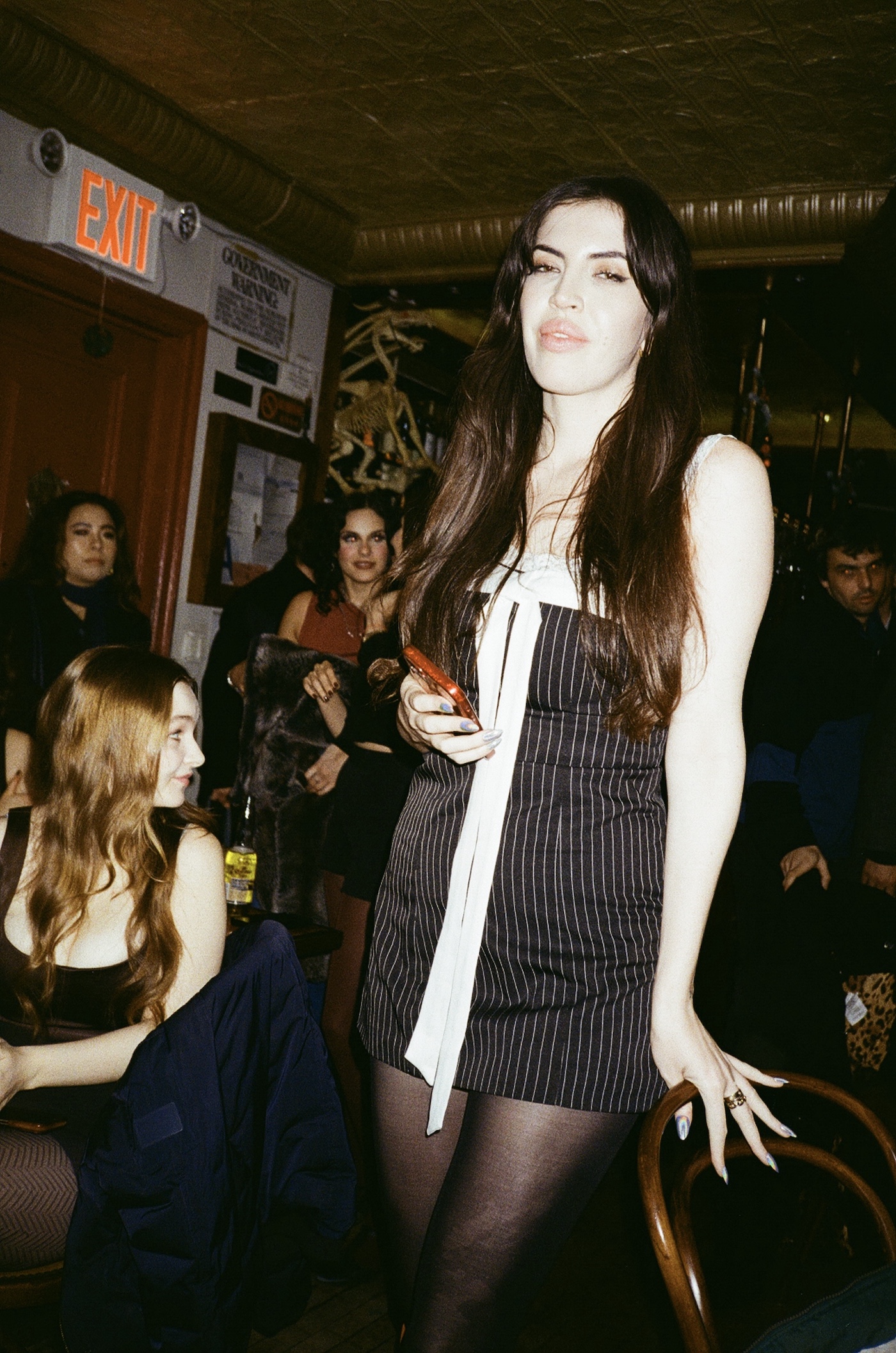
Sean Thor Conroe sets a joint on the piano and apologizes in advance for “bumming us all out.” It's hard to read novel excerpts that aren’t all fluff with a few one-liners. But with Sean, each word means something. He writes about writers who die after meeting, writes about love in an endearingly scientific way — crushing on a girl by admiring her erect posture and symmetrical middle part.
In his story, a man stumbles through a passage that says, “the phallus transforms itself to make possible the conditions of love for women who need daily penetration to feel loved.” It’s a thinly-veiled metaphor on how love forces transformation. It’s an hilarious idea that women need (or receive) daily penetration. We laugh about that. In his story, they pull tarot cards on acid and don’t freak out about pulling the Death card because “we’re dying every day.” There's no laughter about that.
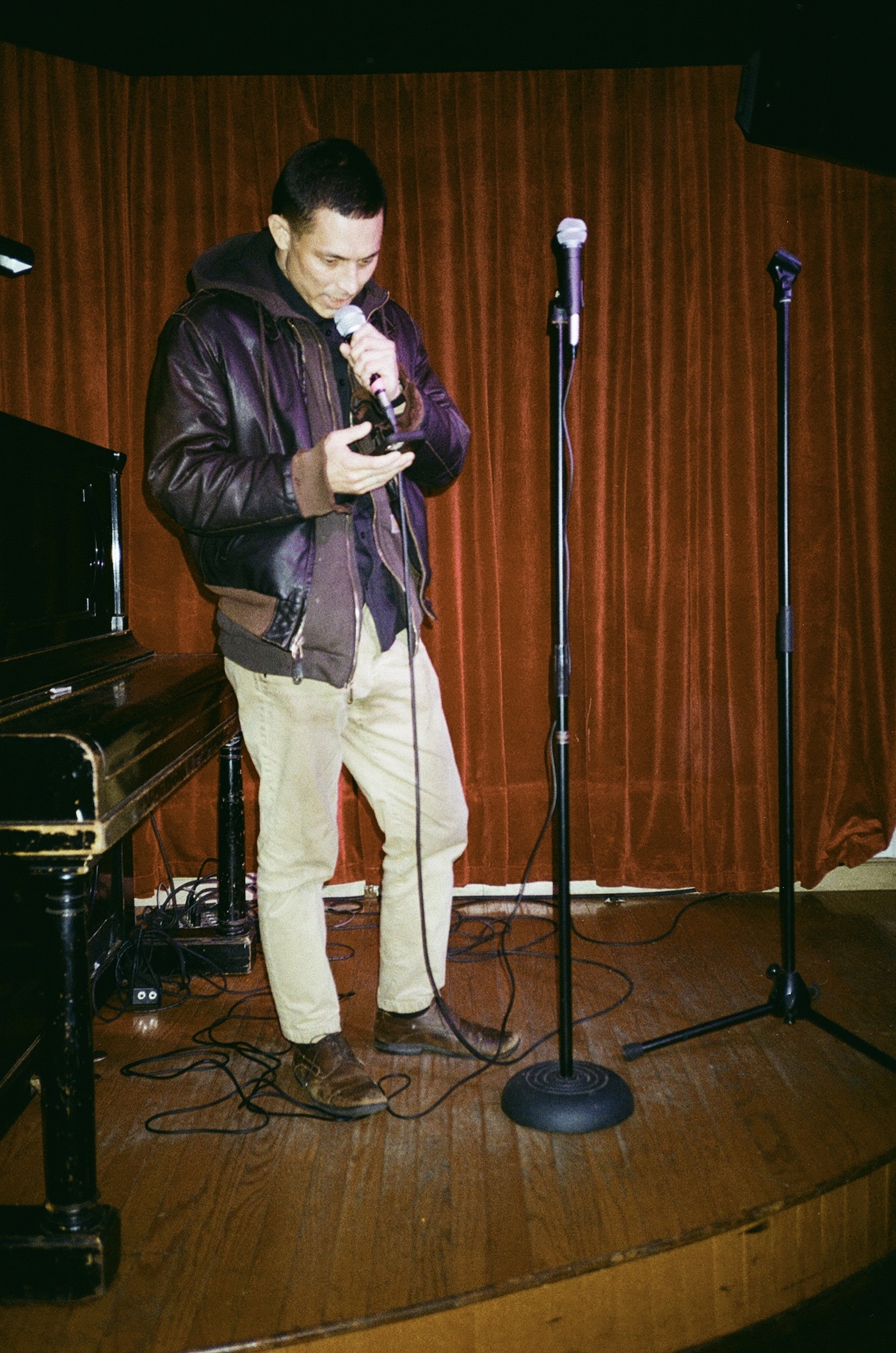
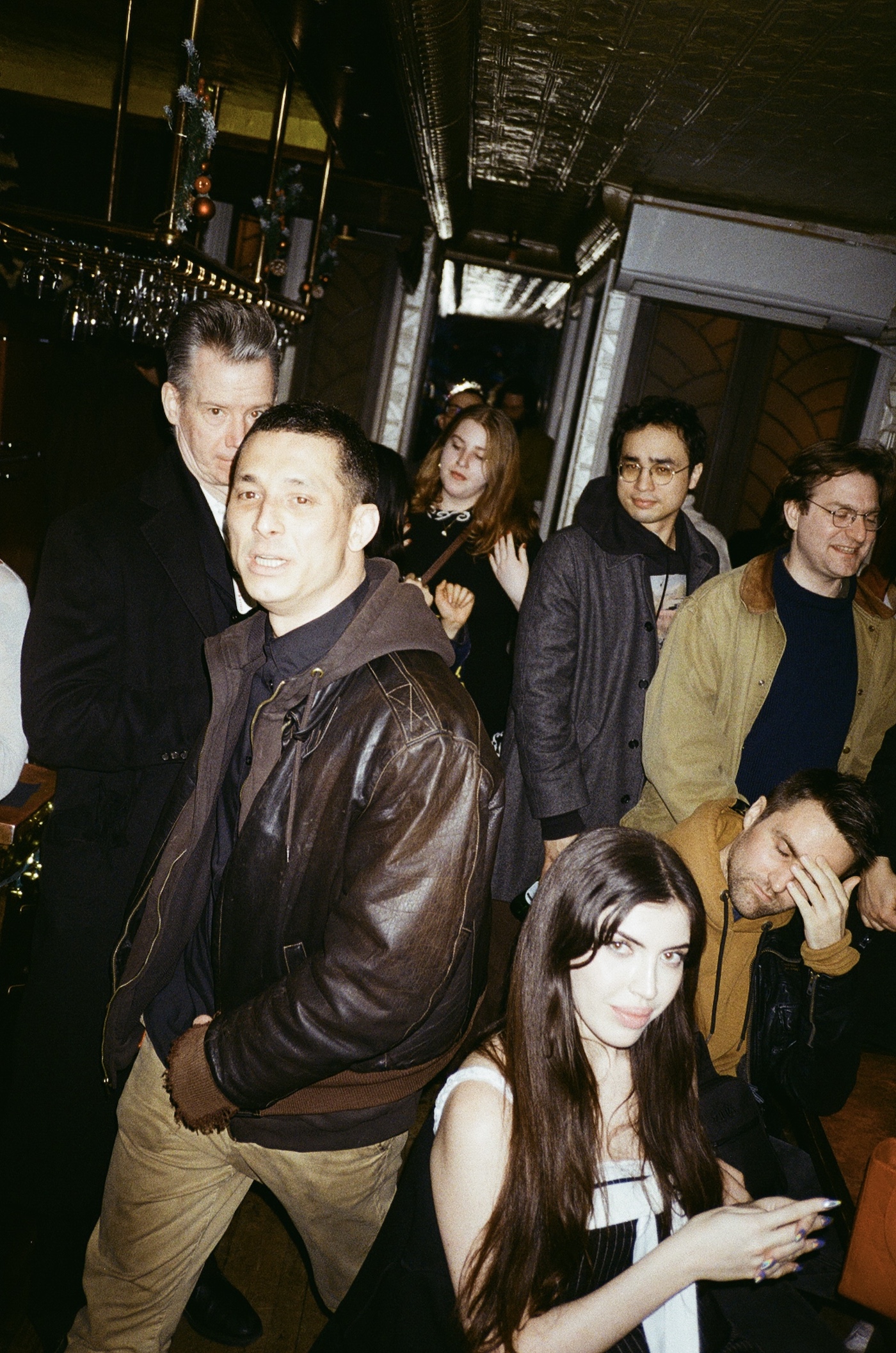
Last night, I was talking about this event, and a friend of mine said that my level of excitement would mirror hers for someone like Cher. I tell her Richard Hell is reading at KGB. She asks who that is. I say he’s “like, the Cher of punk rock.” I don’t know what I meant by that. Who am I write about Richard Hell? He puts his water on the piano and says, “We should celebrate the old year, not the new one, becuase they’re getting progressively worse.” He reads a poem about the start of the millennium, saying “I don’t want 2001 to end, I don’t want 1 or 0 to end. I don’t want to hold onto the past but I want to bring everything with me into the present. This is why they invented jesus.”
His hair hasn’t changed since the 70s. He reads from loose sheets of paper and talks about William Blake. I think about showing him the old commie bookstore I used to work at. He writes about ants and butts, saying, “‘Tub’ spelled backwards is ‘but’ which is almost ‘butt.’ This is how you get from ants to anal sex — with ‘u.’” Everything sounds like a punchline: “When I got out of bed and realized I couldn’t remember my dog’s name, I thought, ‘Dementia for sure.’ And then I remembered I never had a dog.” His poems combine esoteric language atrophy and irreverent humor. “Poets are fools but I don’t give a fuck,” adding suggestively, “... anymore."
“Life is only good if it’s well-written,” he says, and I’m back to my original question: Who am I to write about Richard Hell?
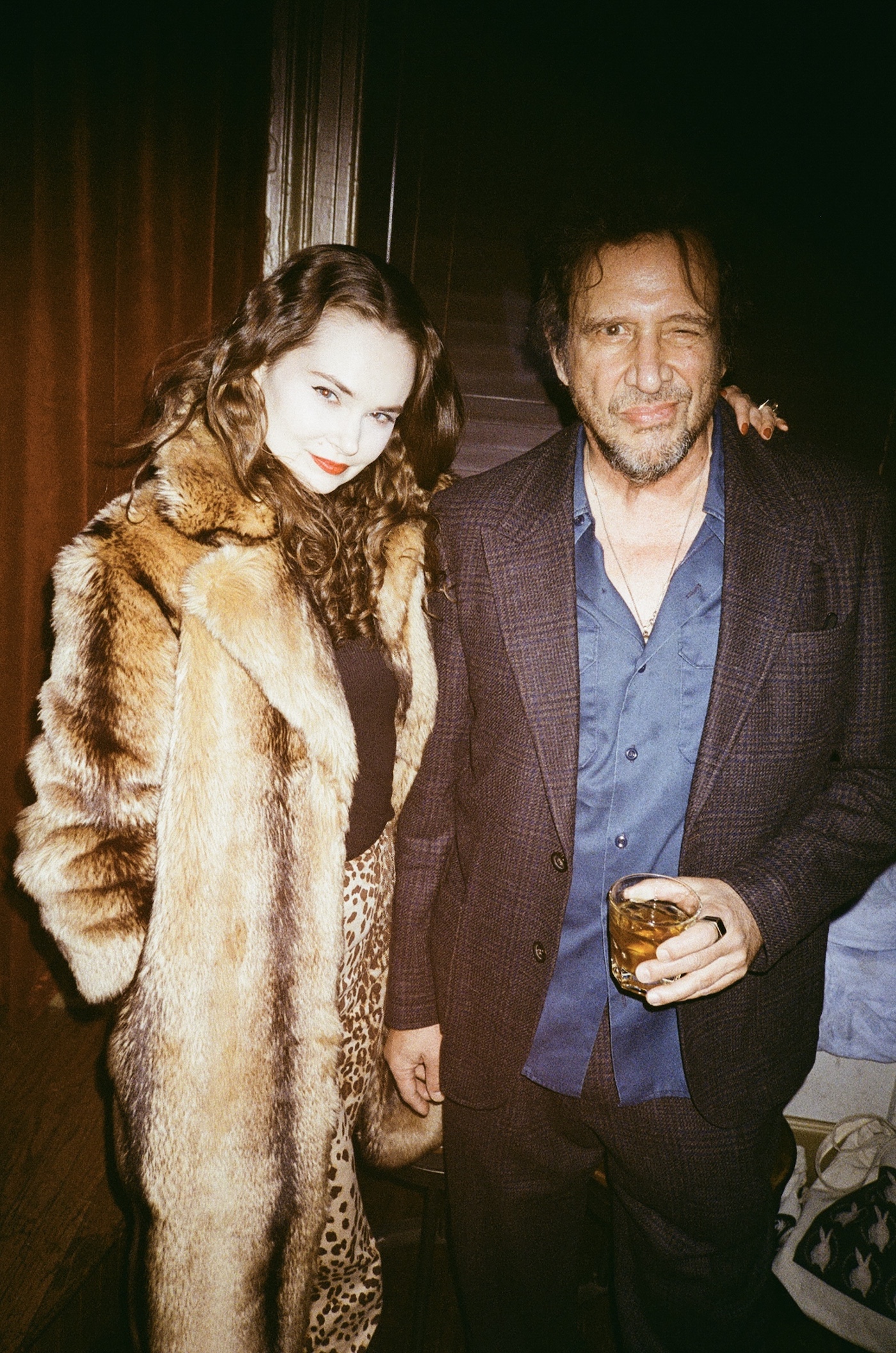
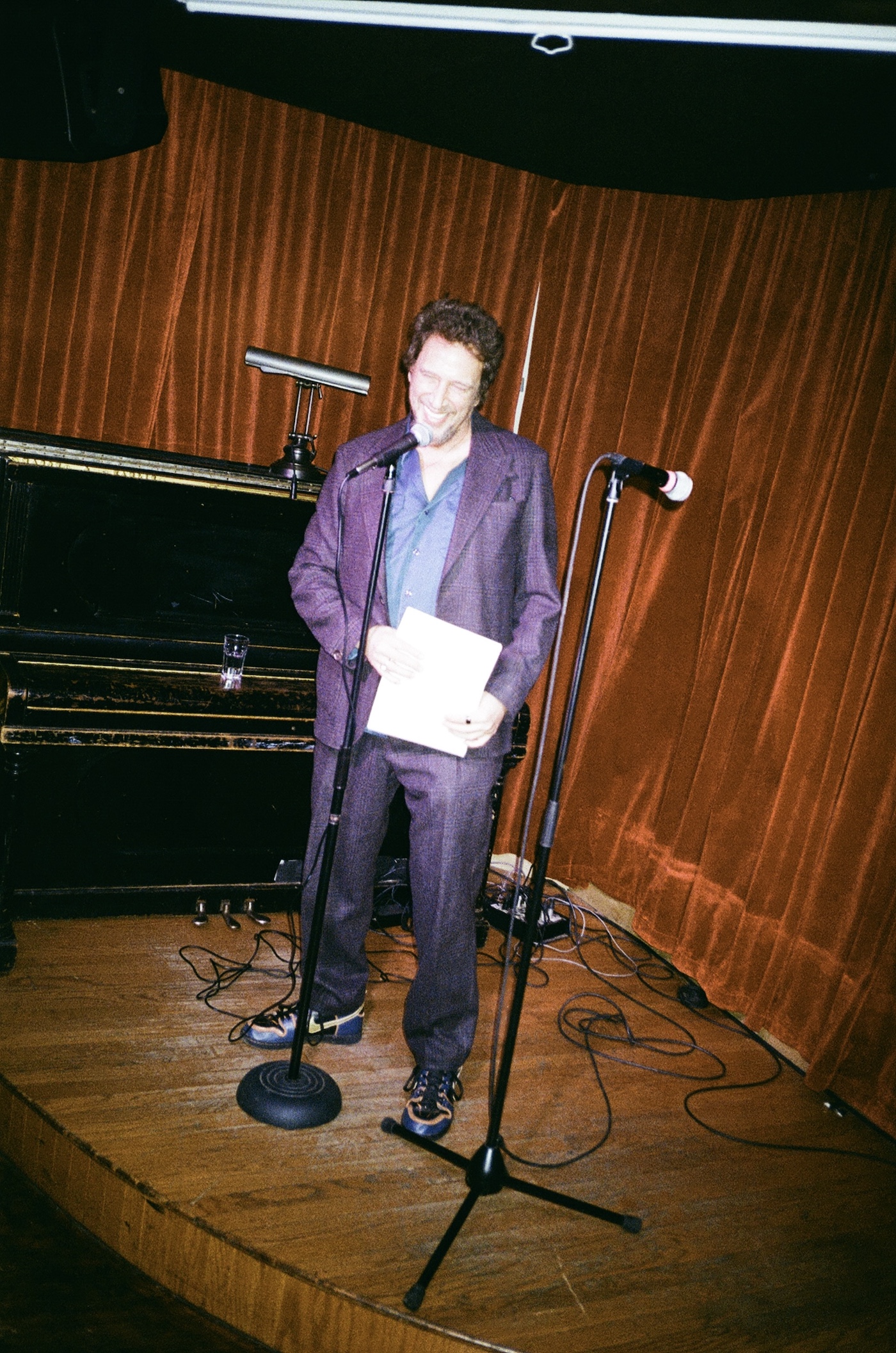
Erin and Britt close with a group carol, a nativity reenactment, and a bag of flour baby Jesus. At the end, they offer up the bag for groceries (Matthew Donovan takes it home). People a proclivity for consuming representations of Jesus — I wonder what baked good the body of Christ will become this time.
